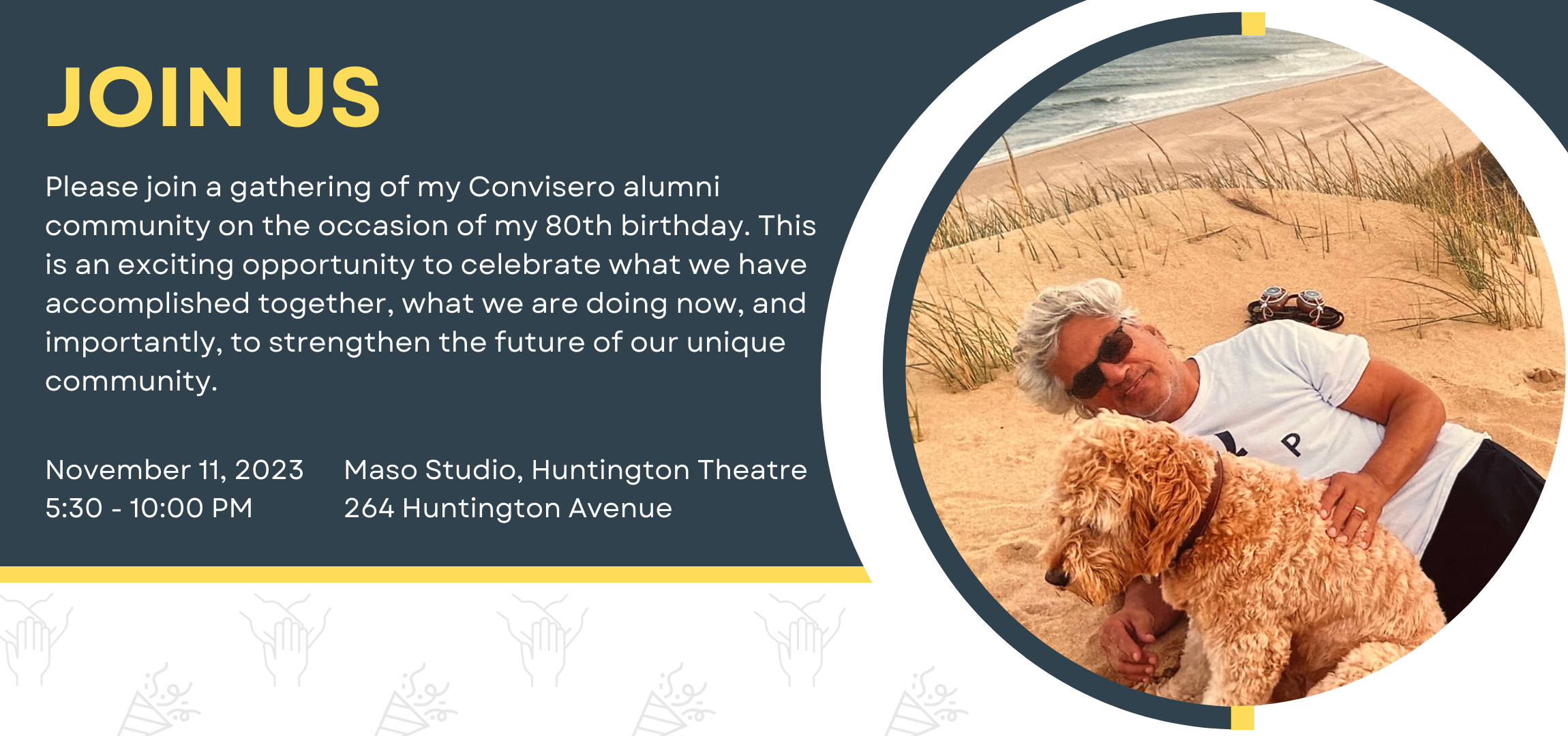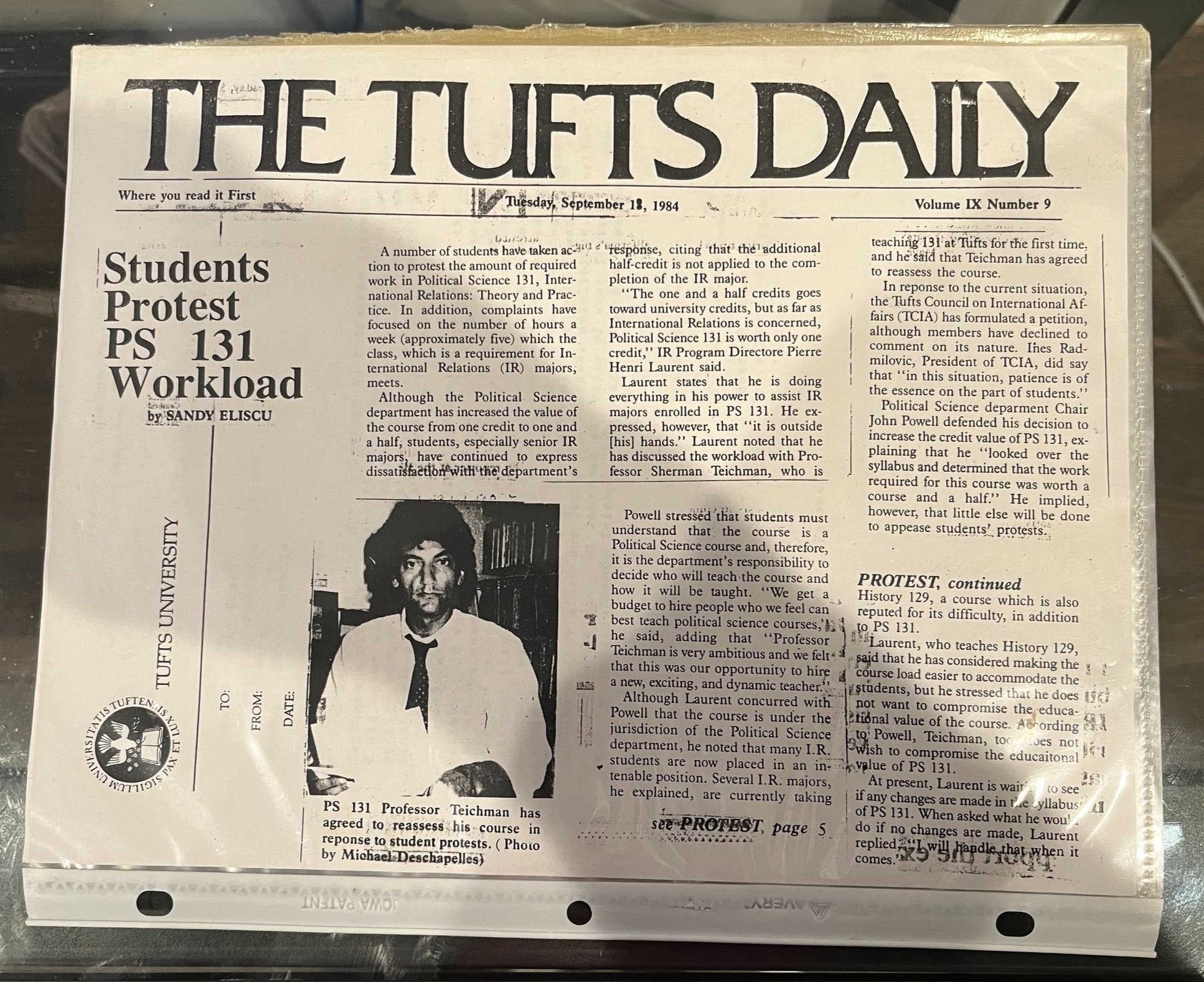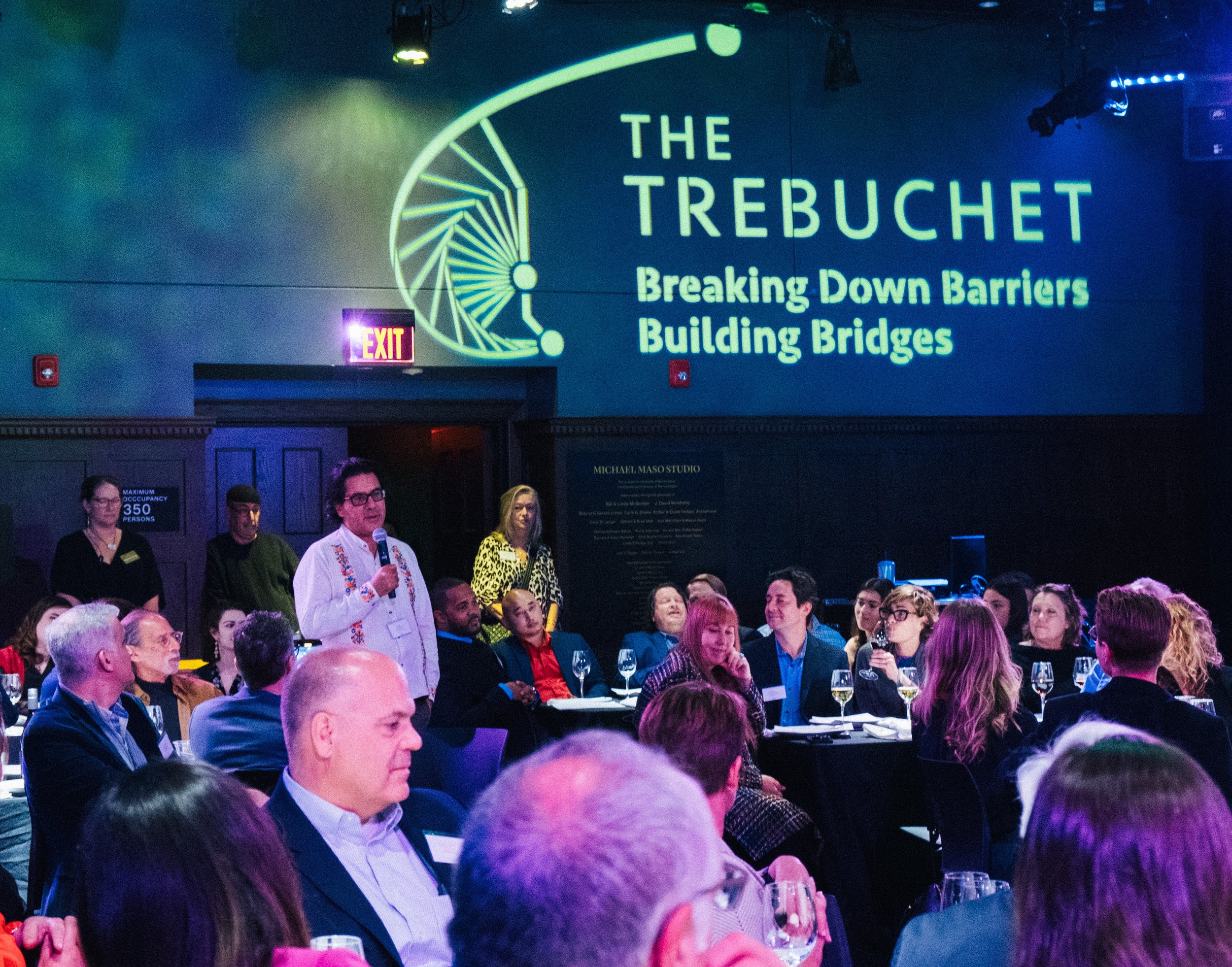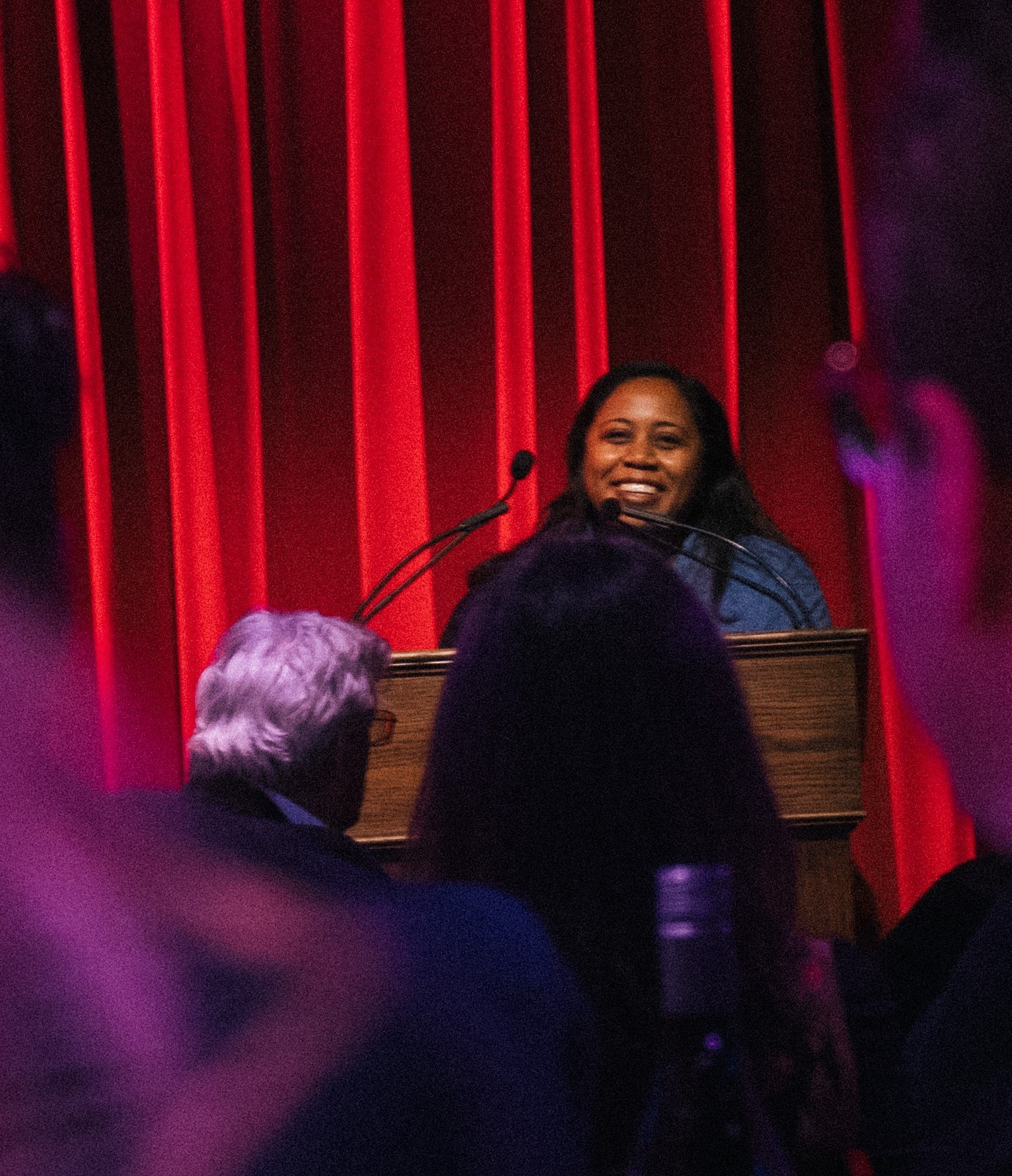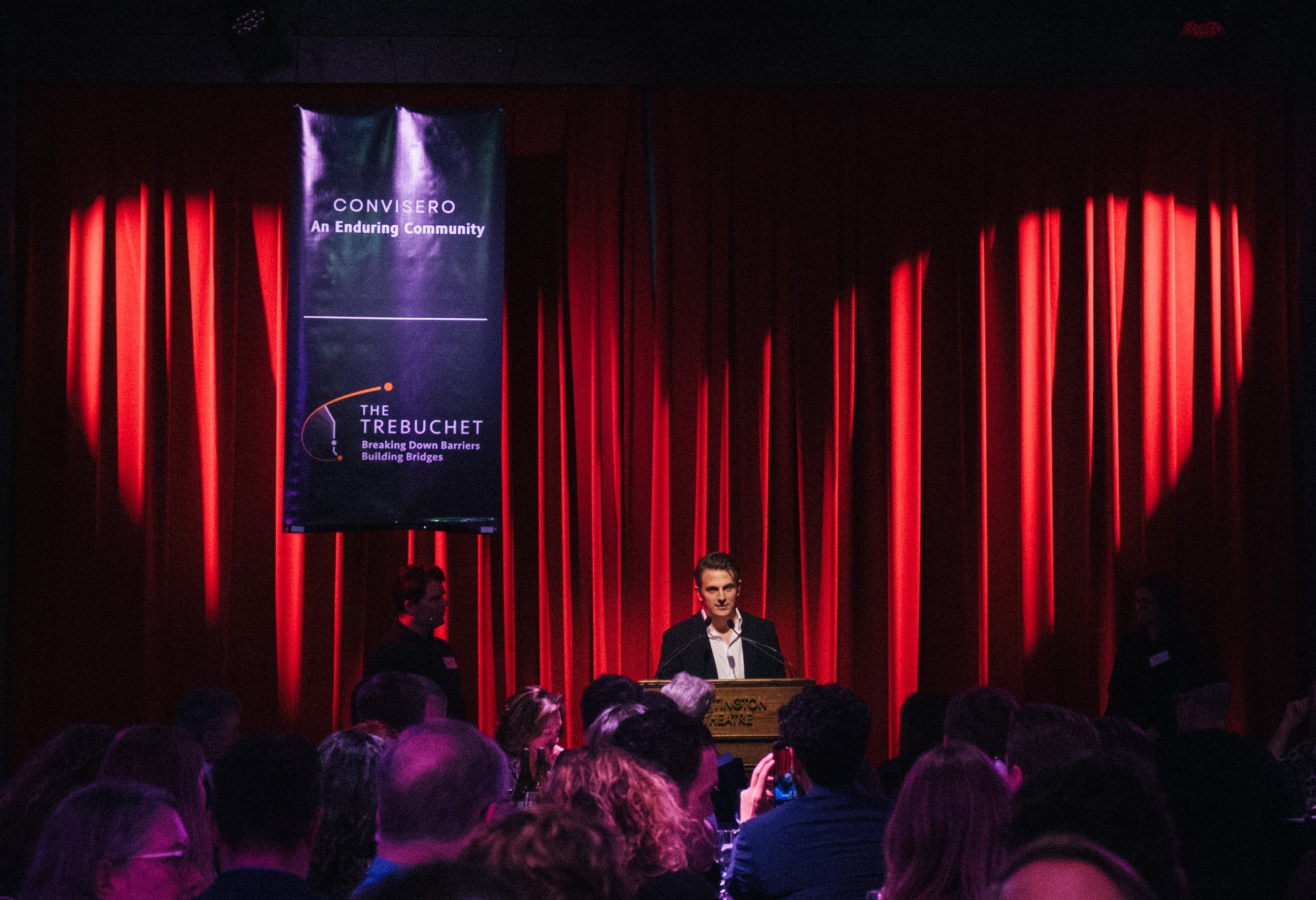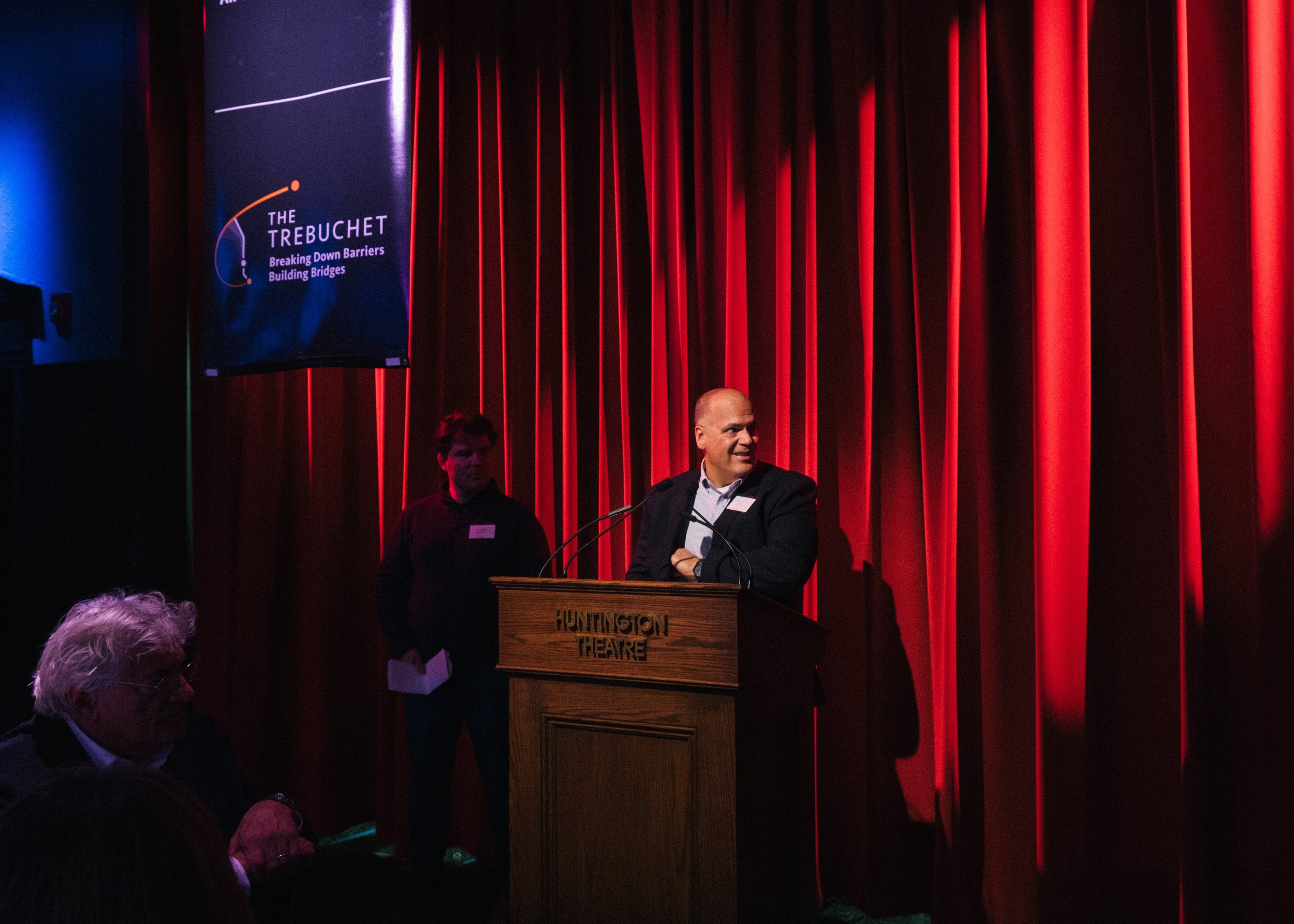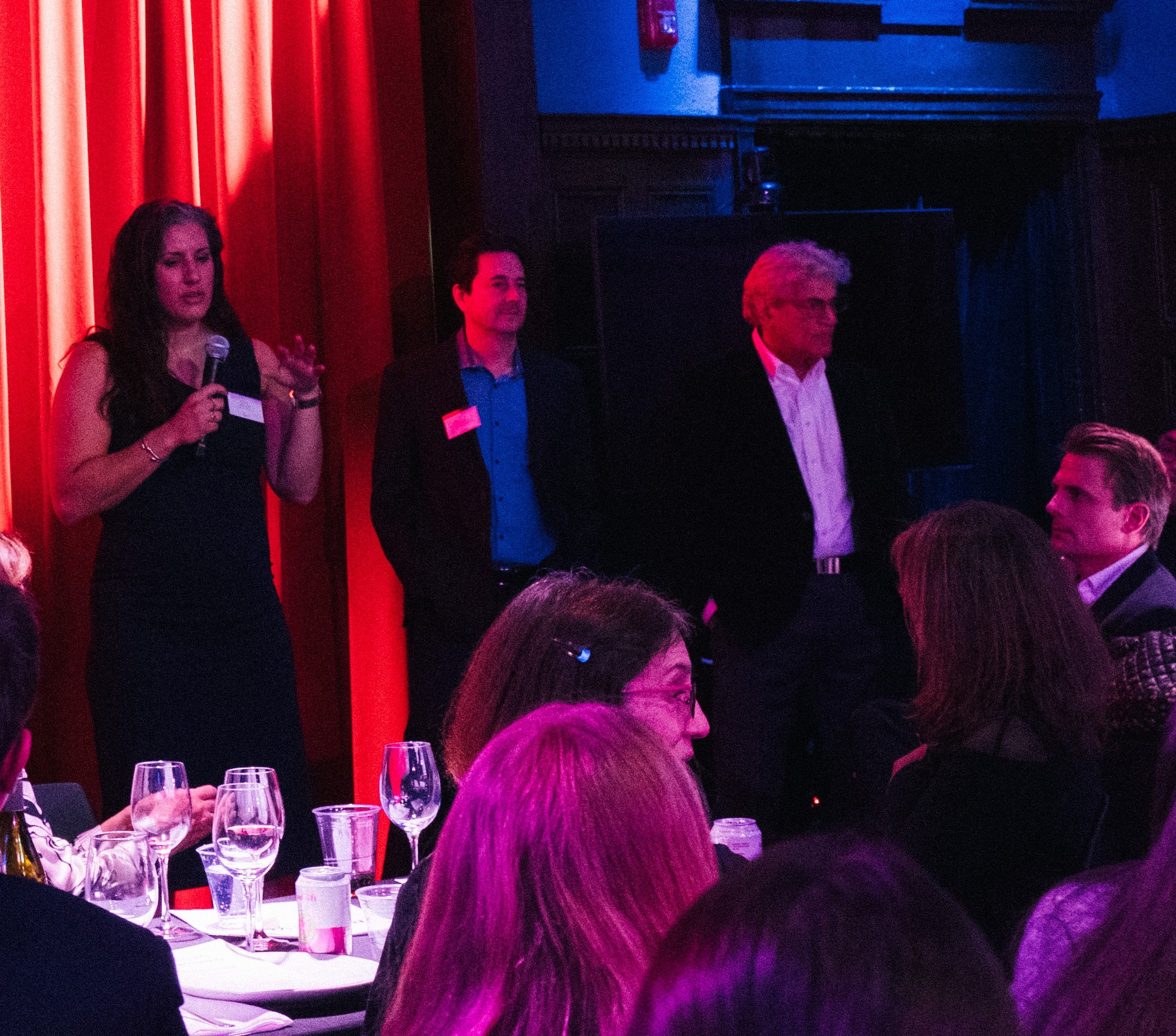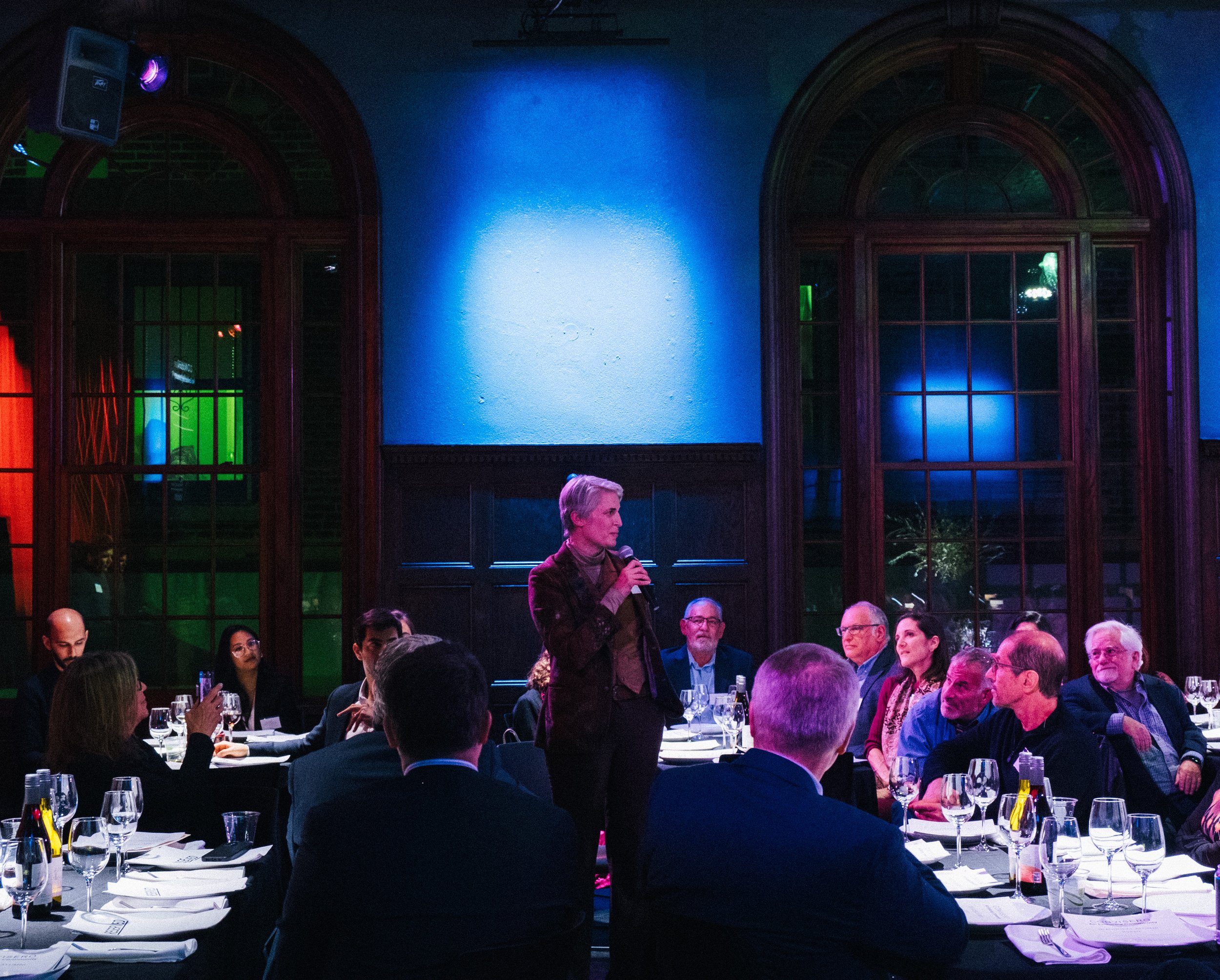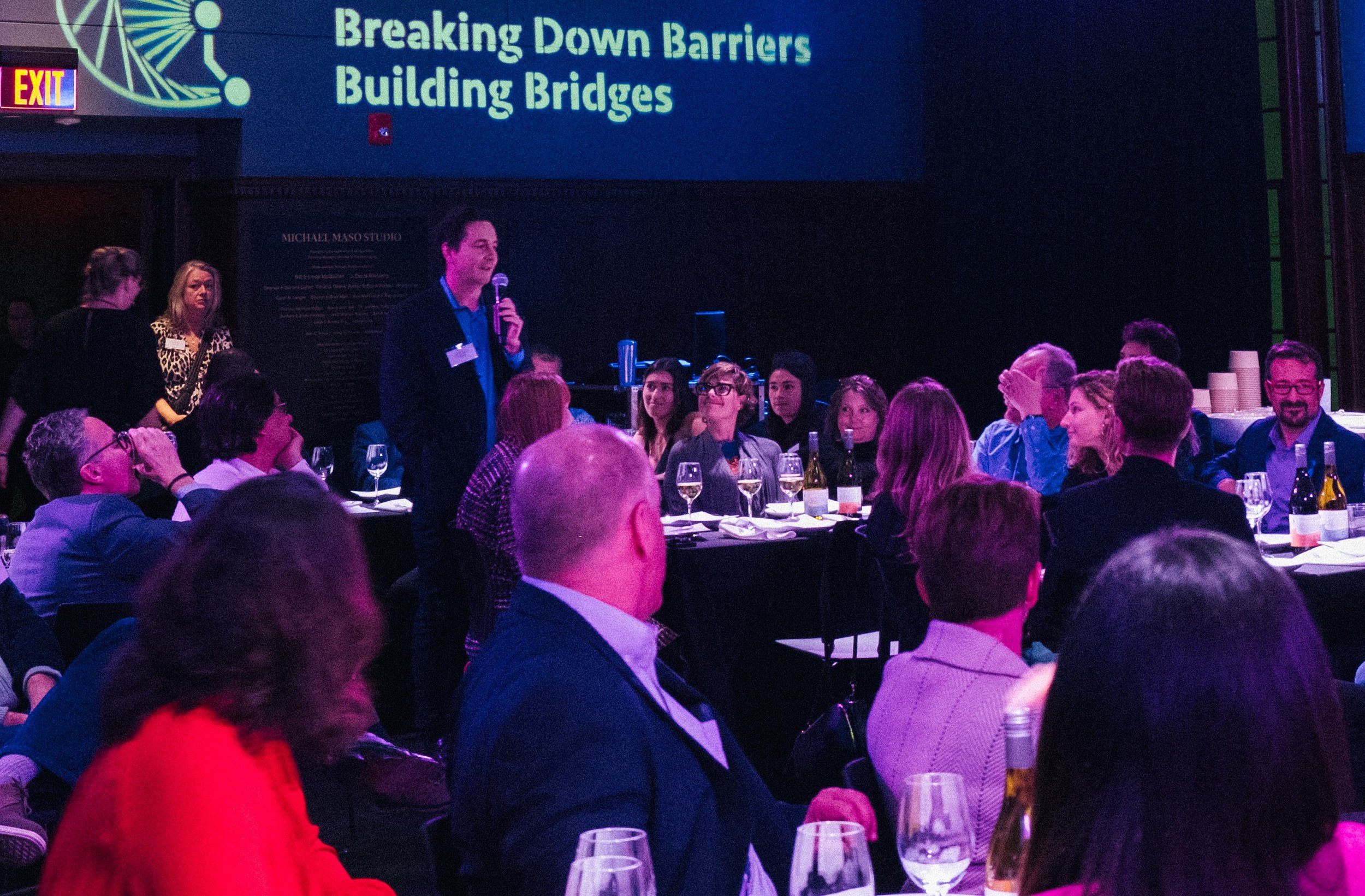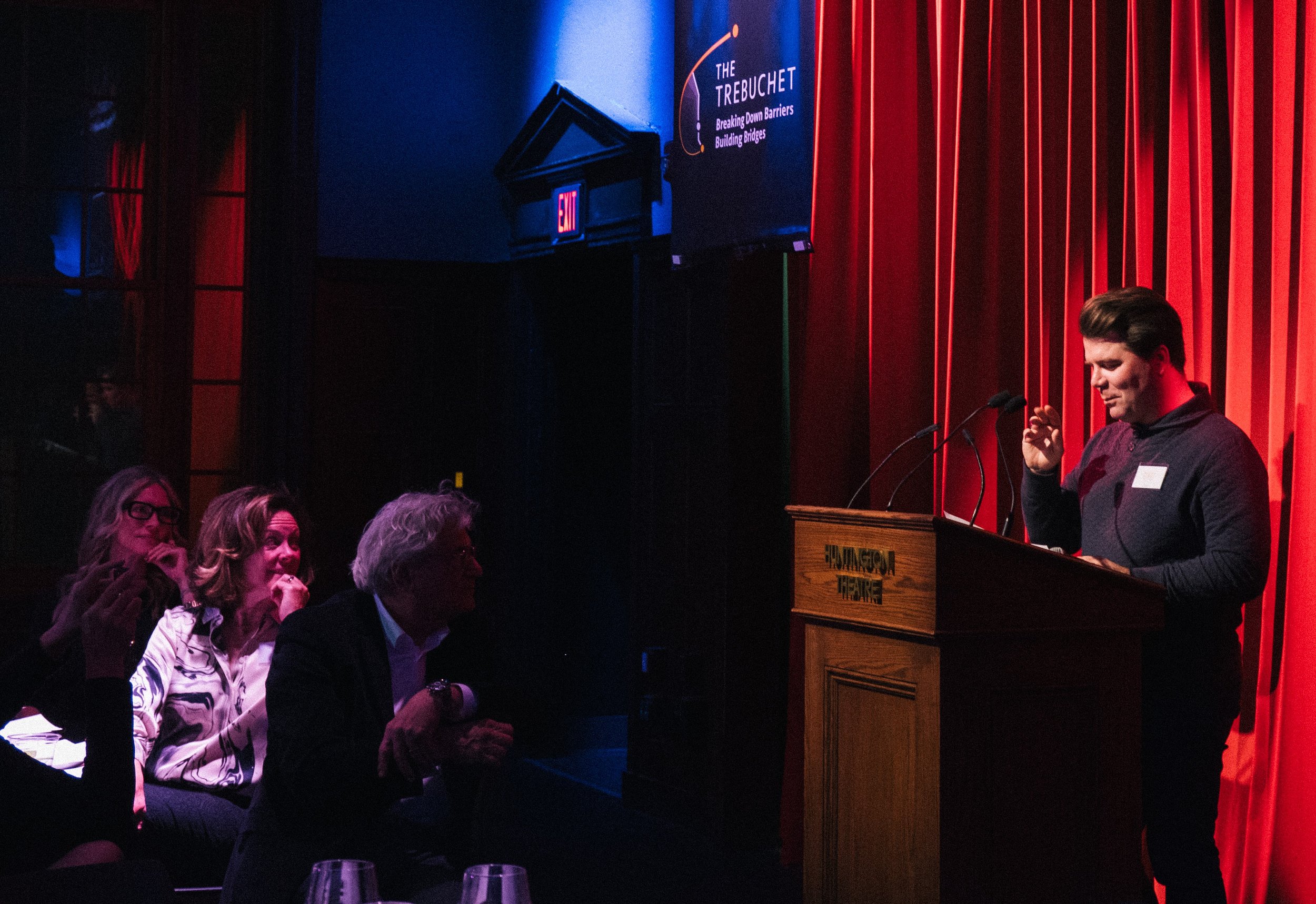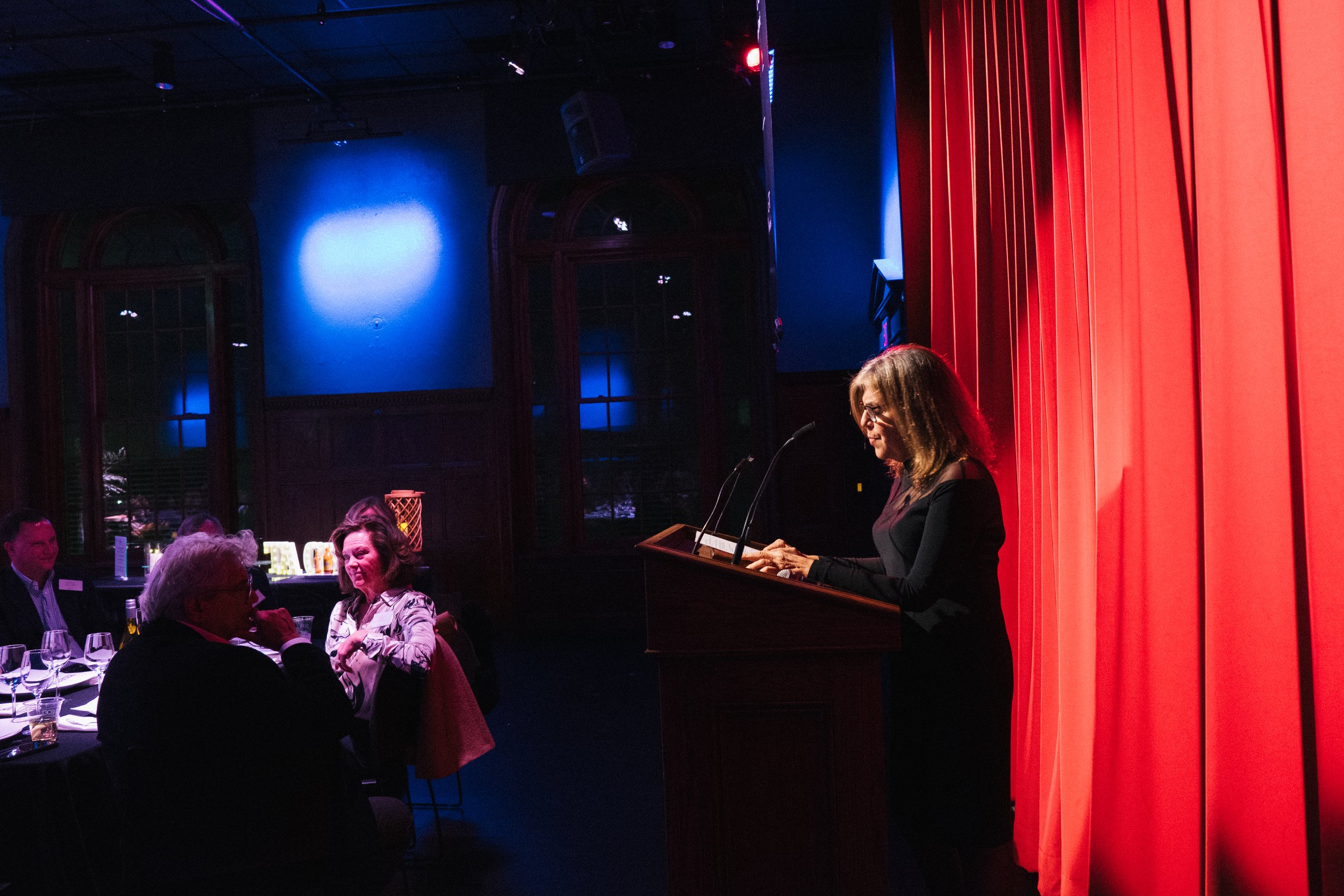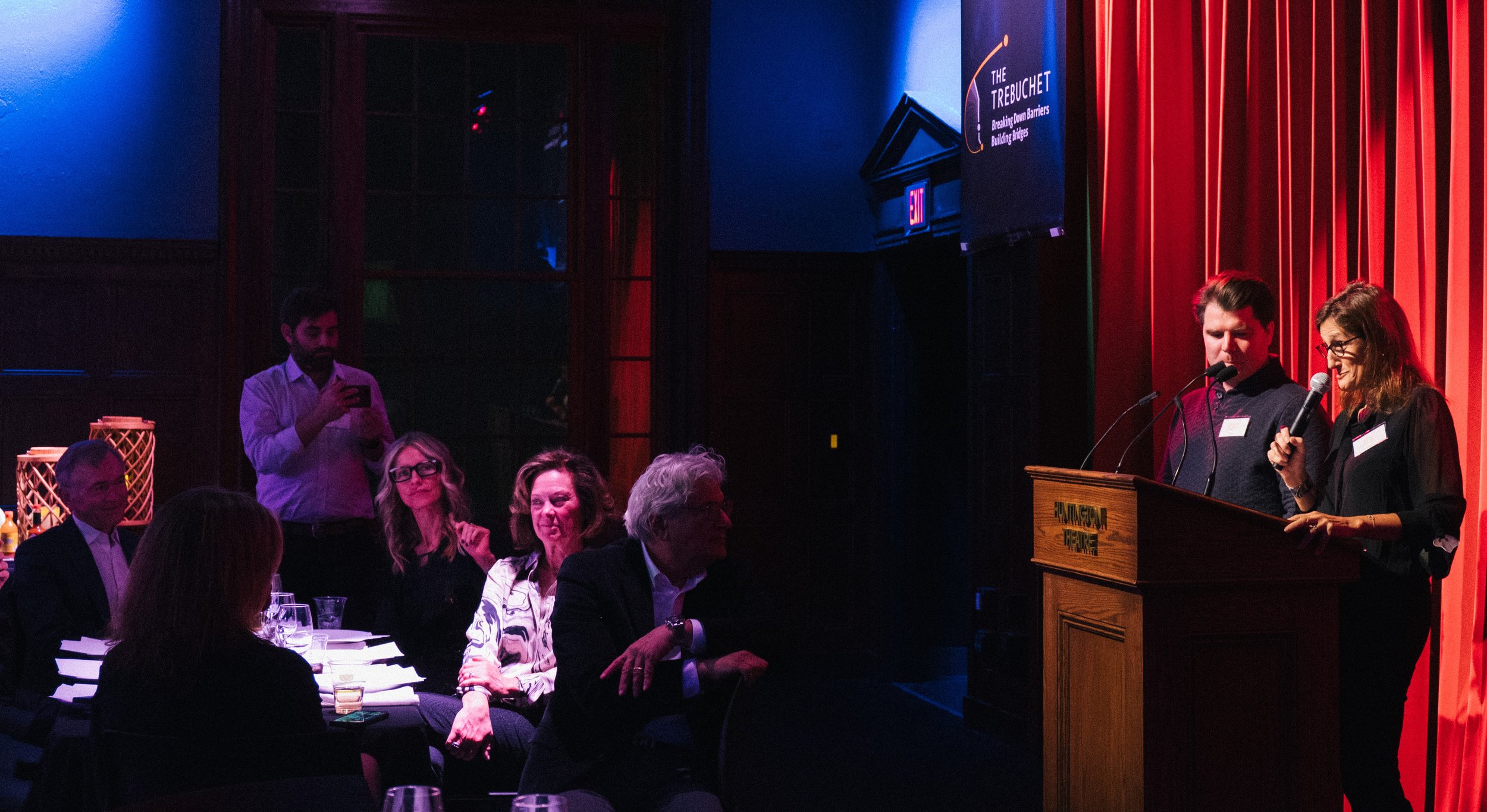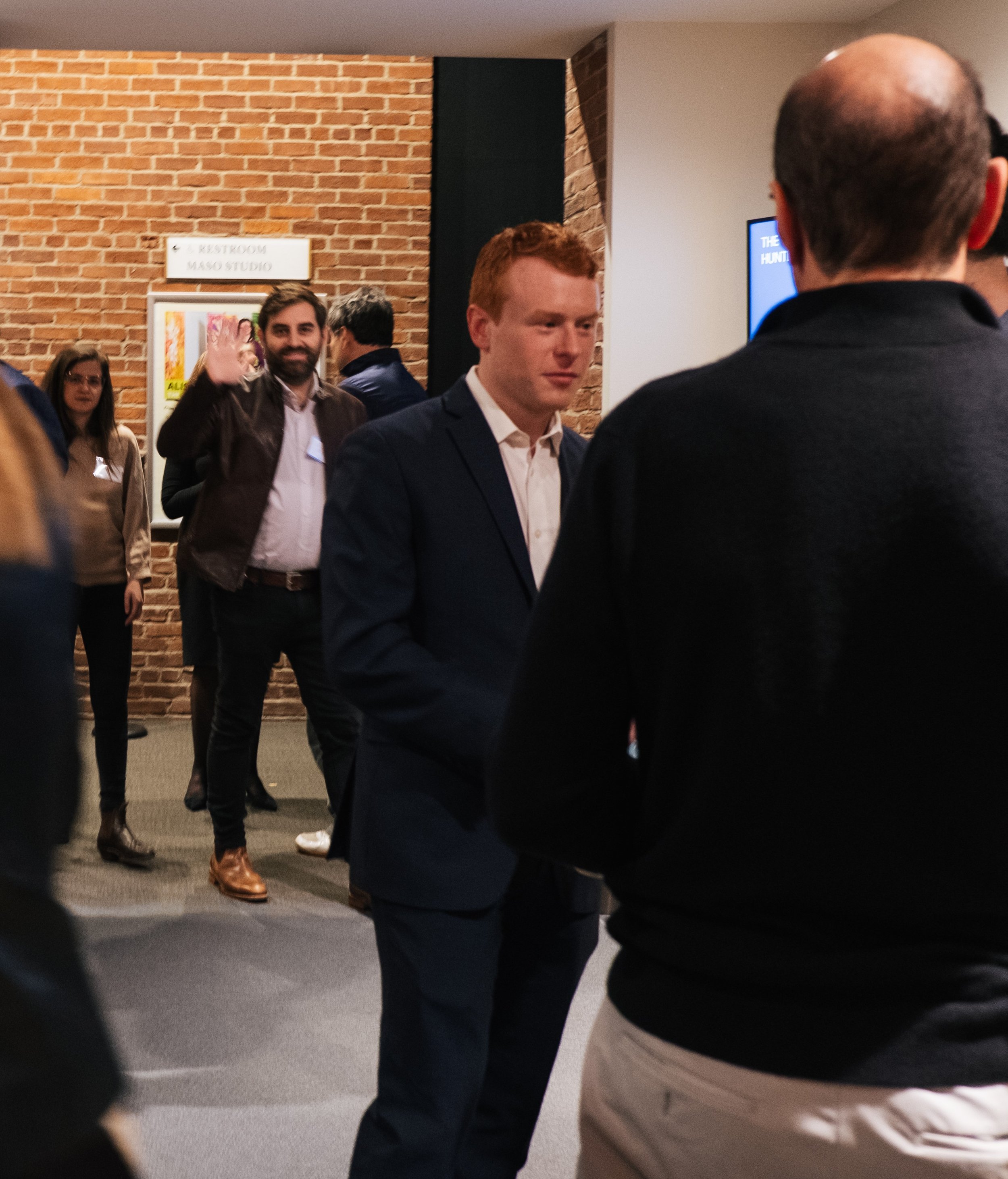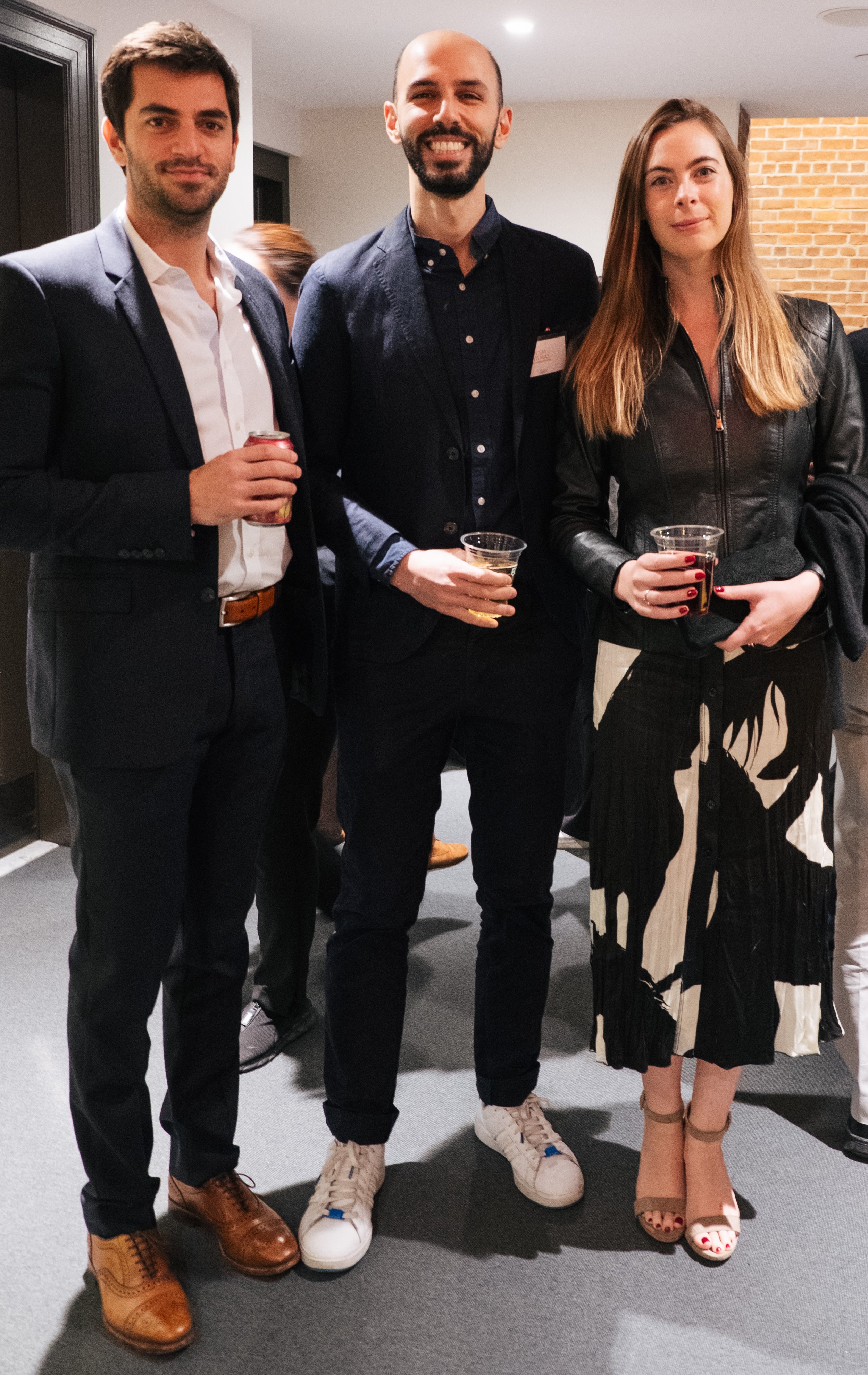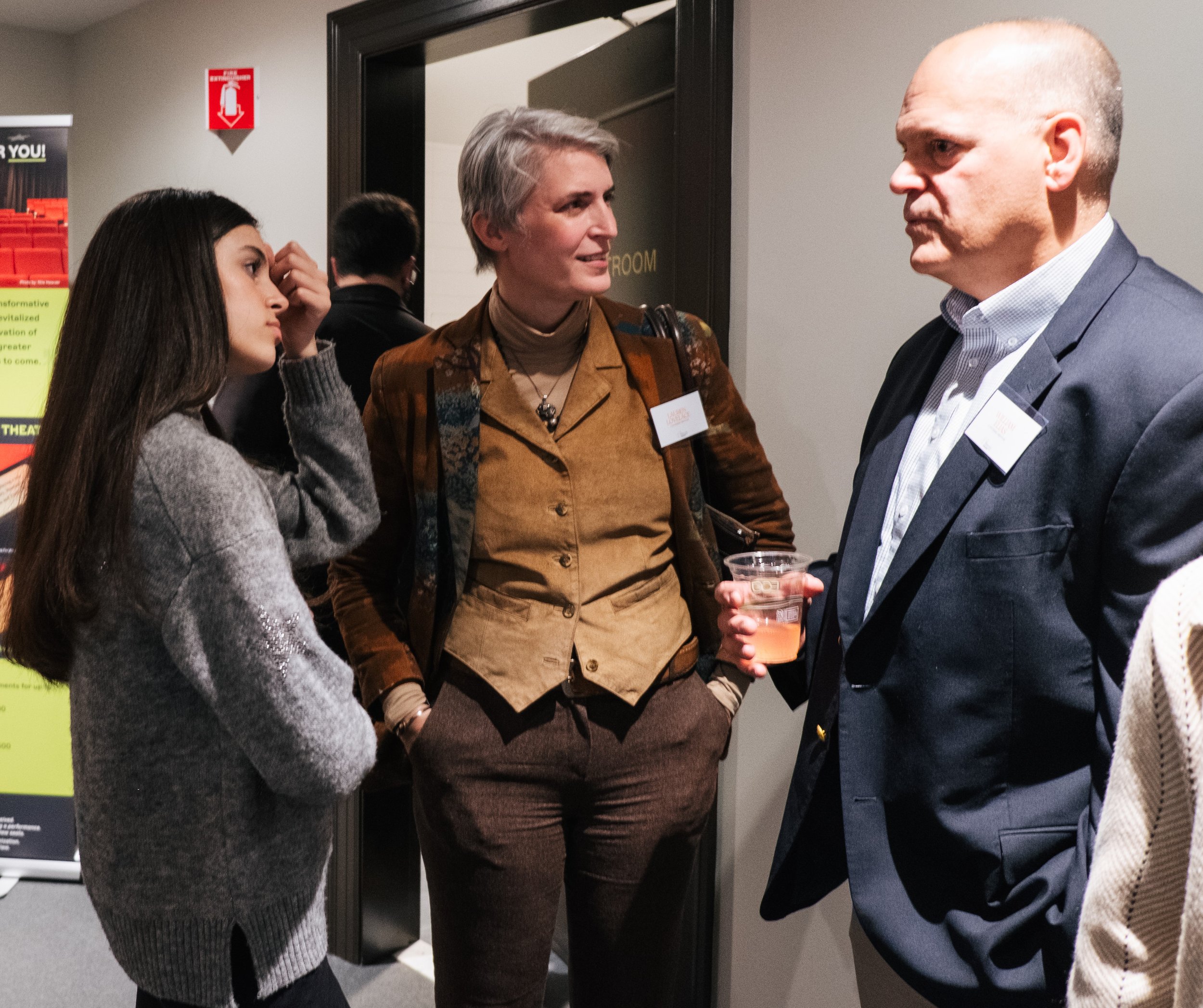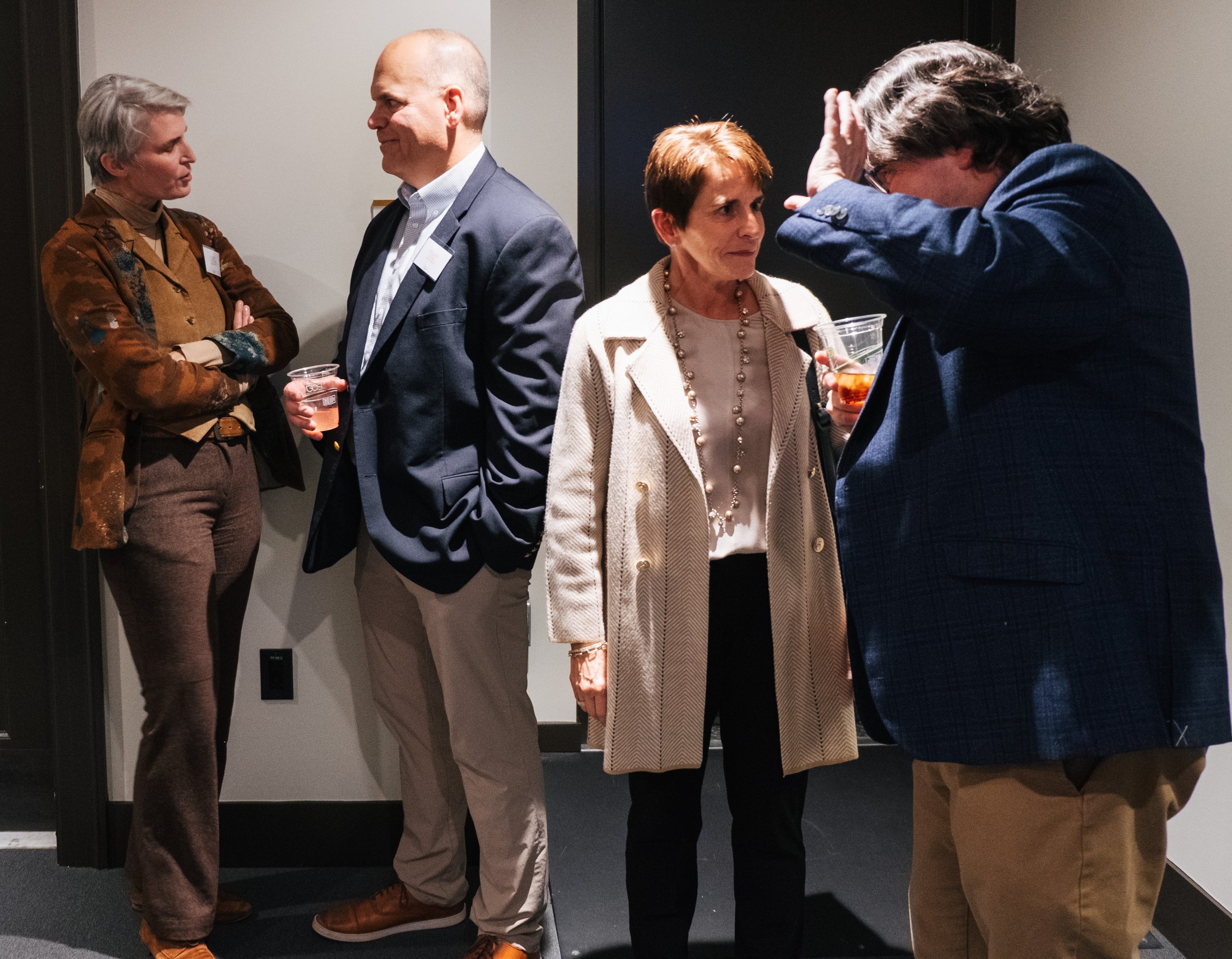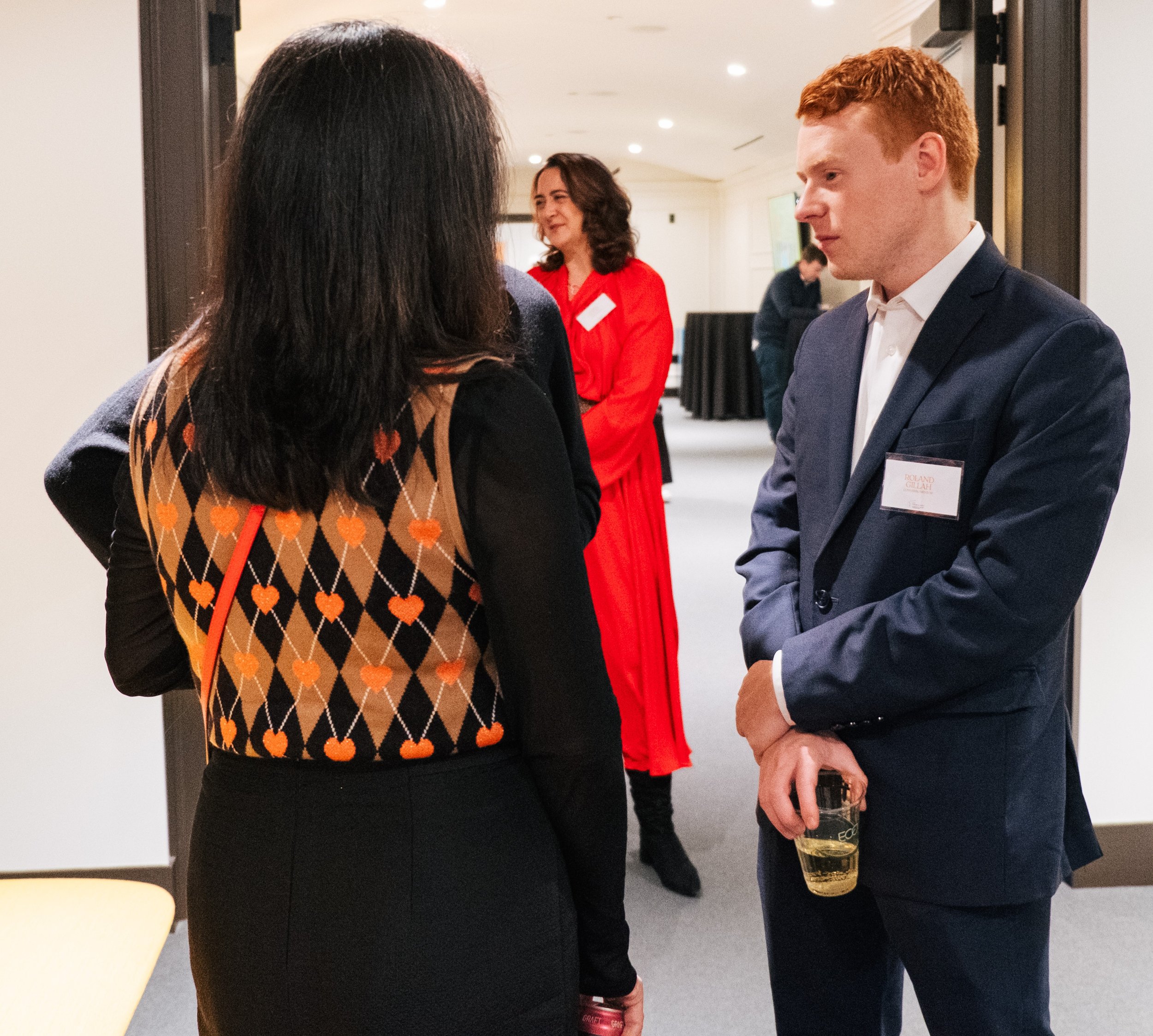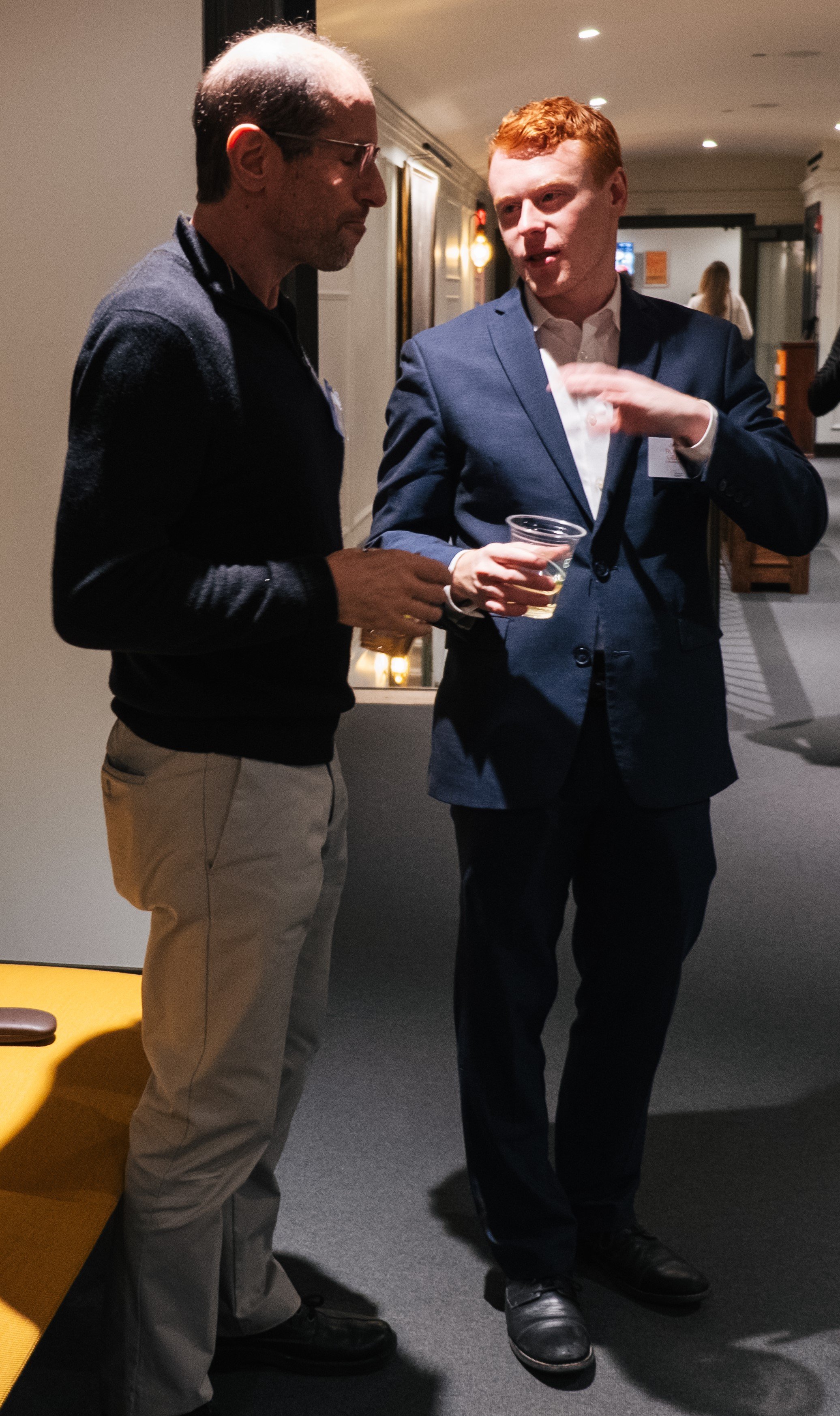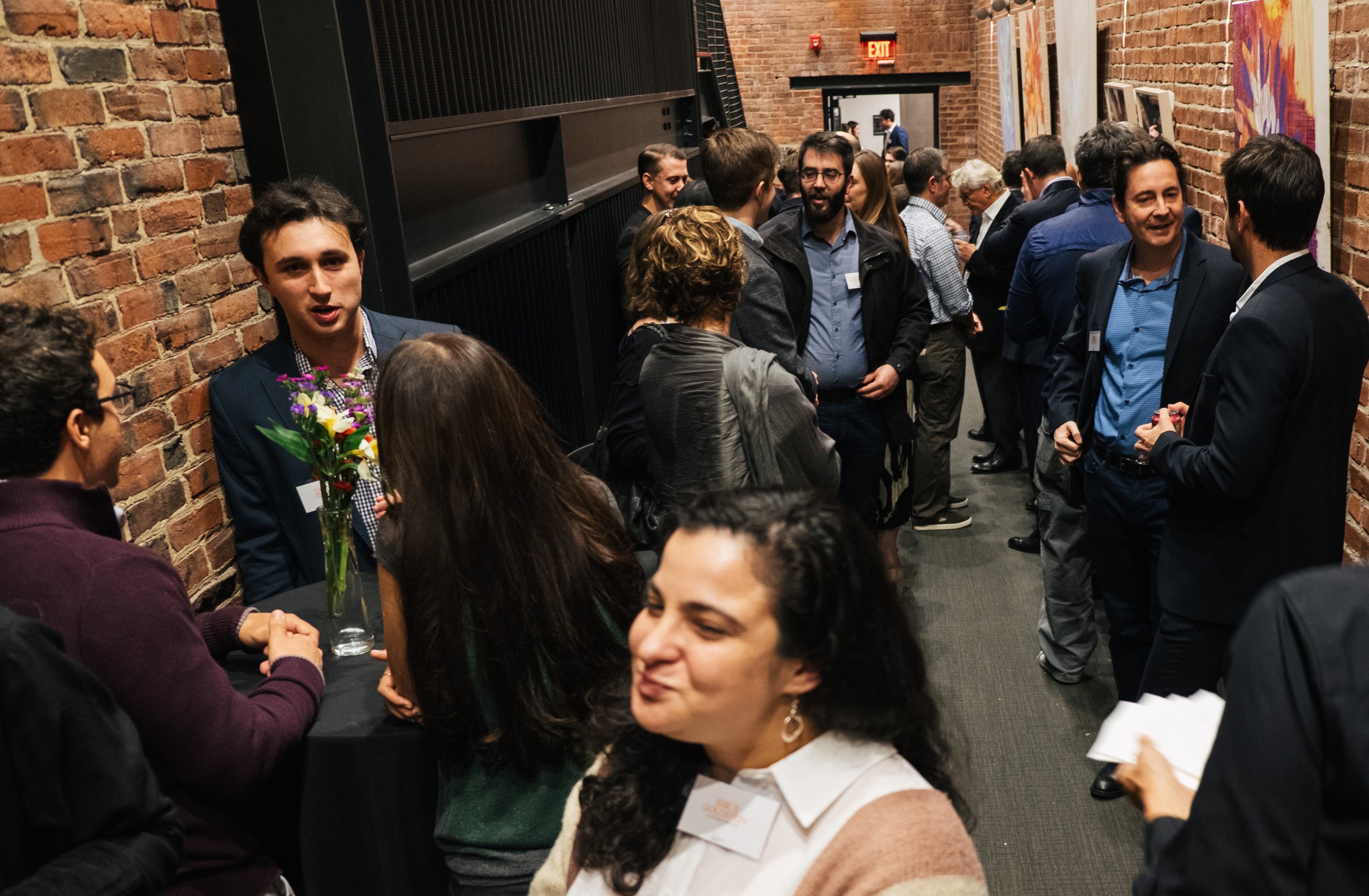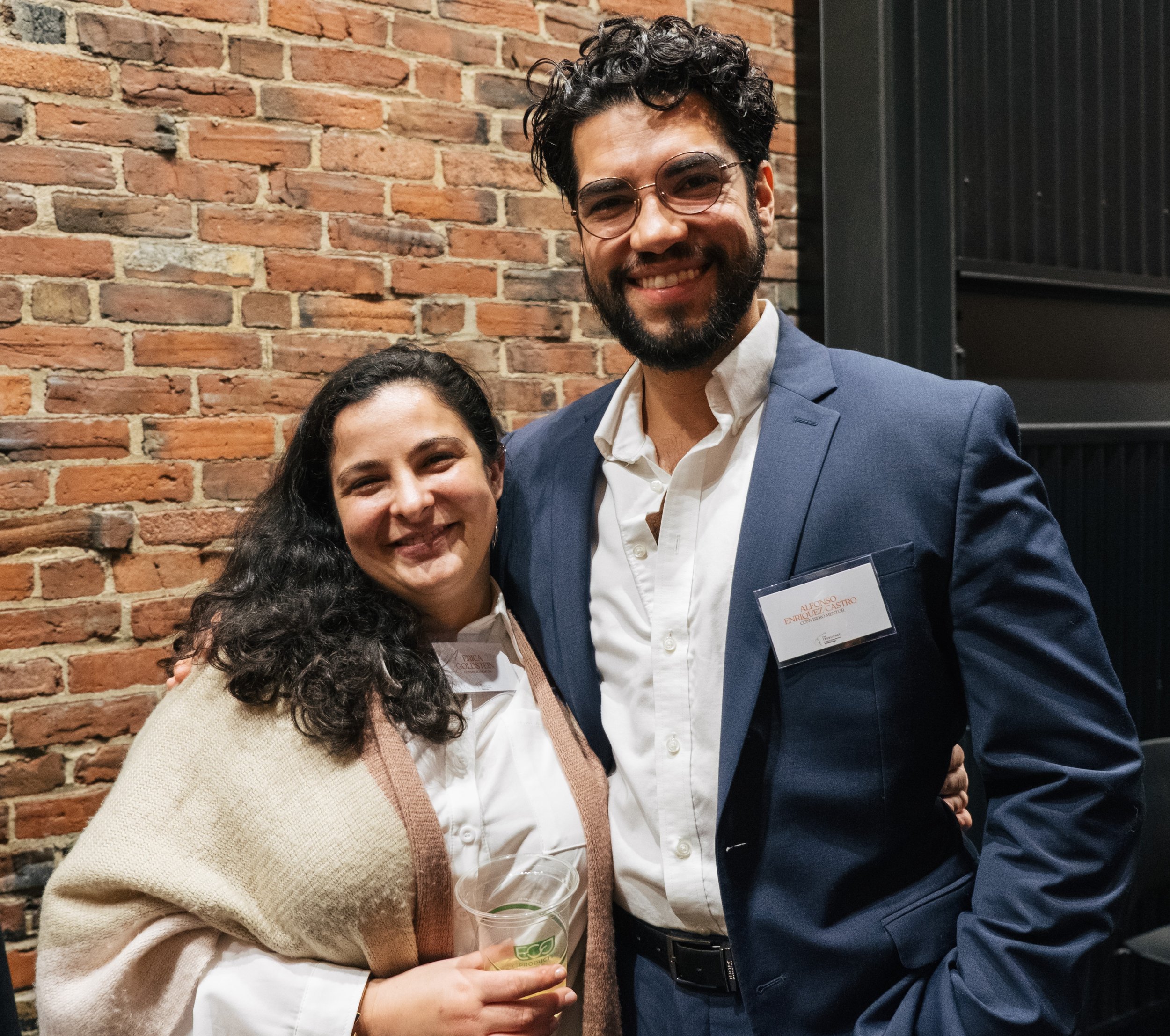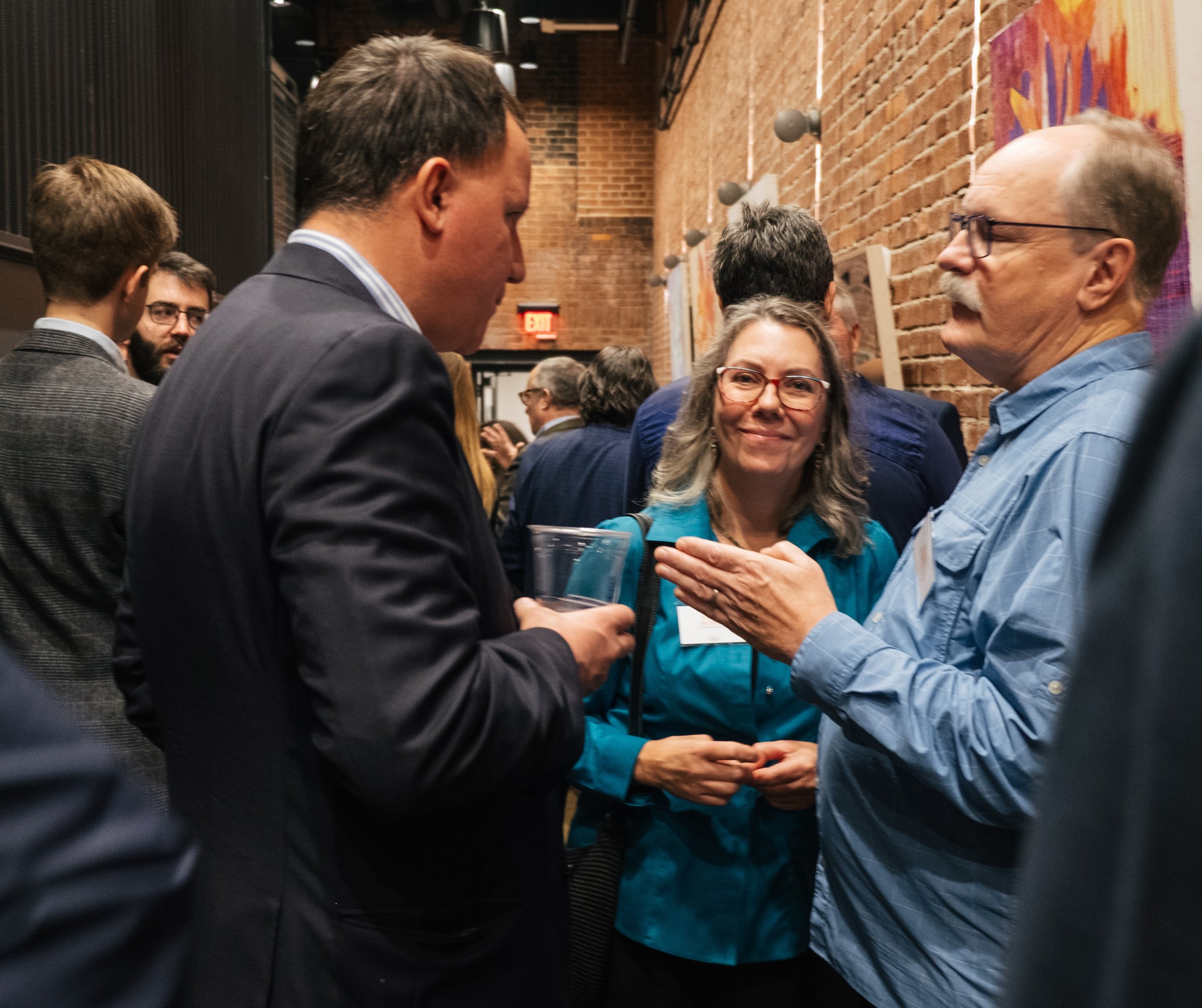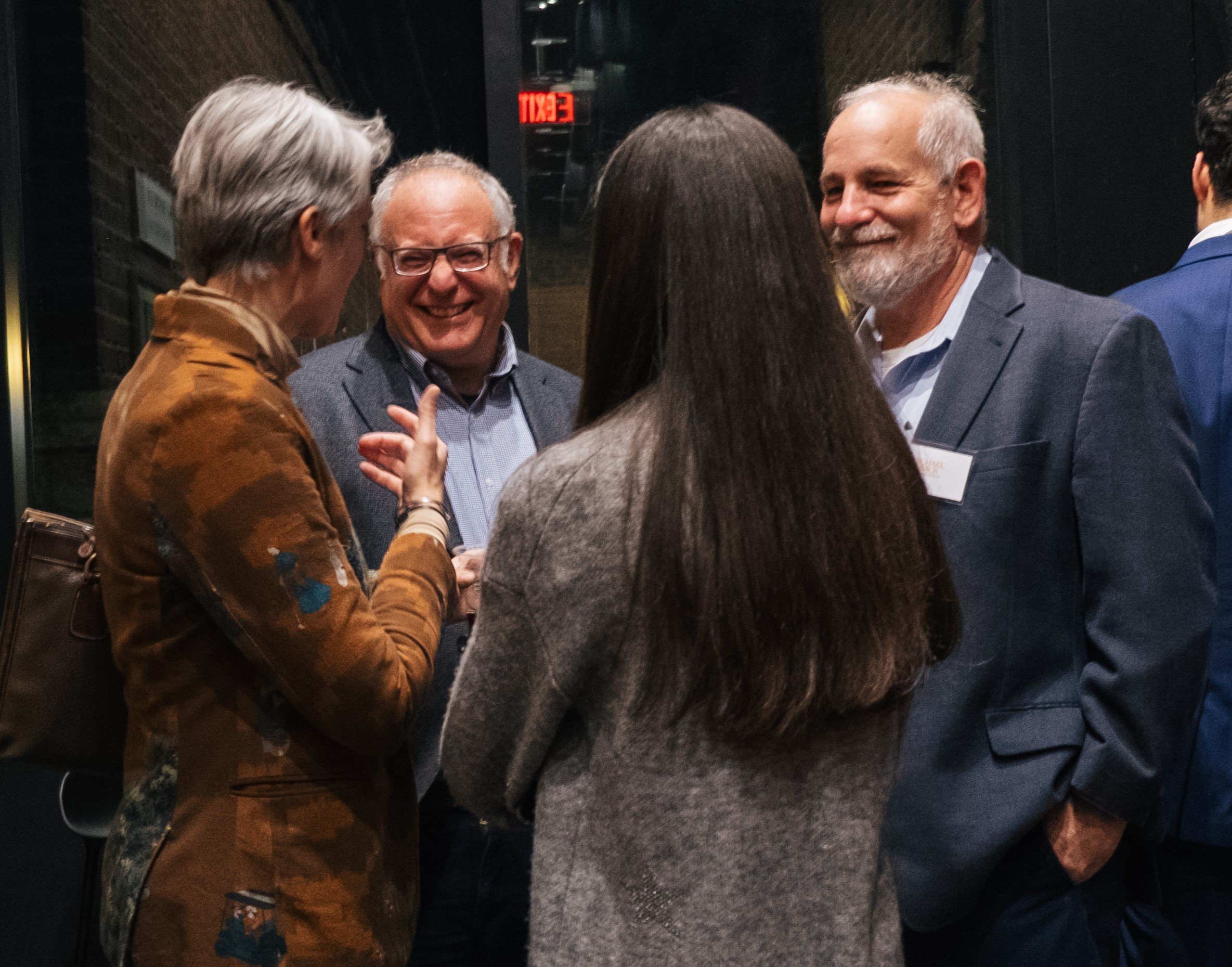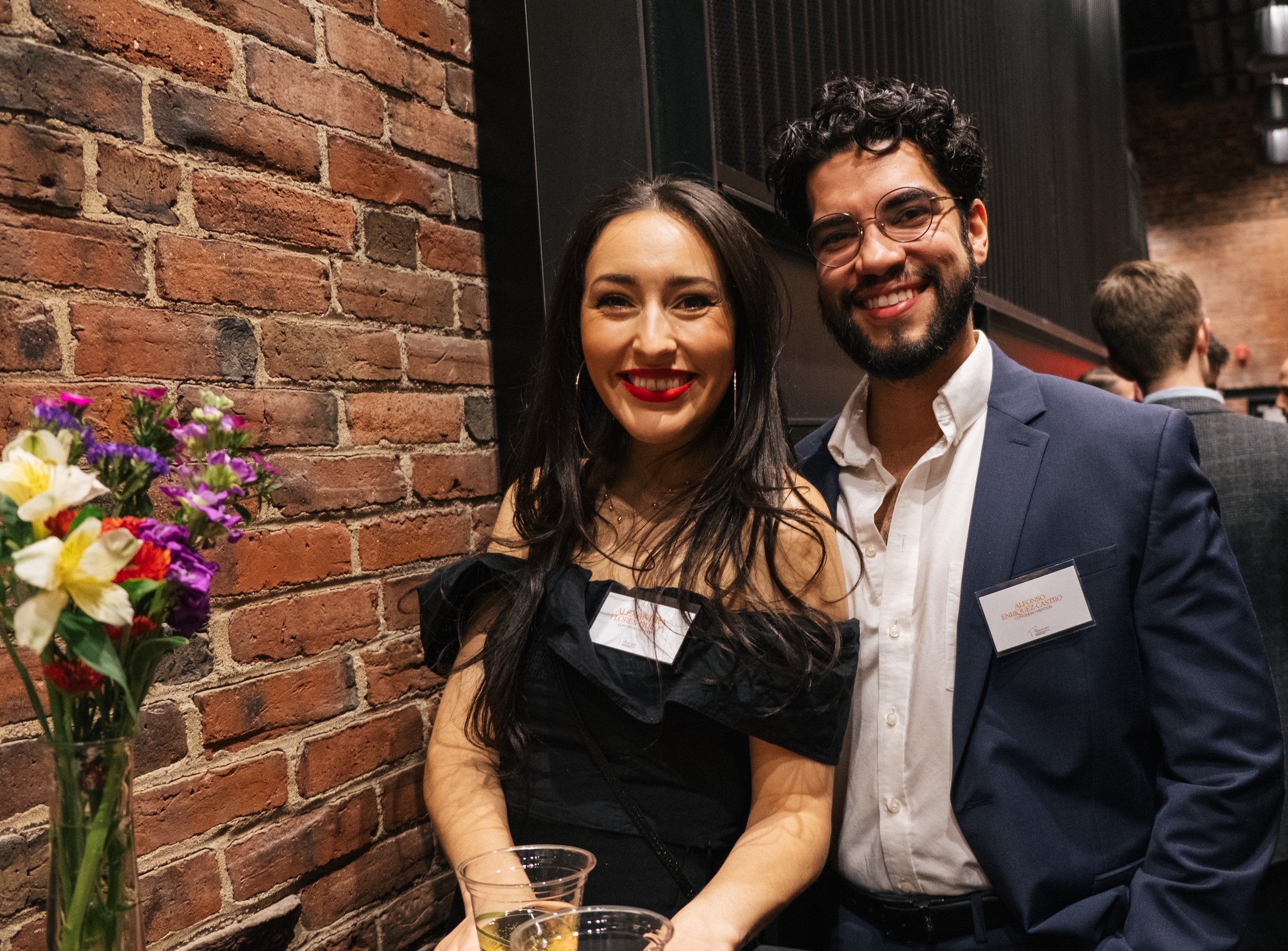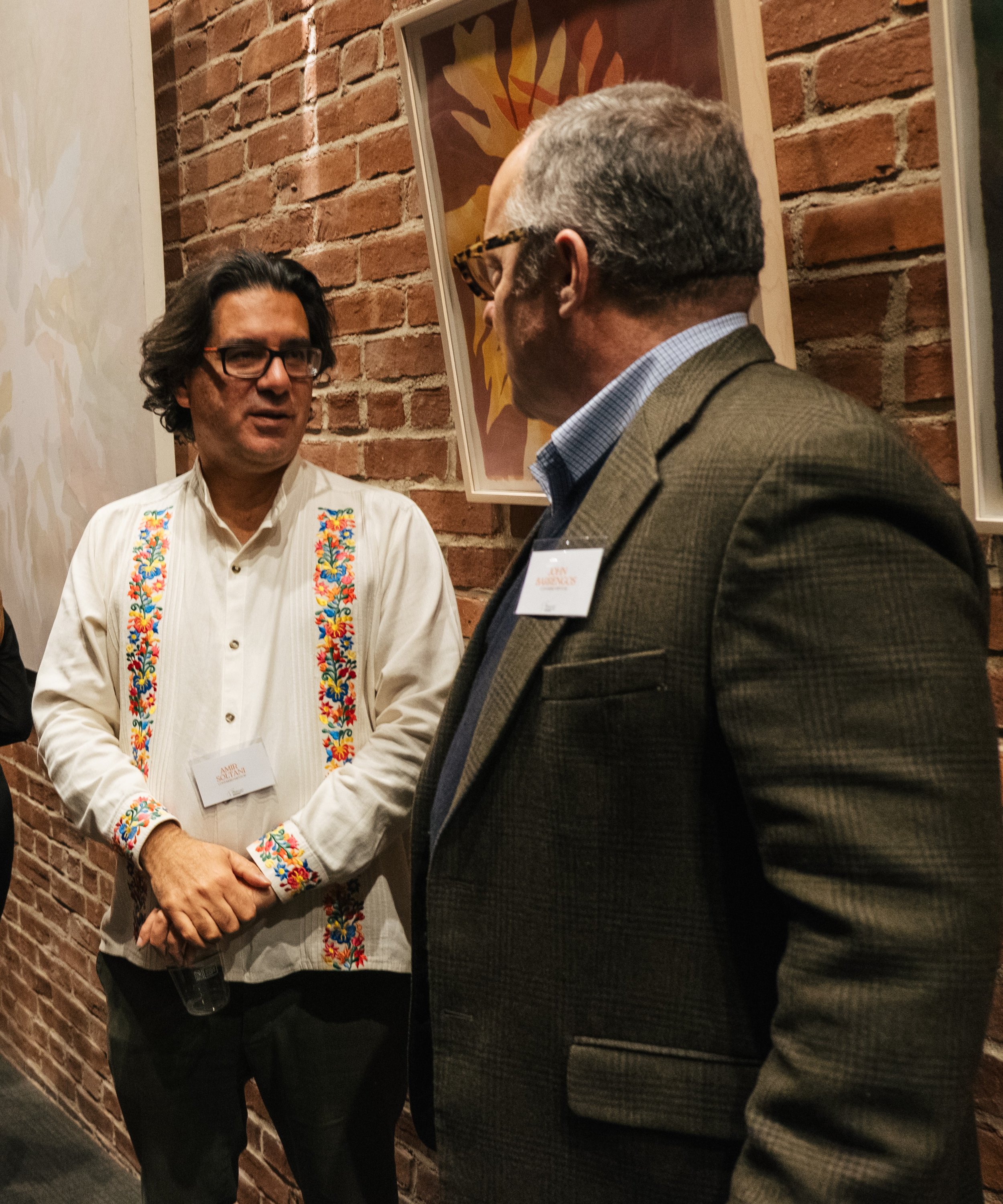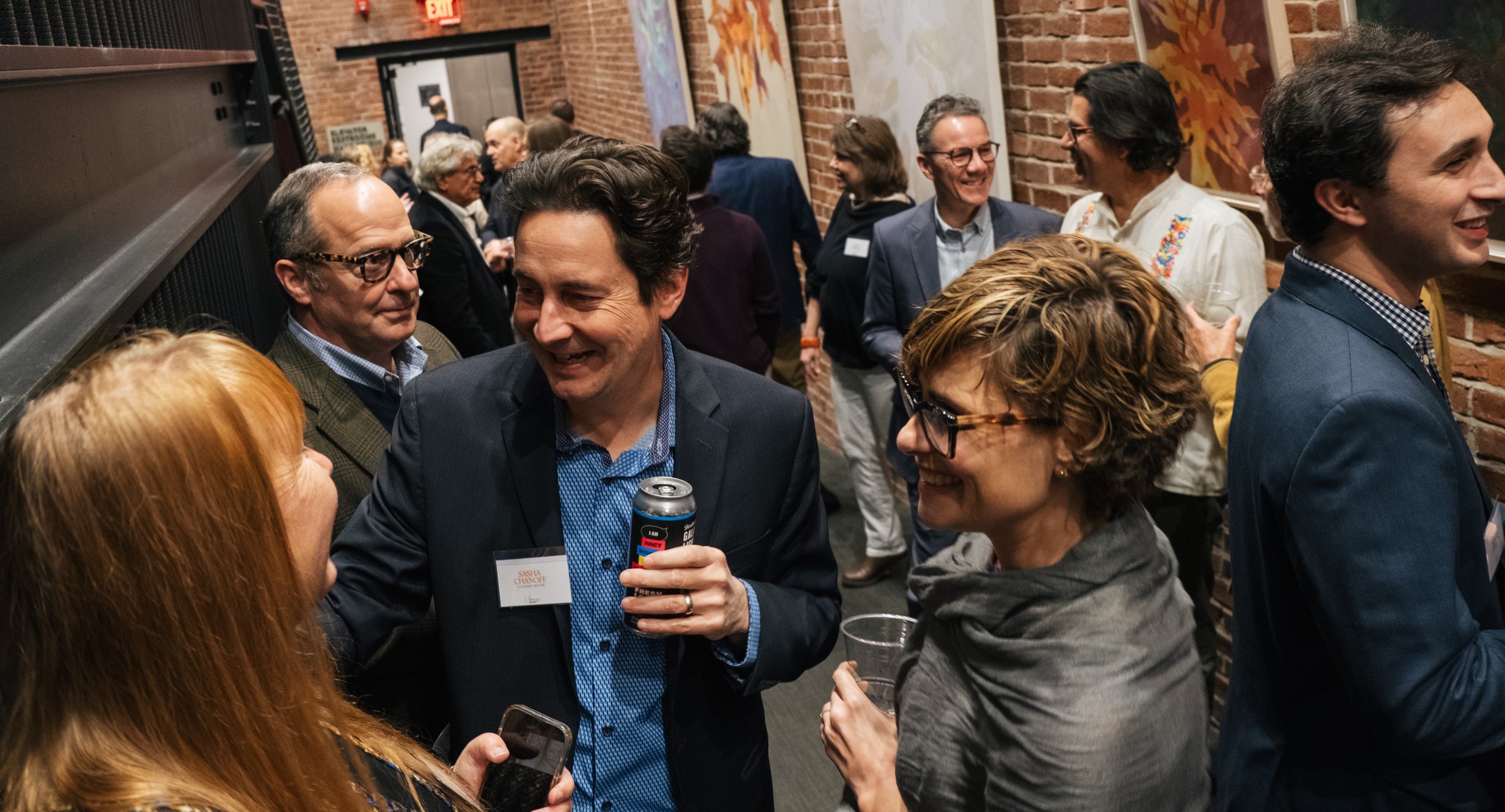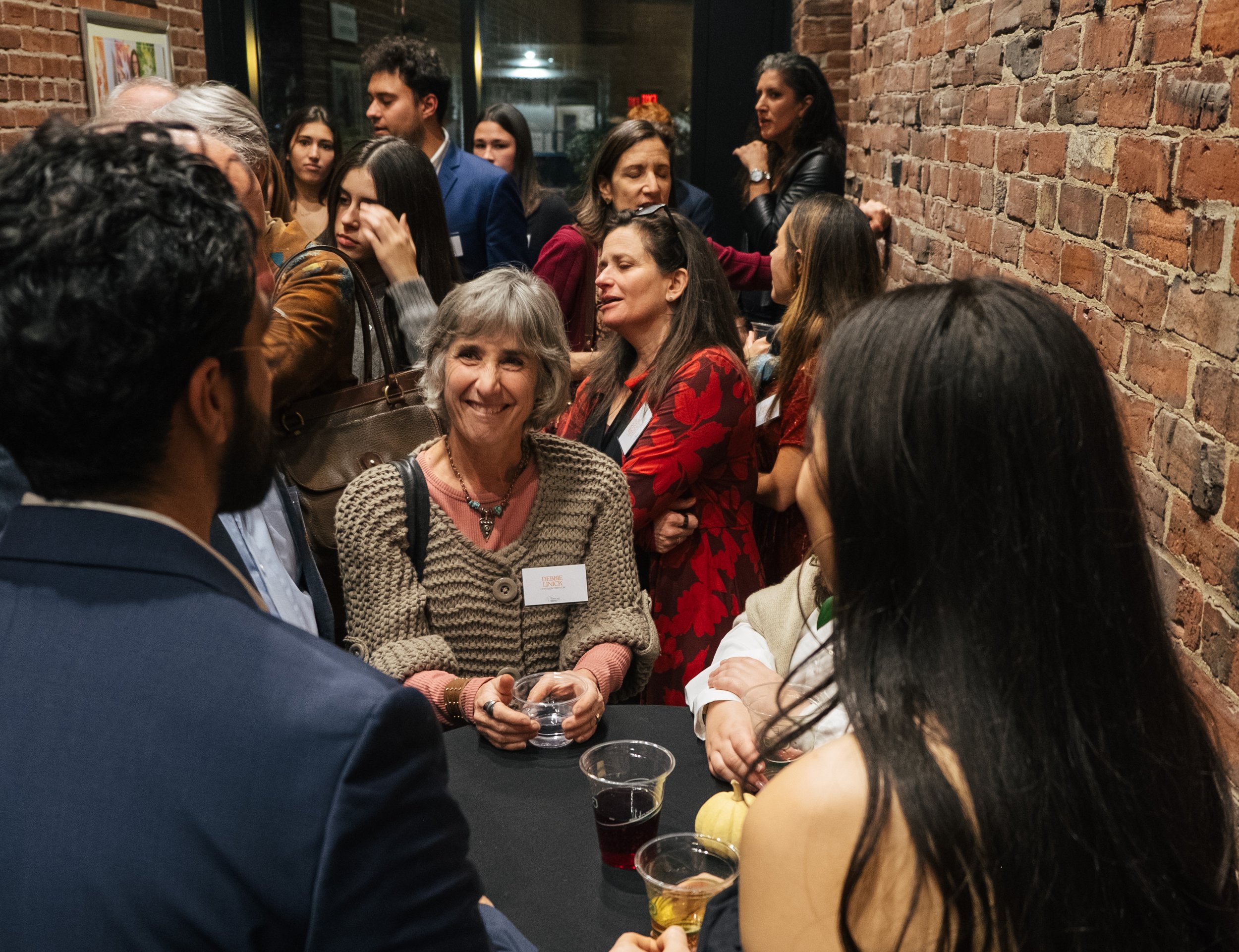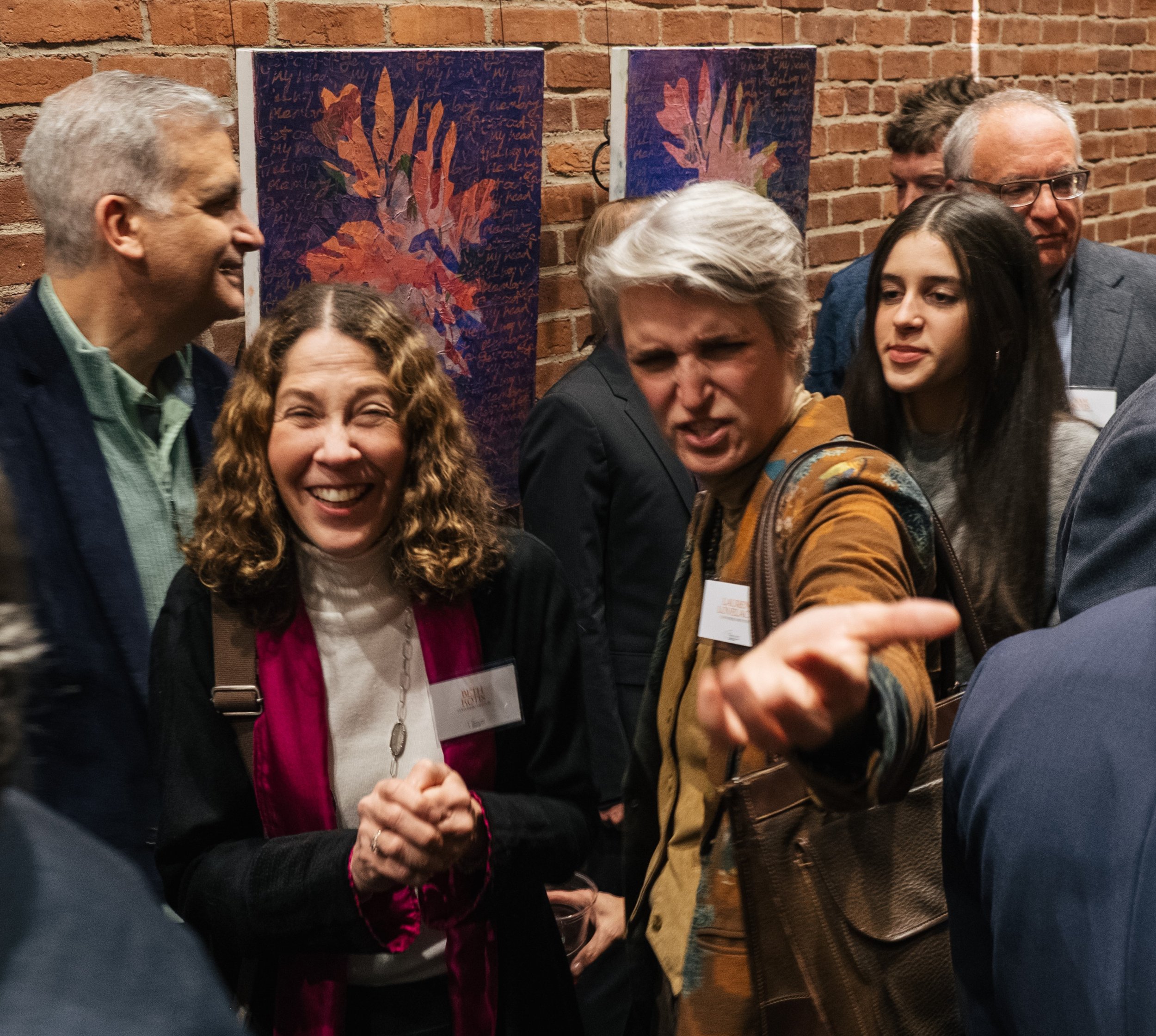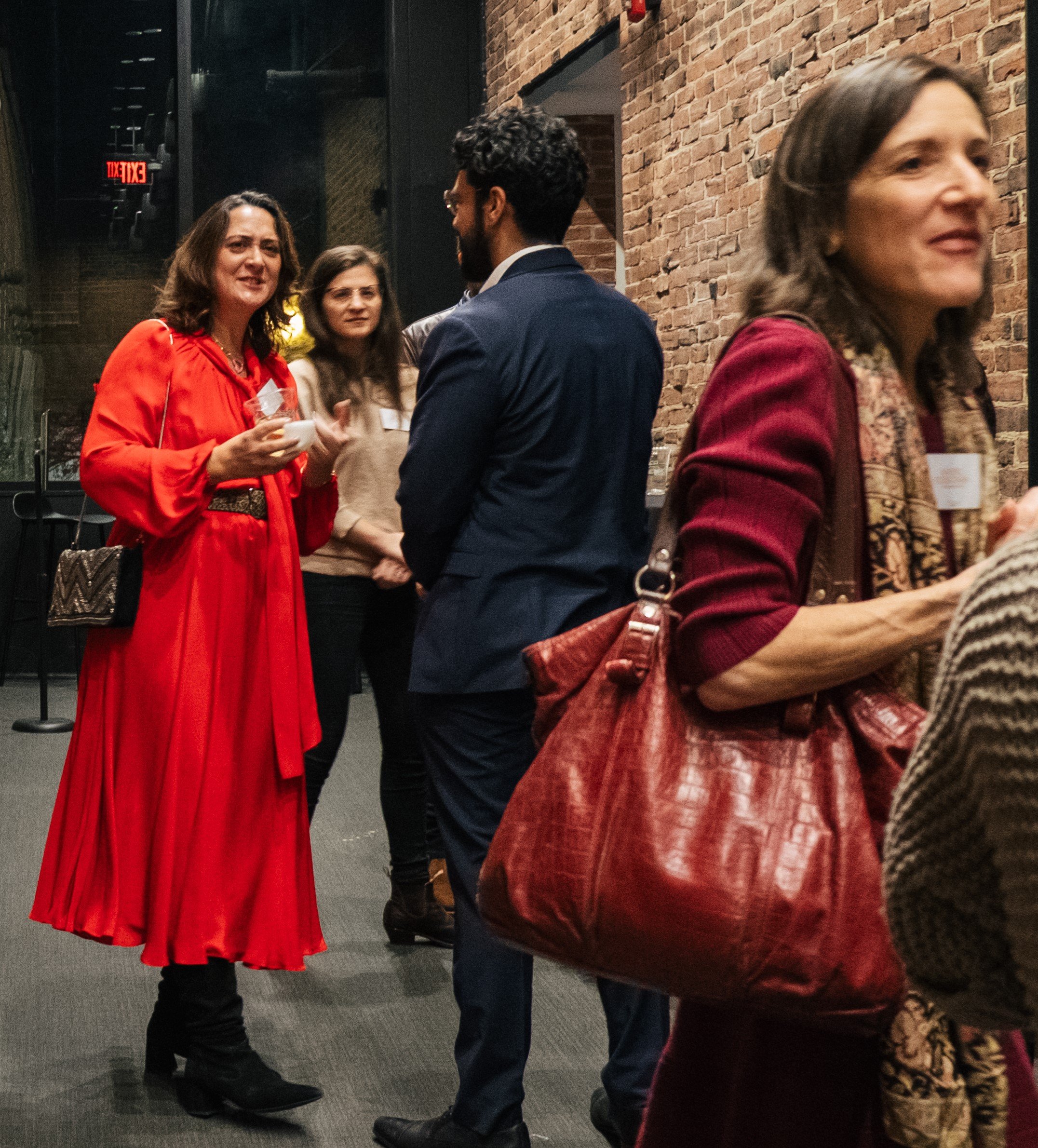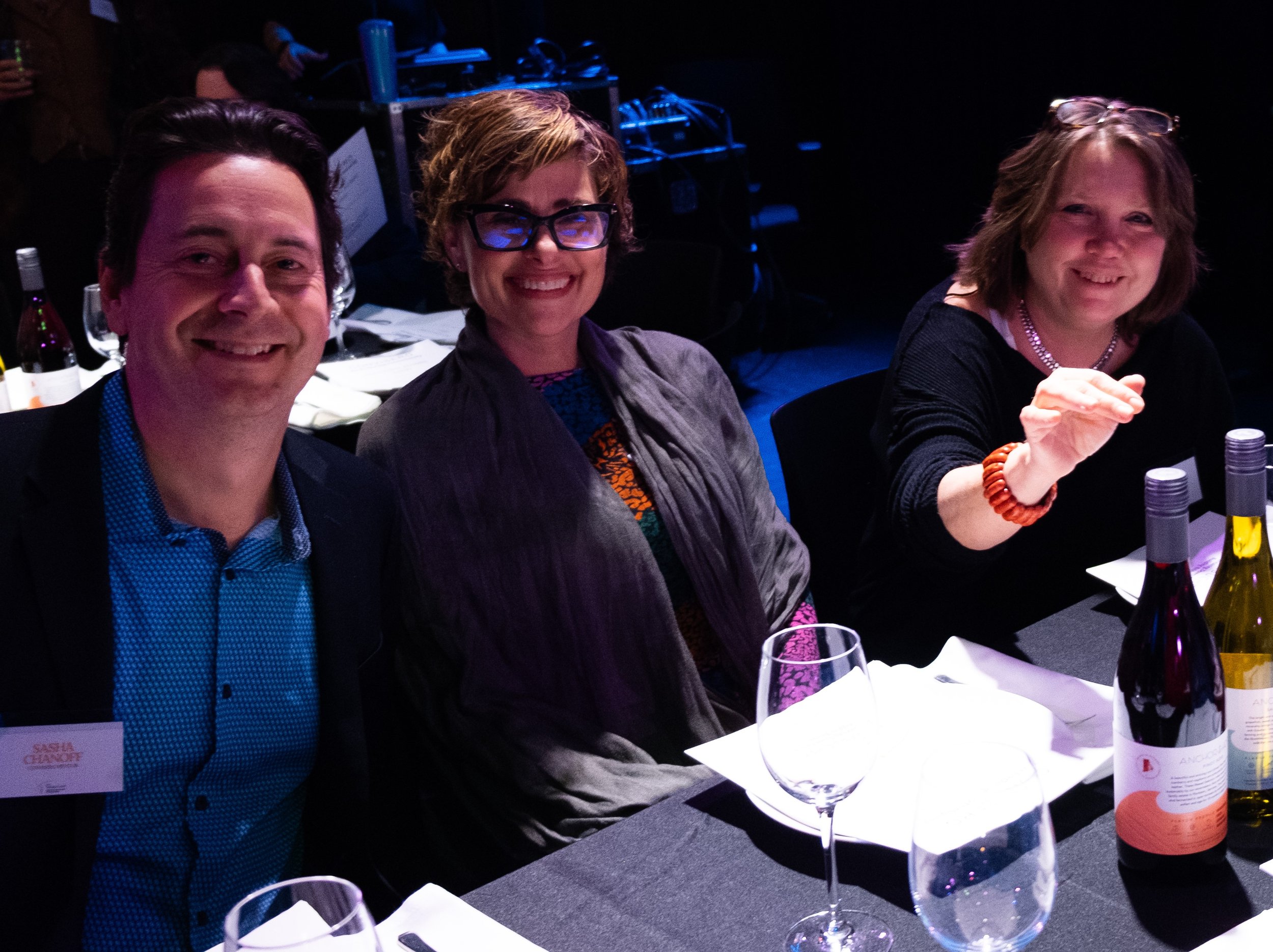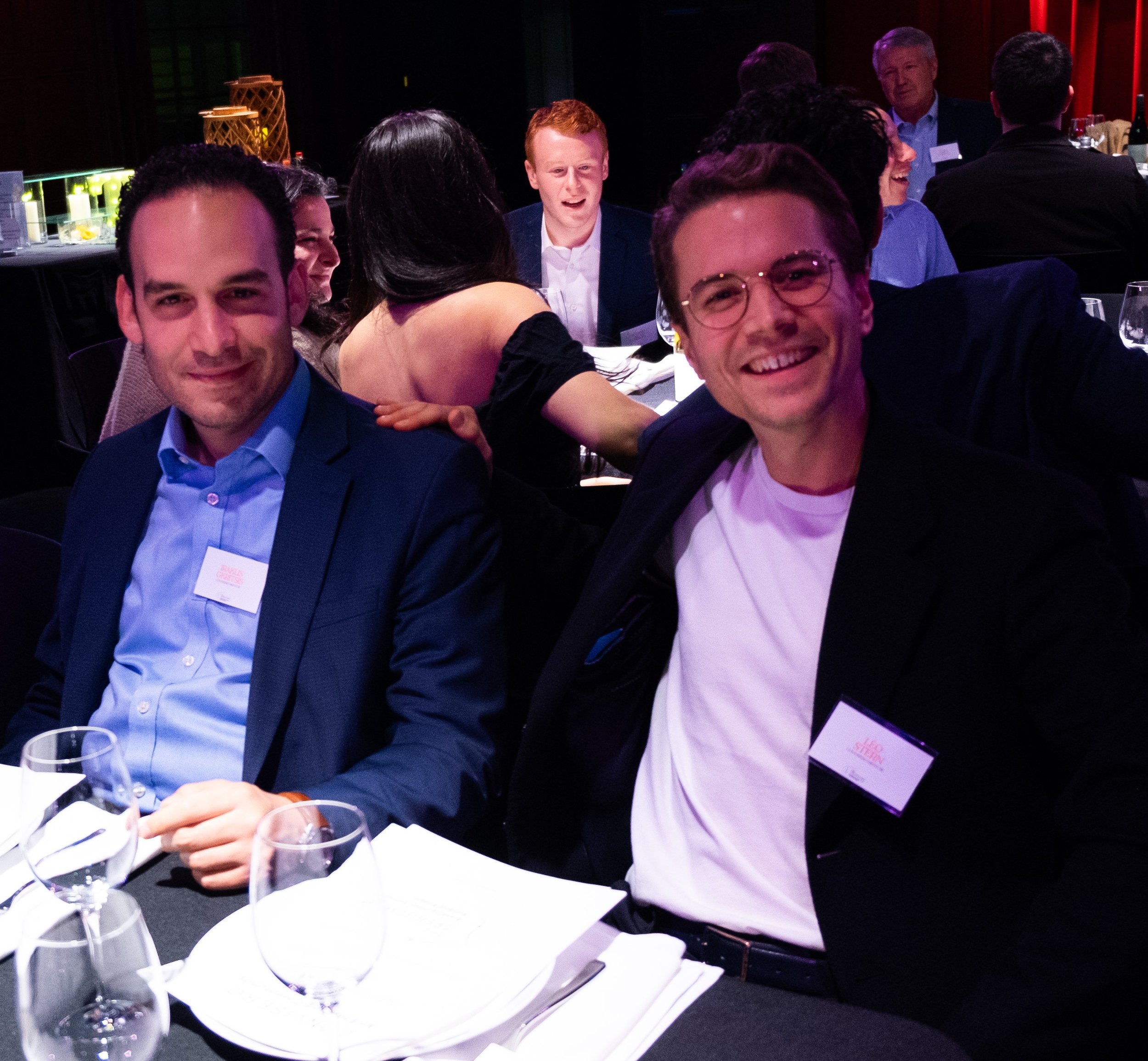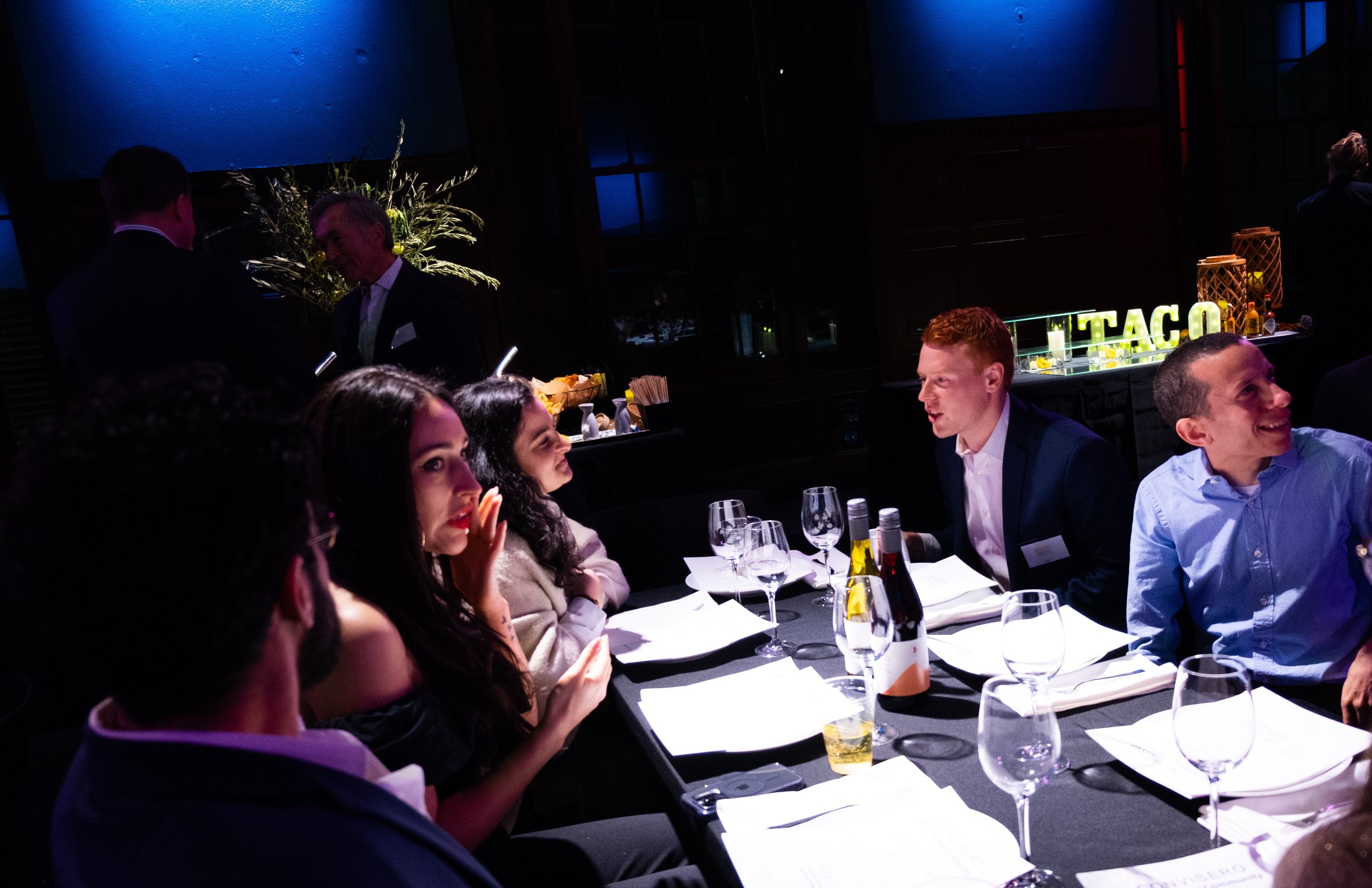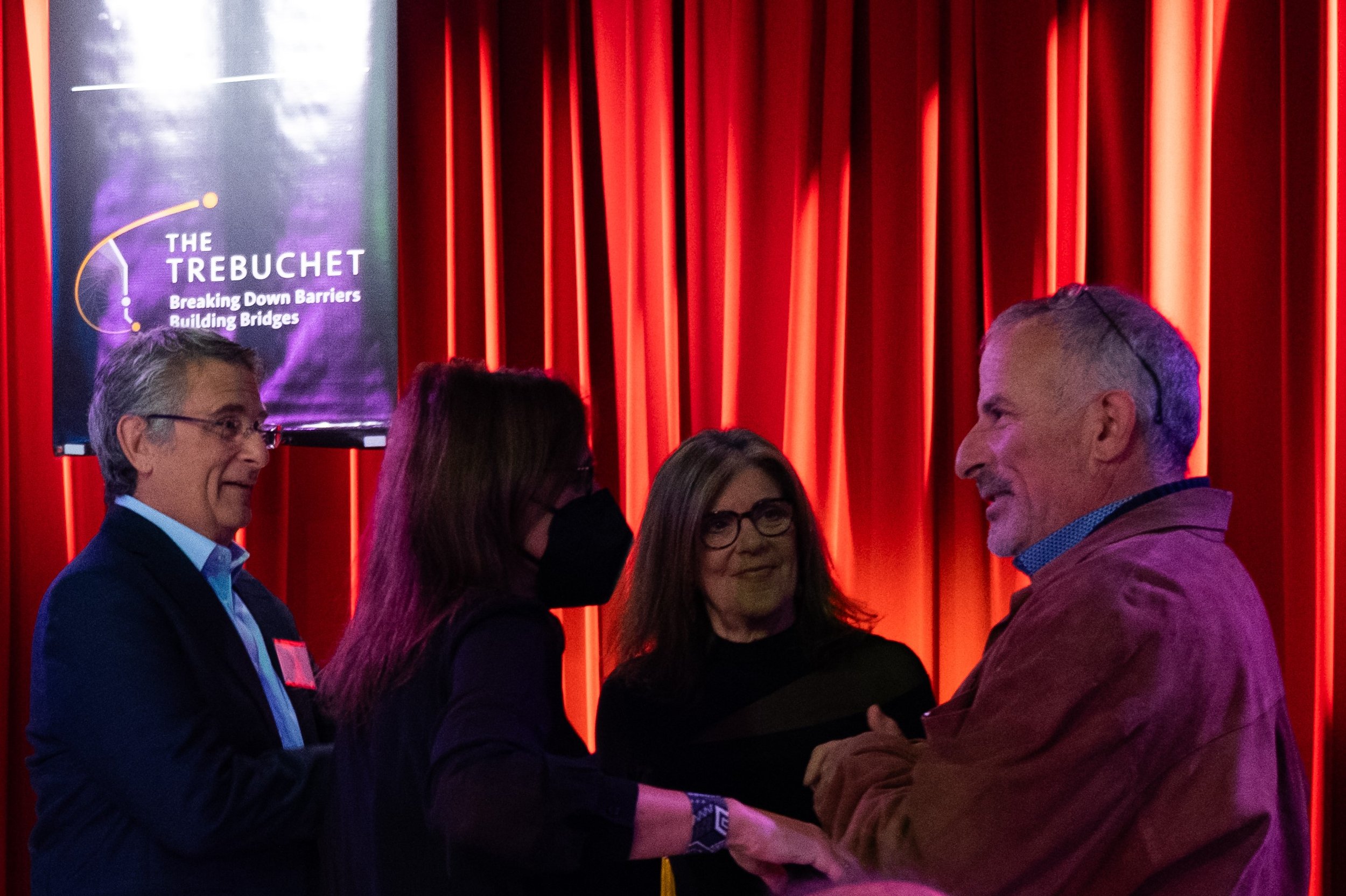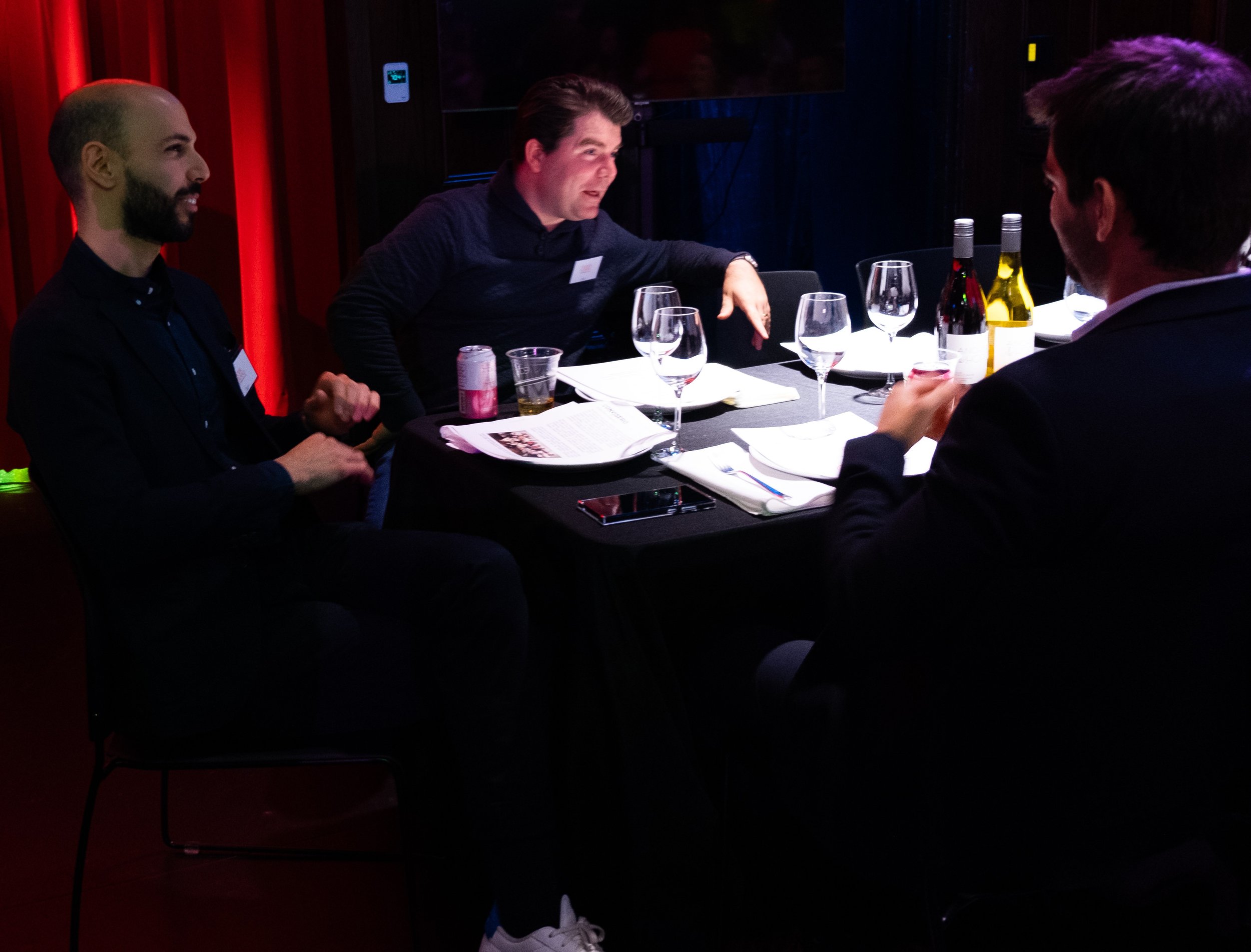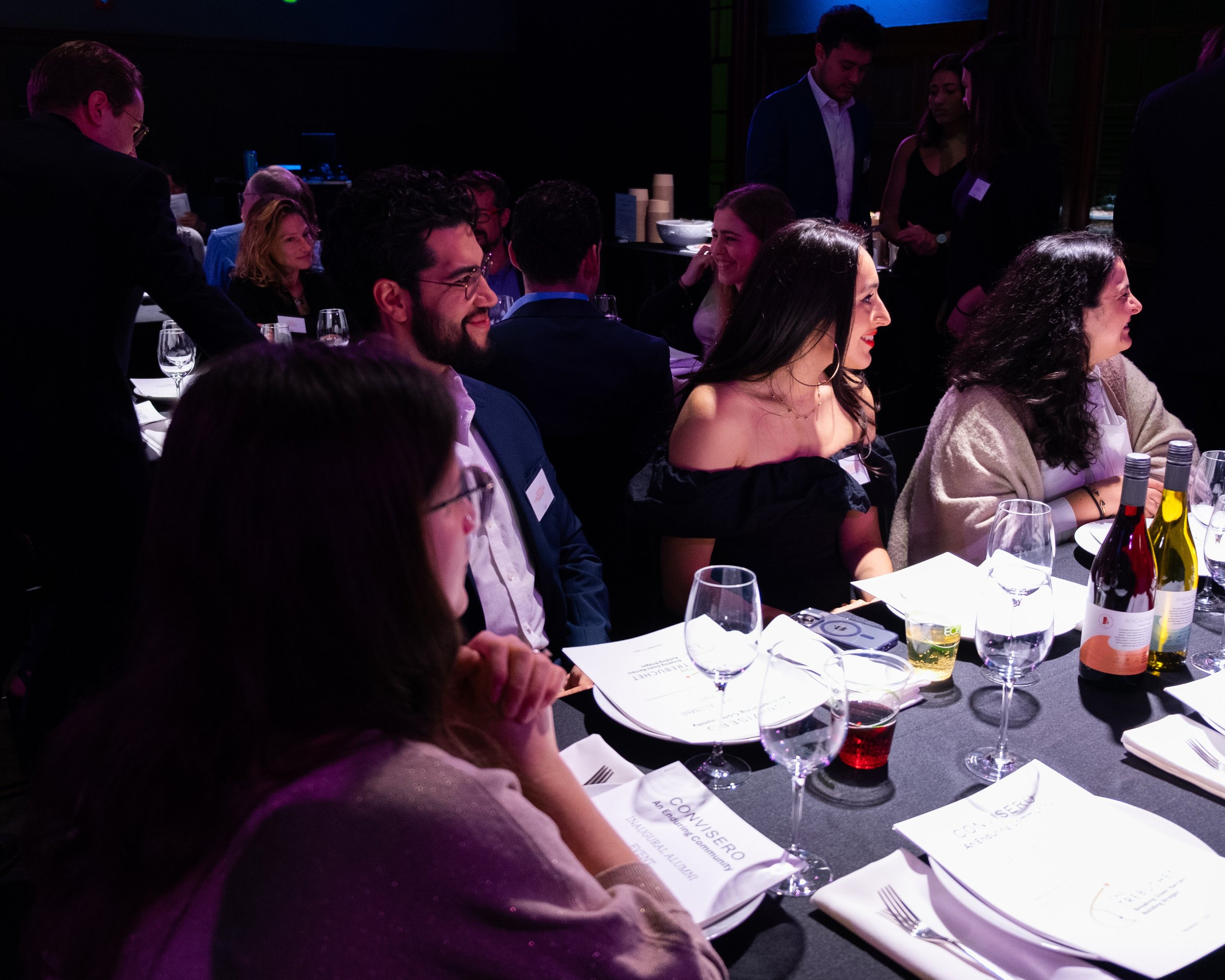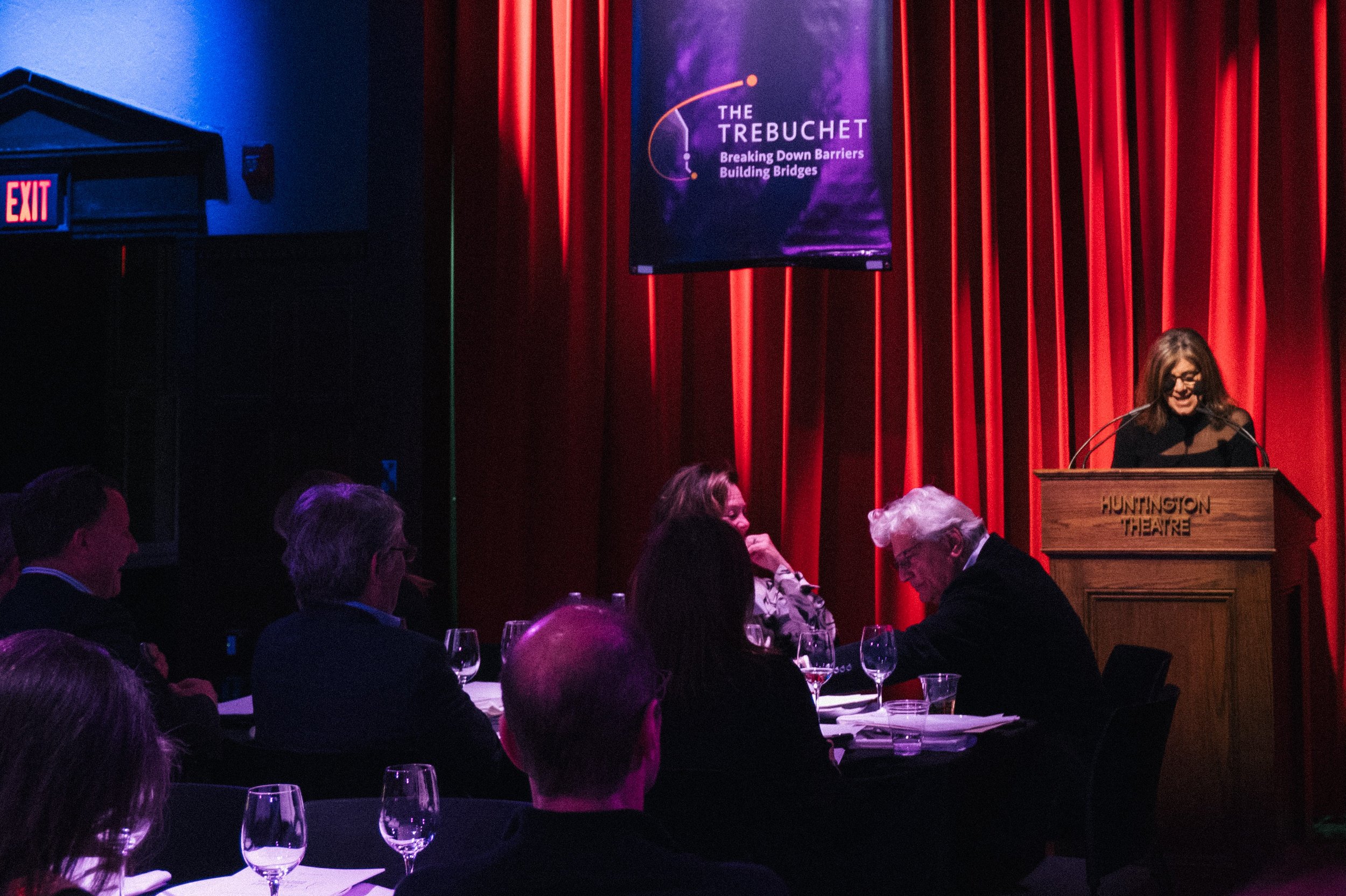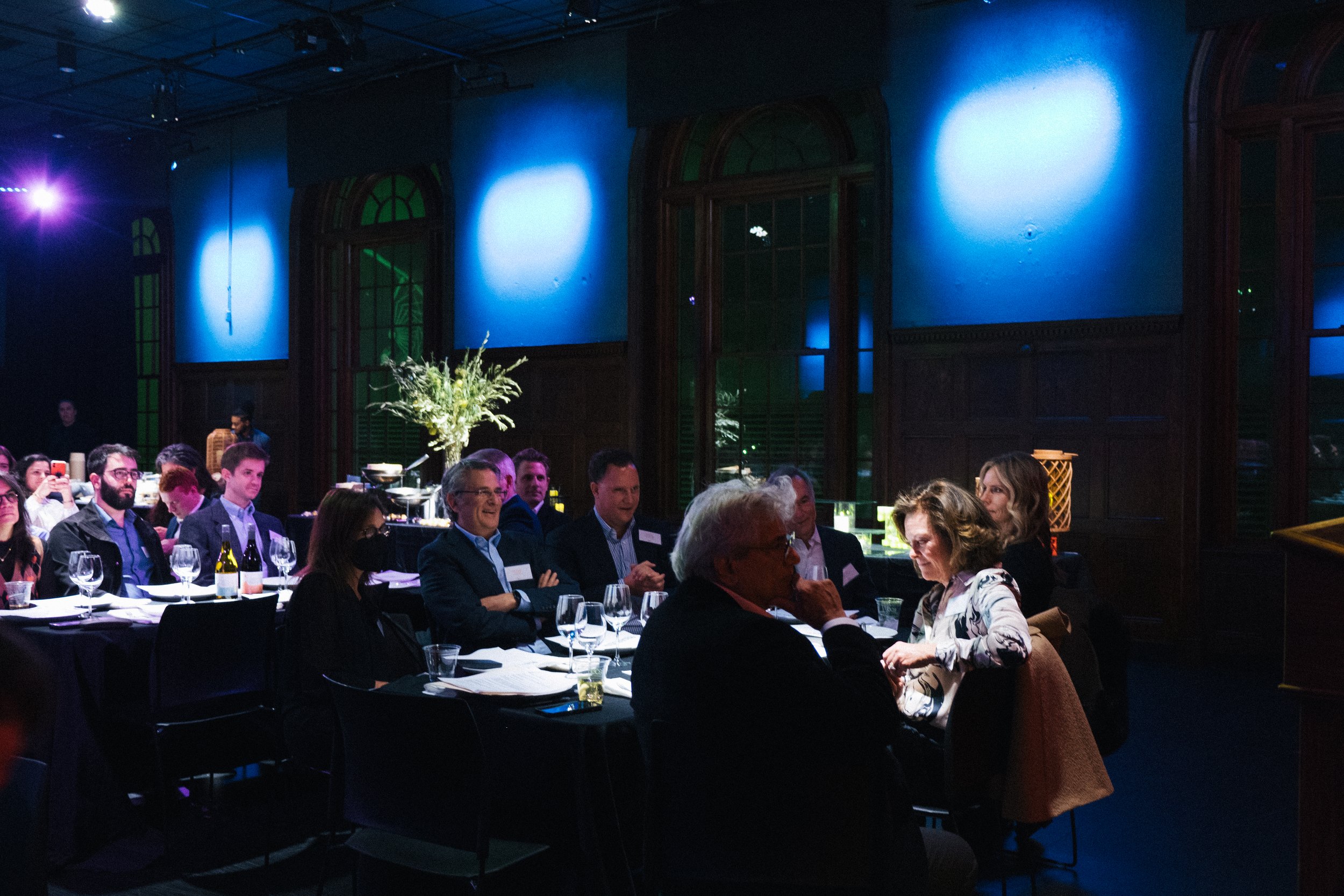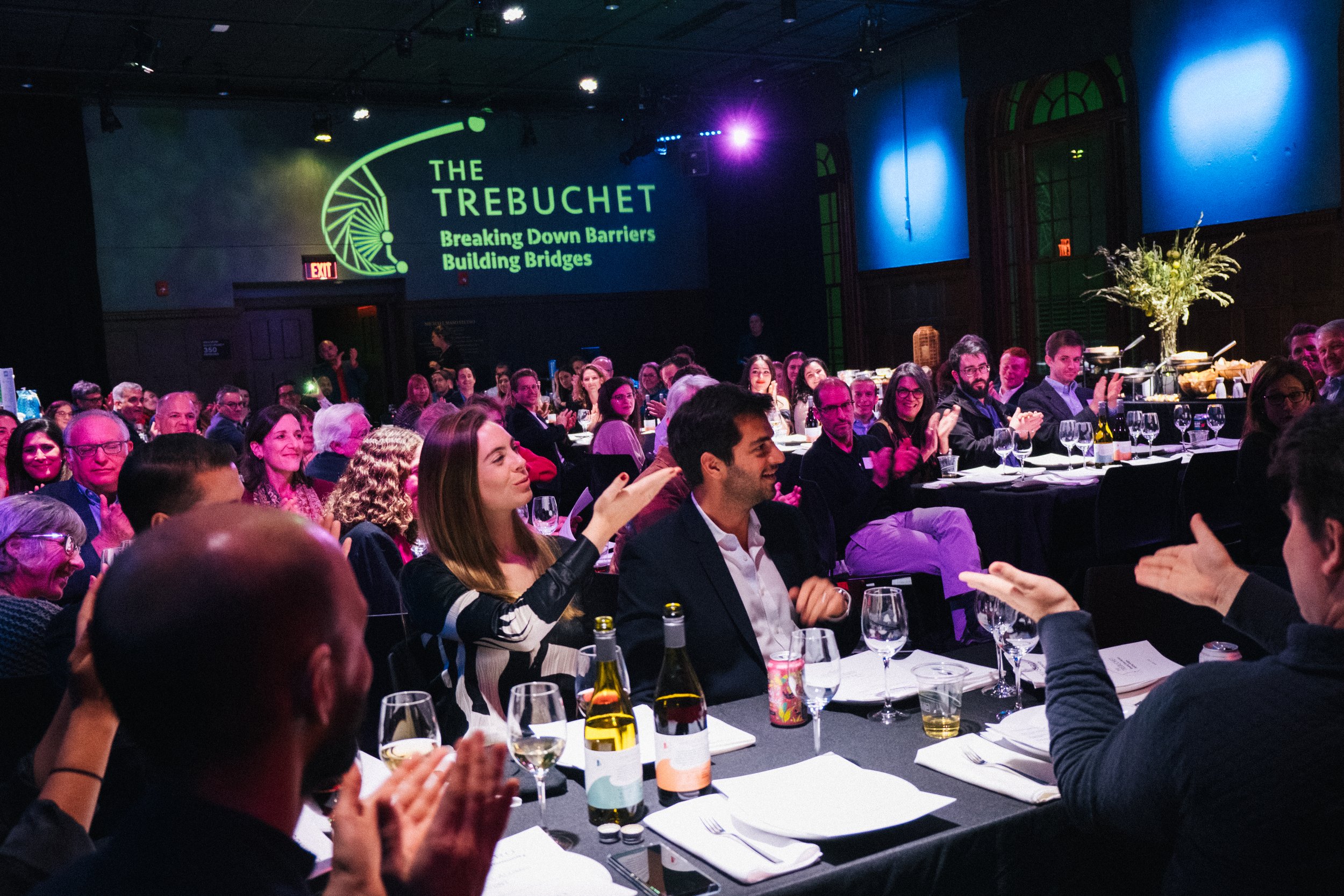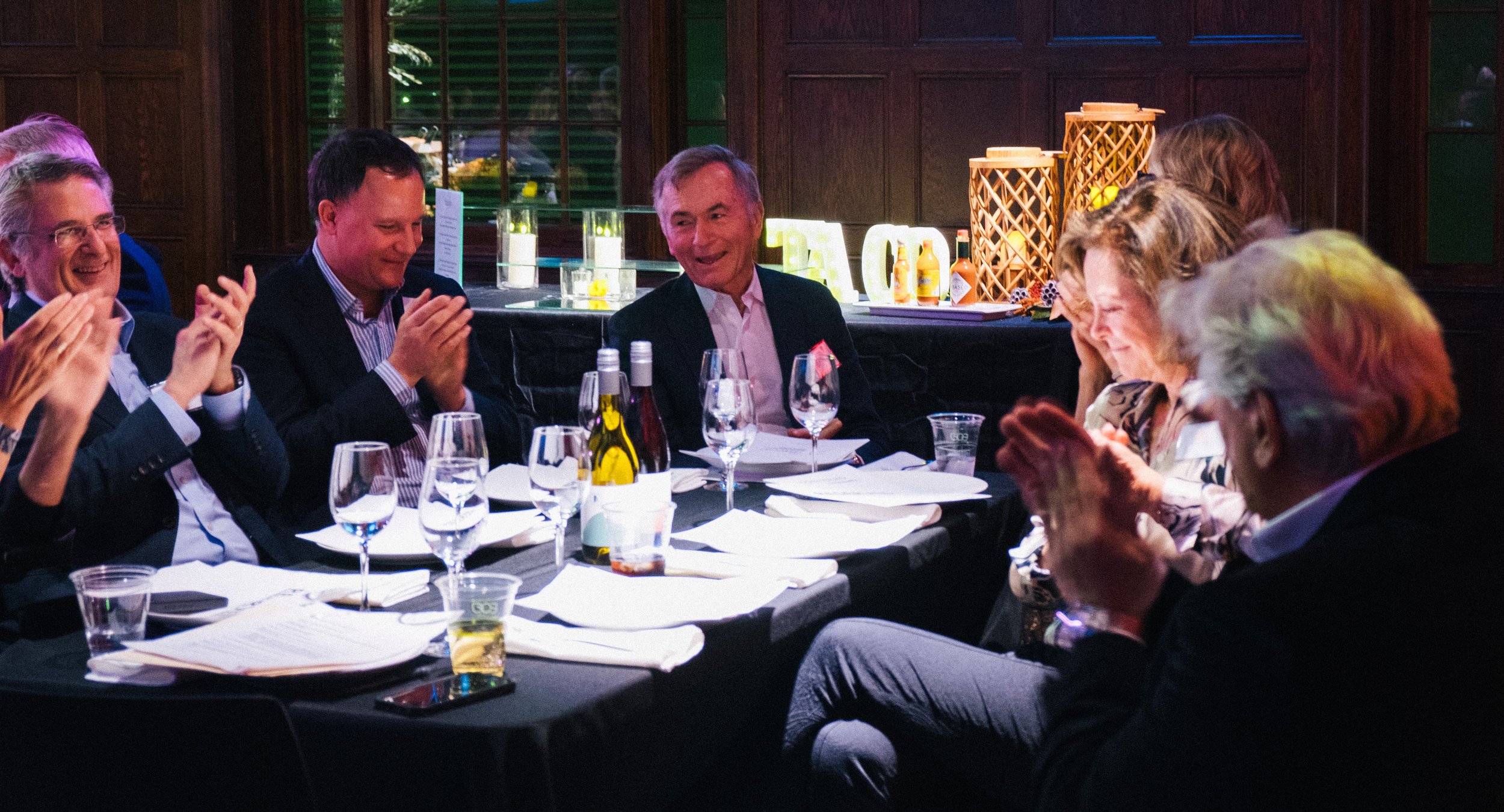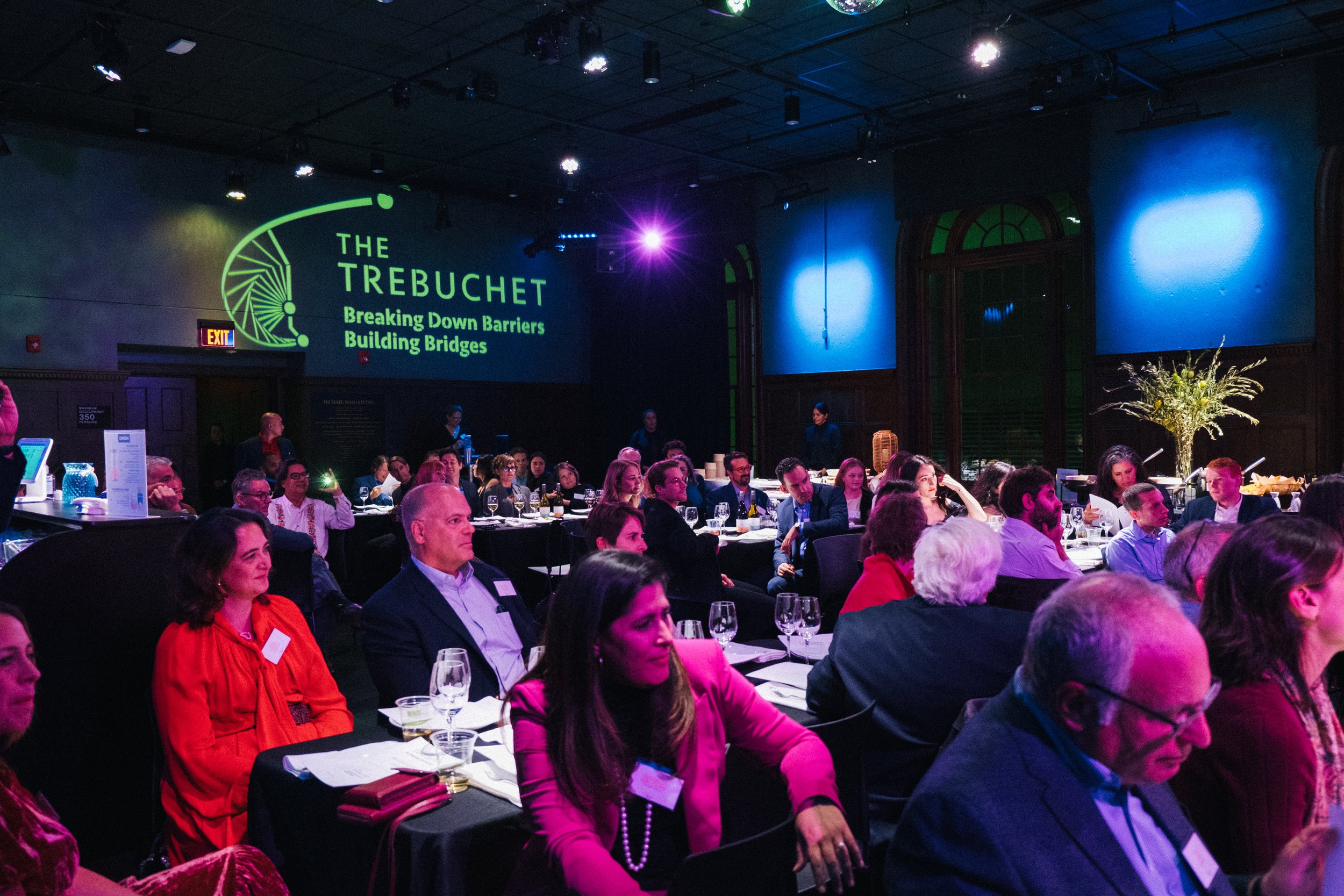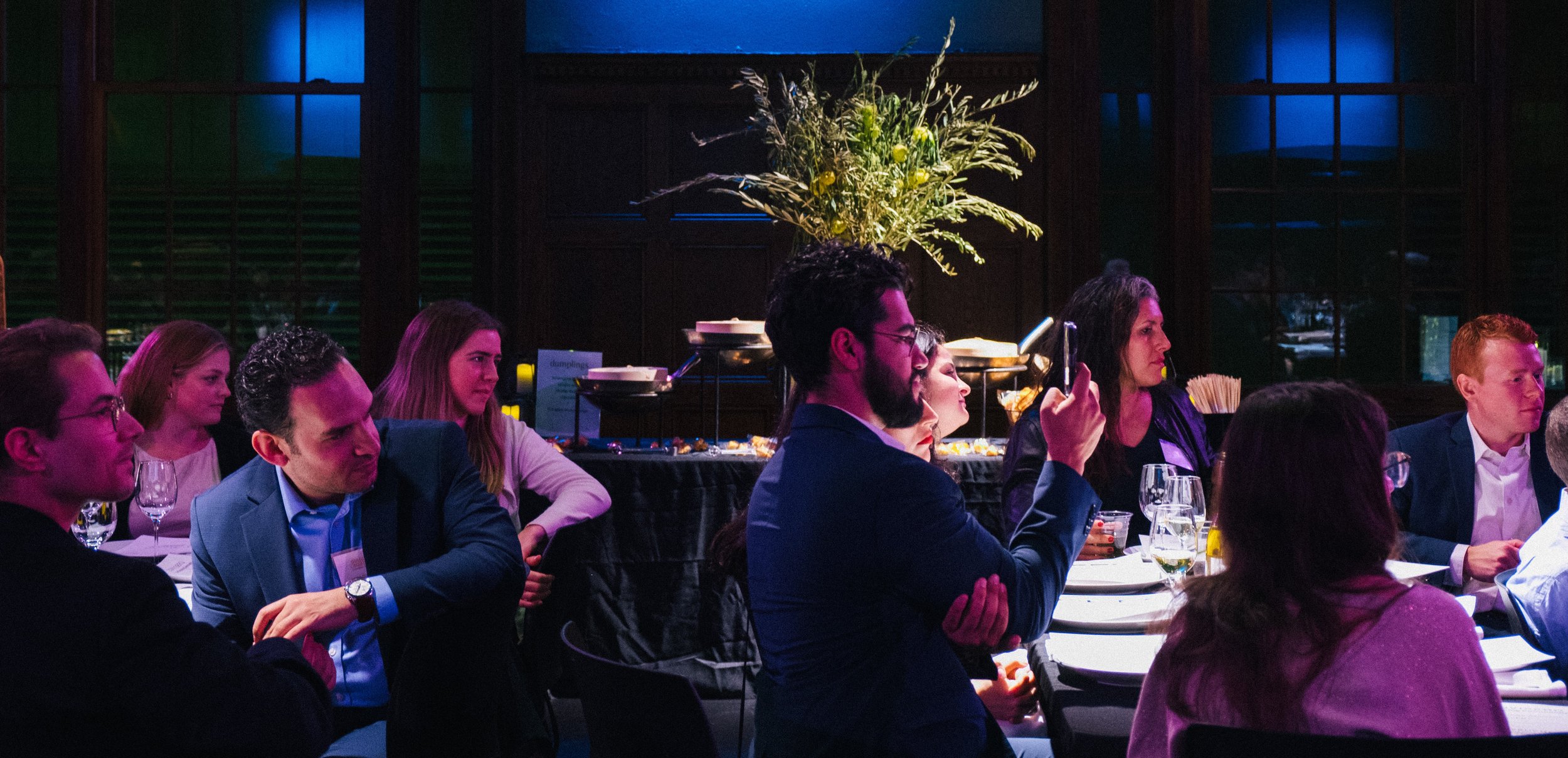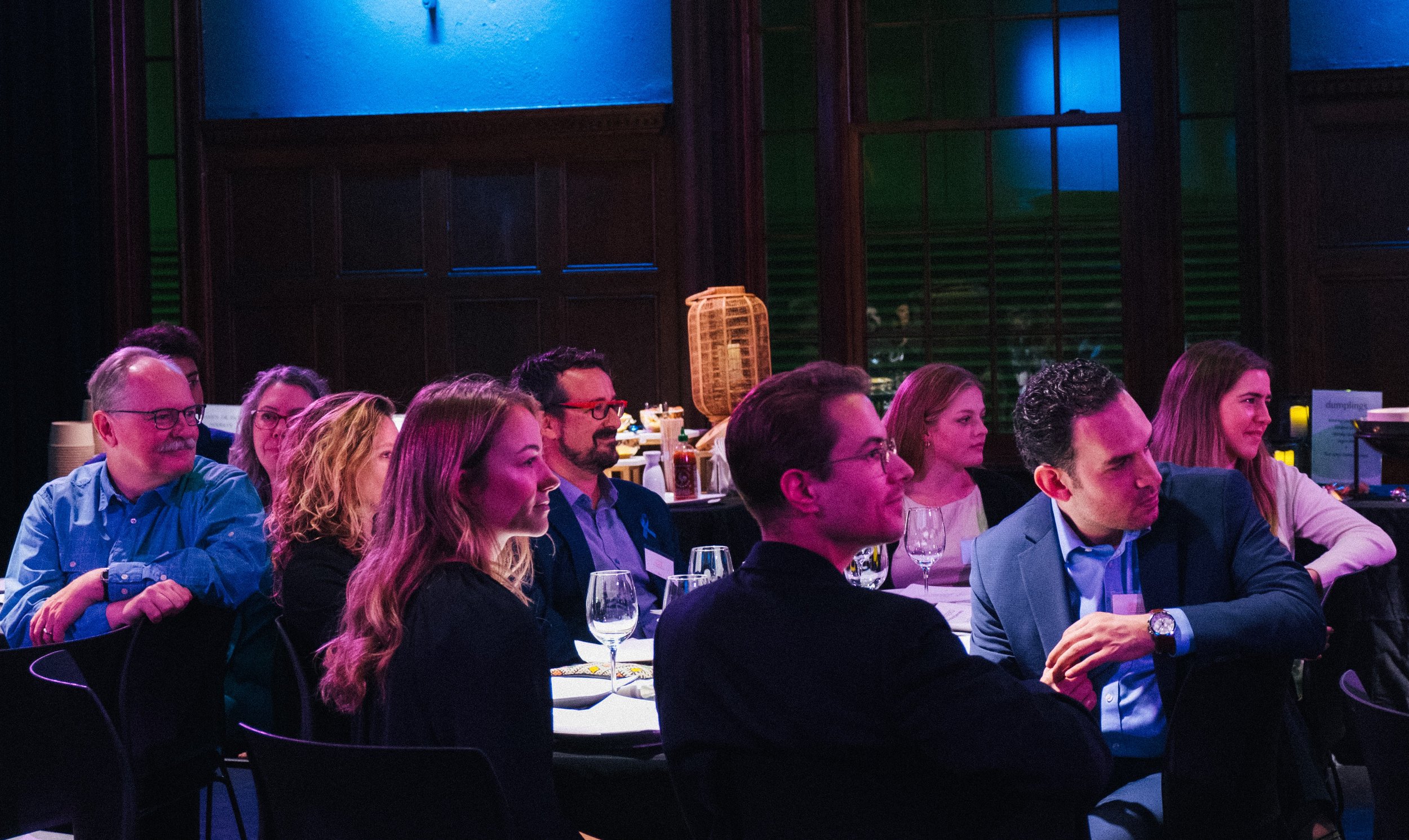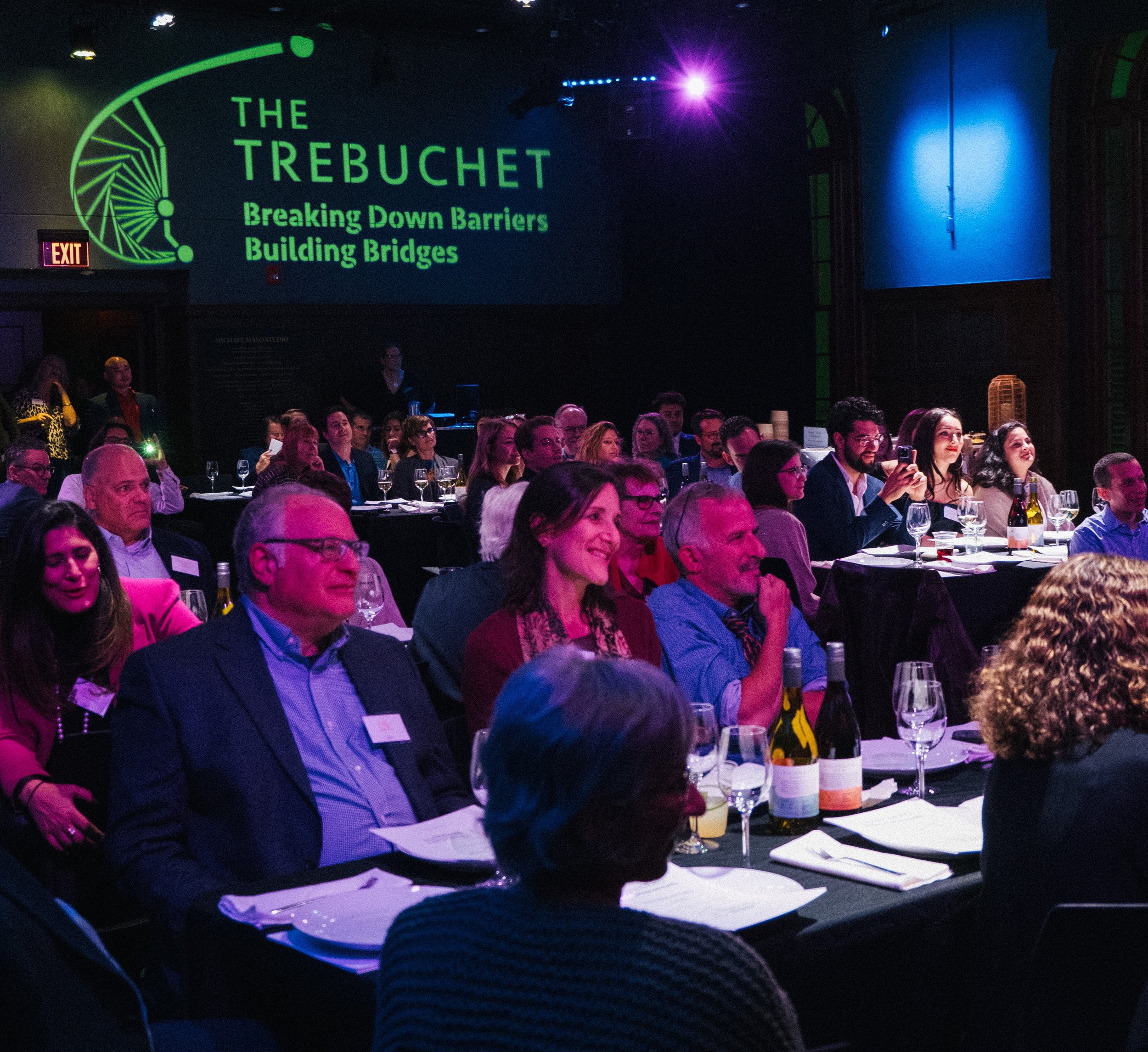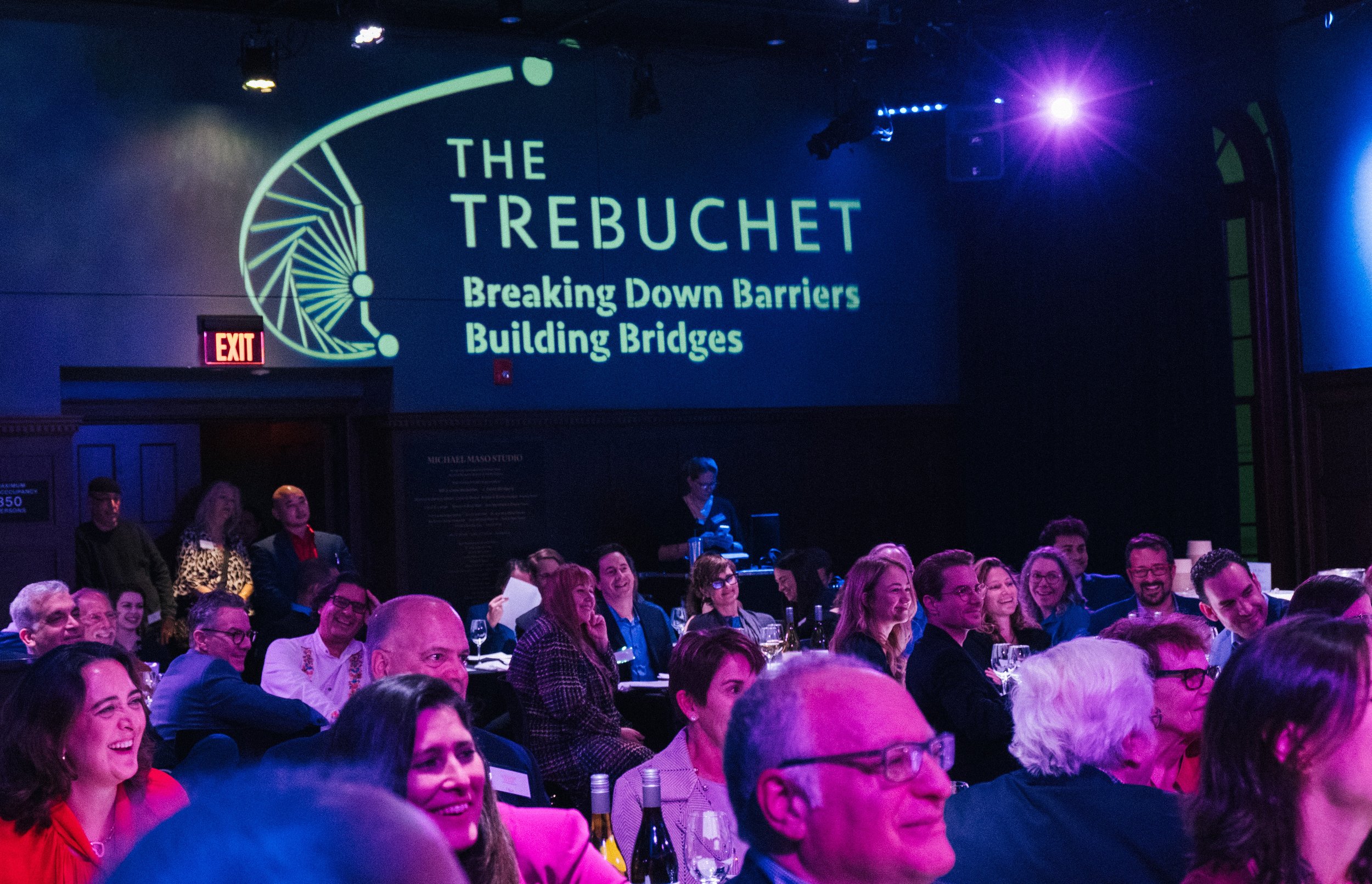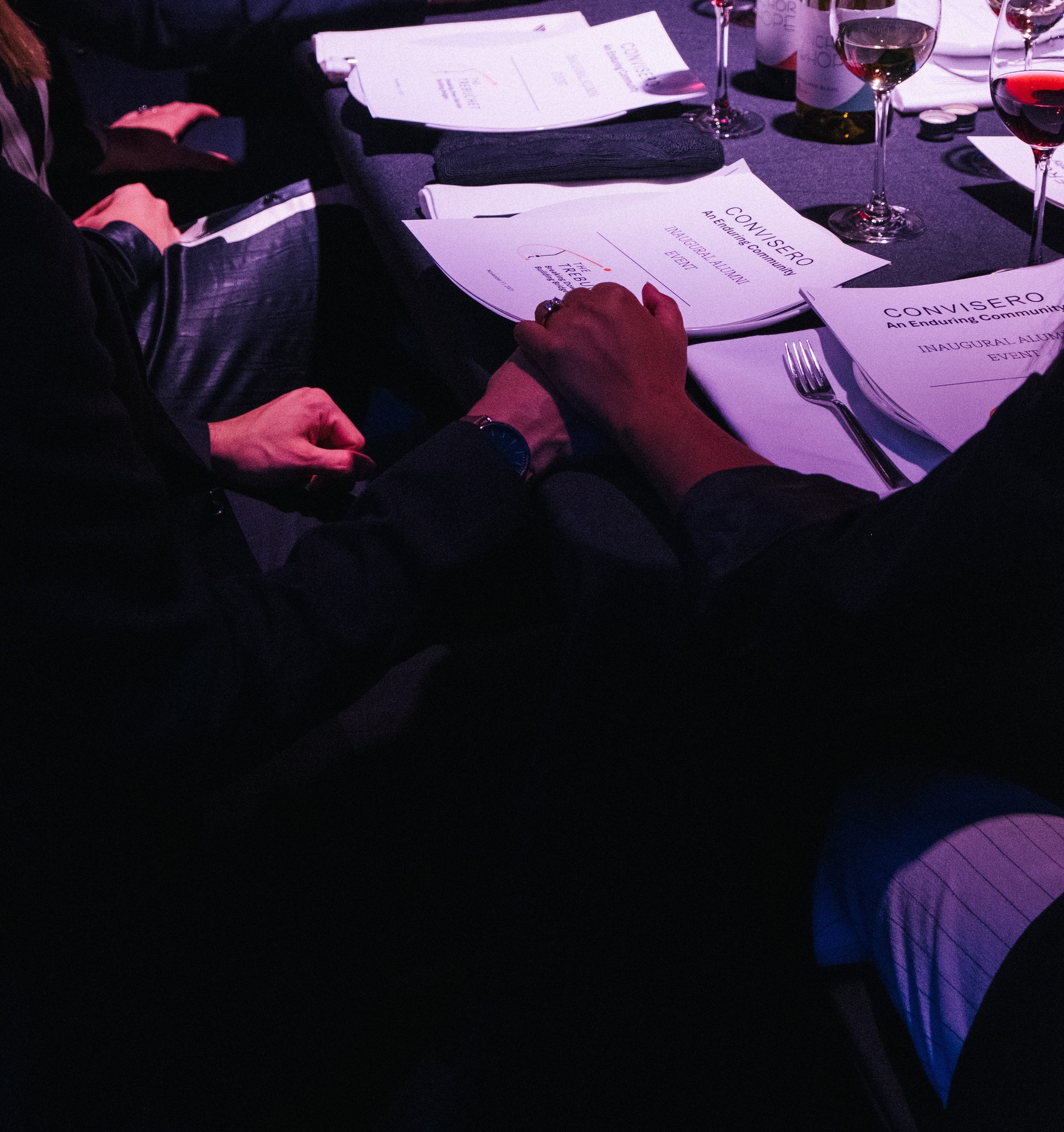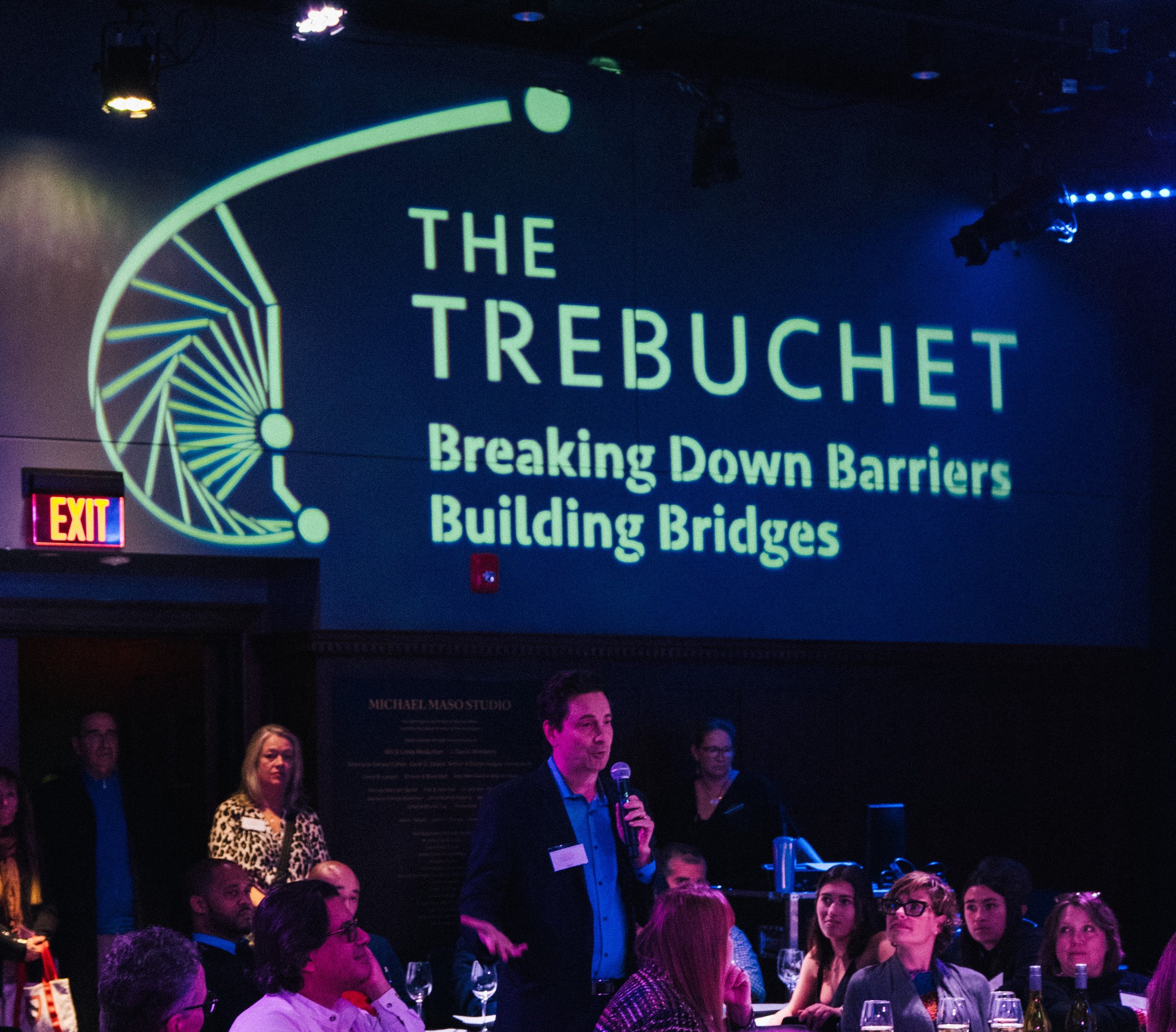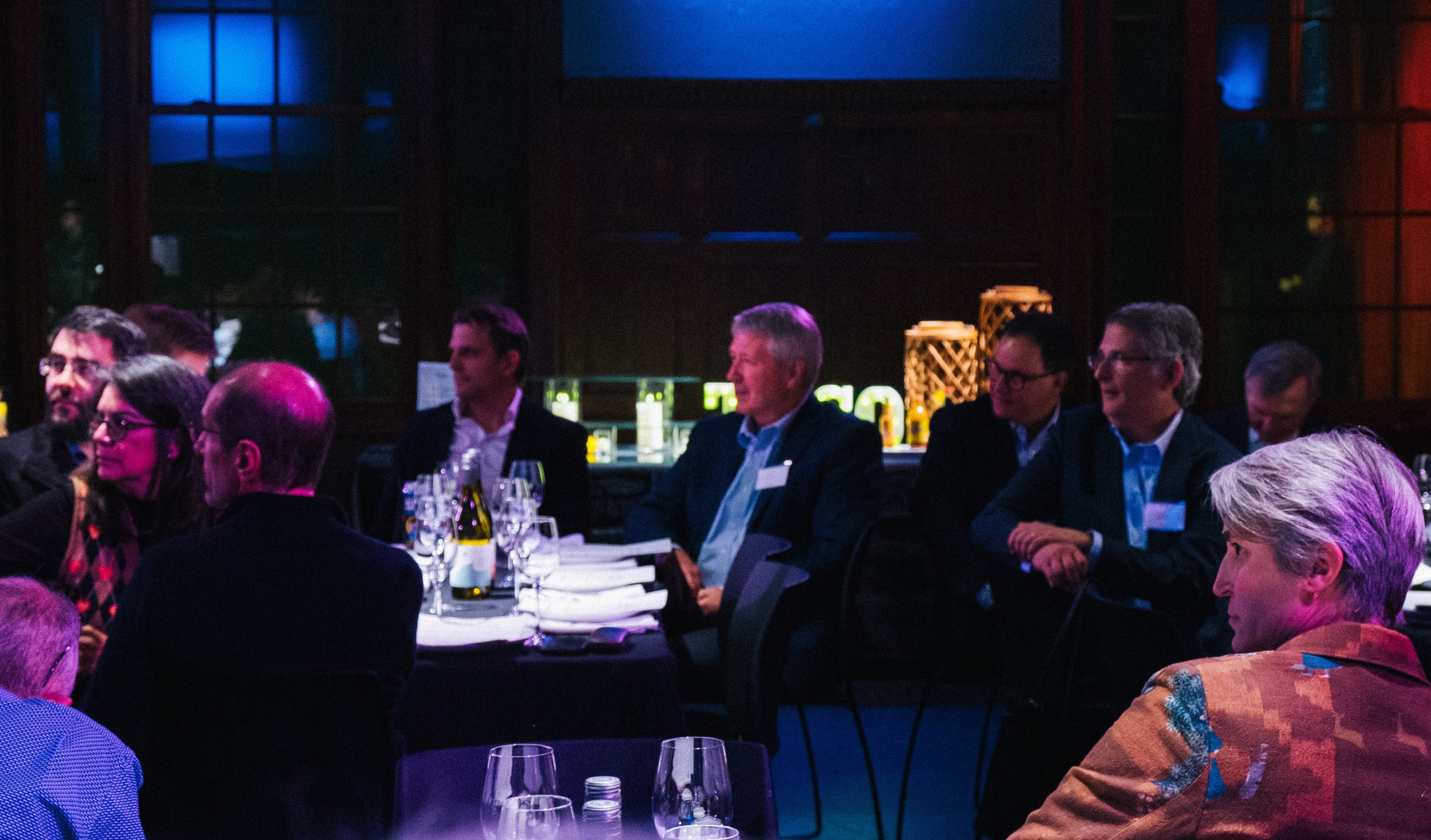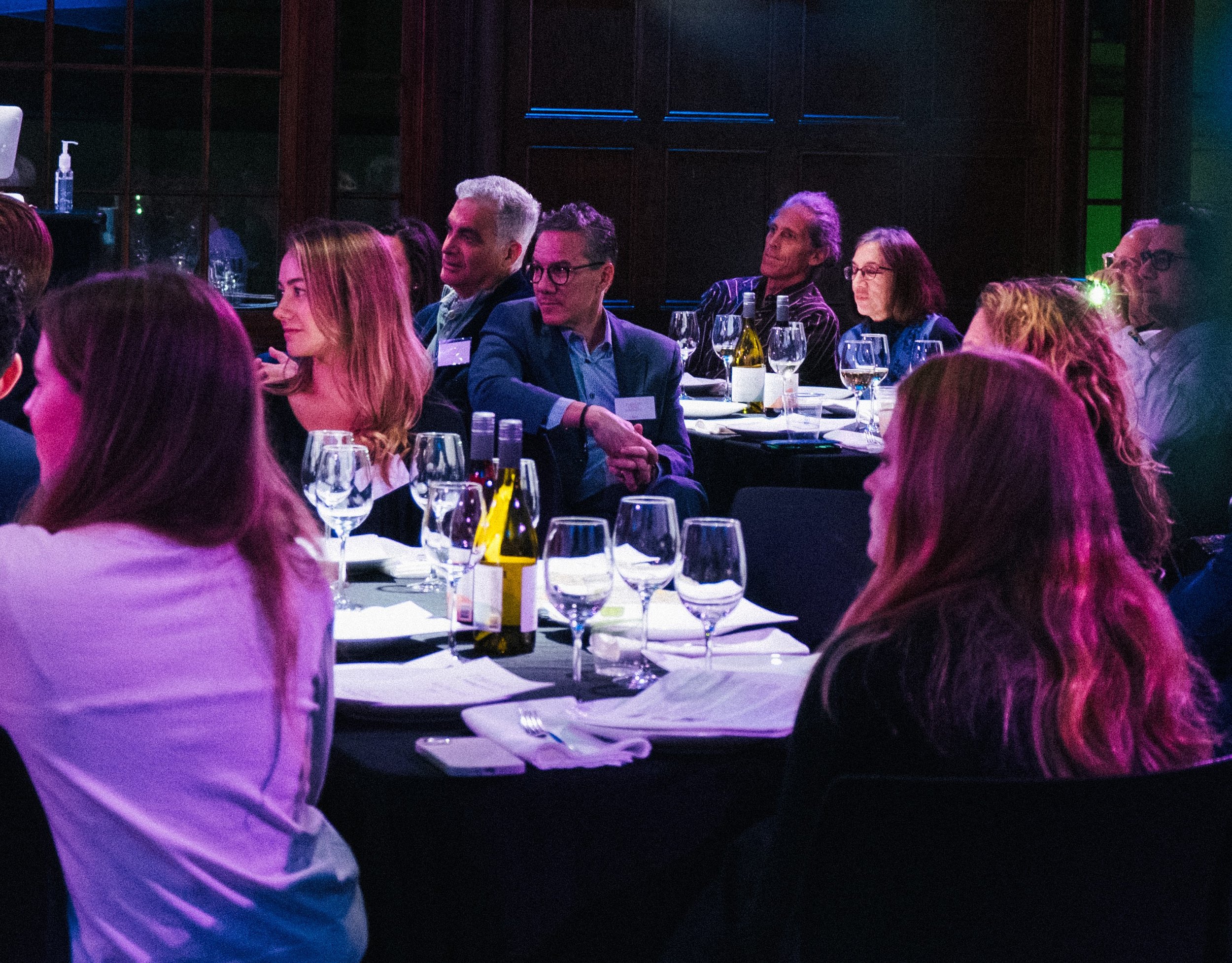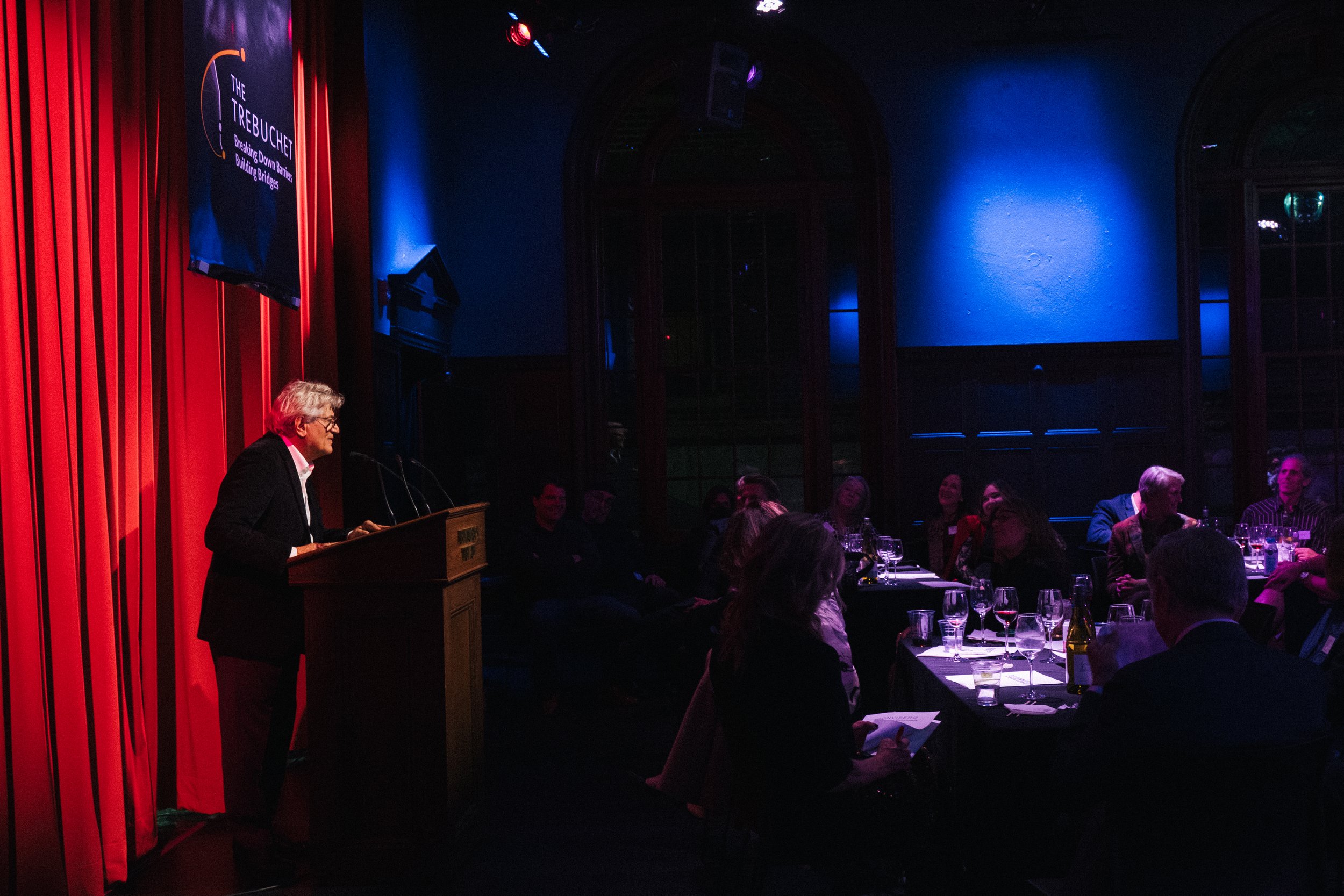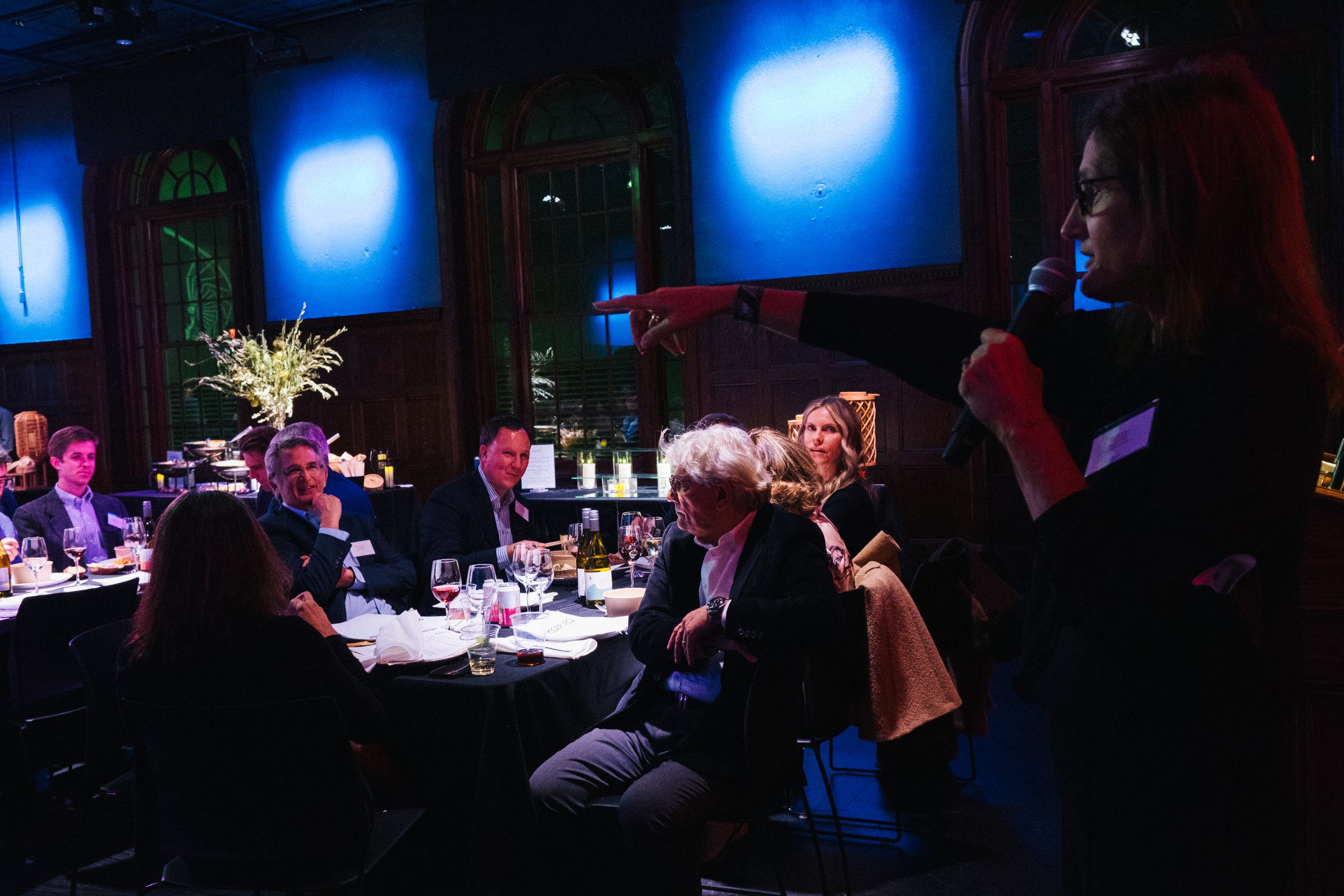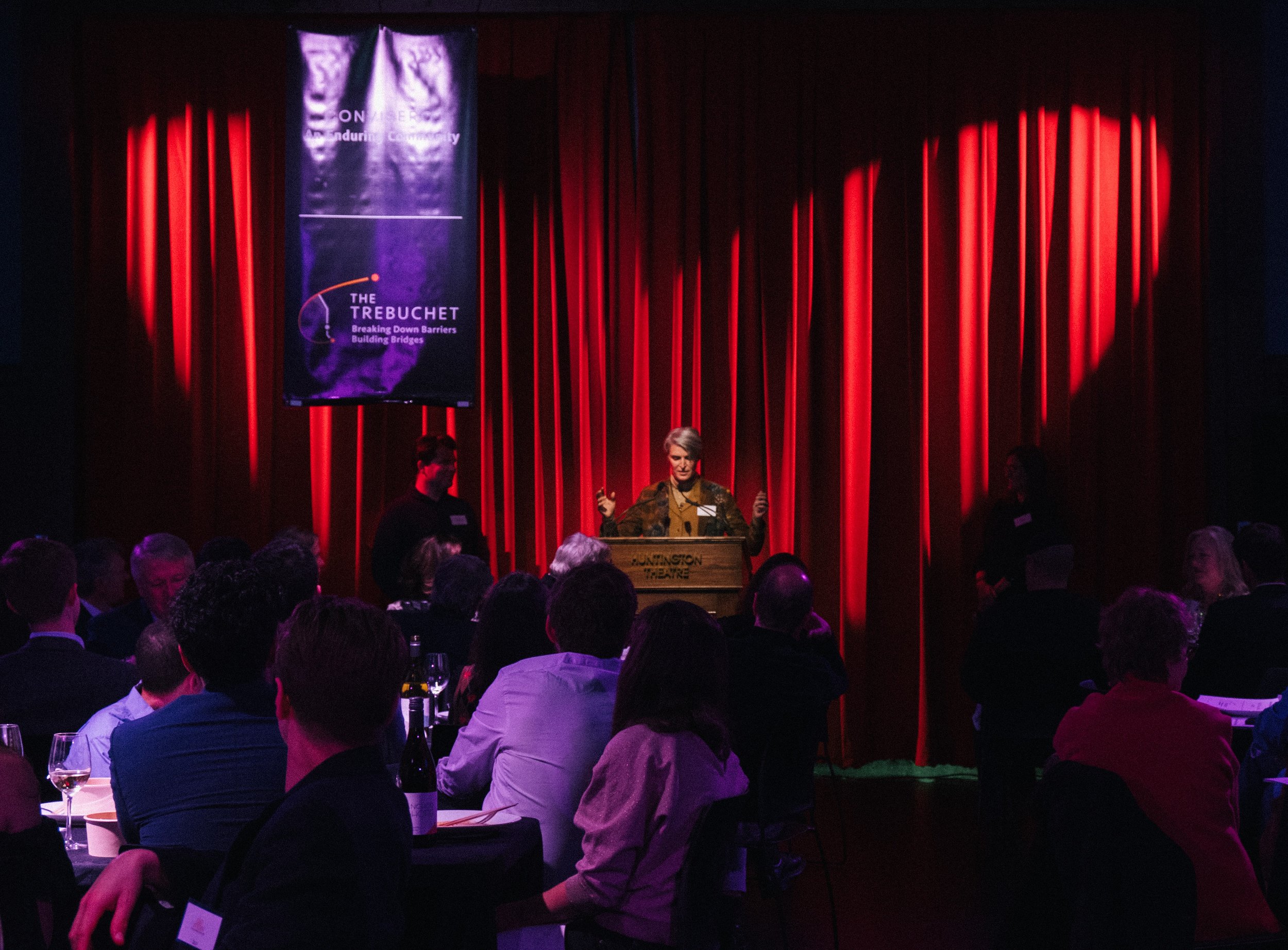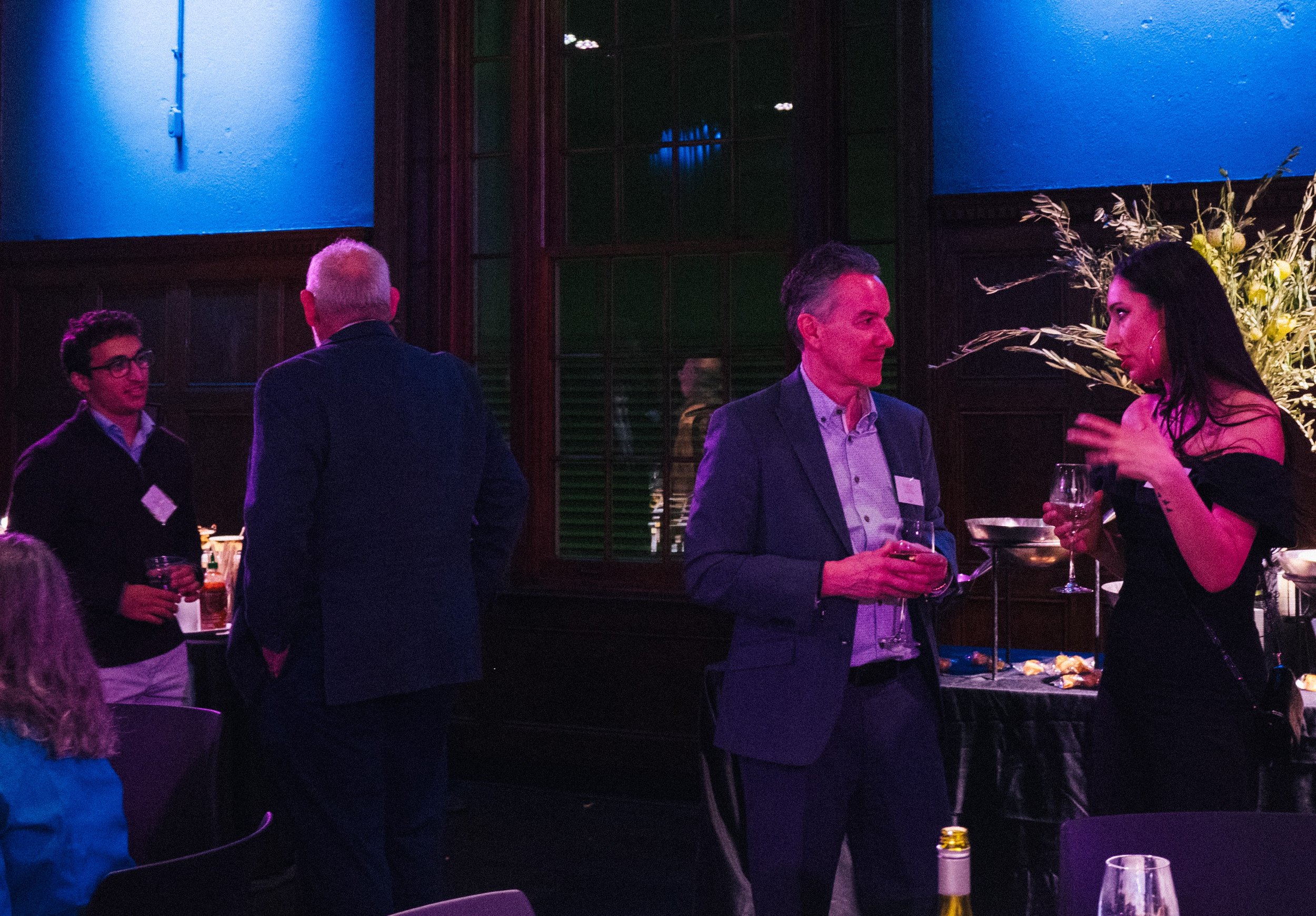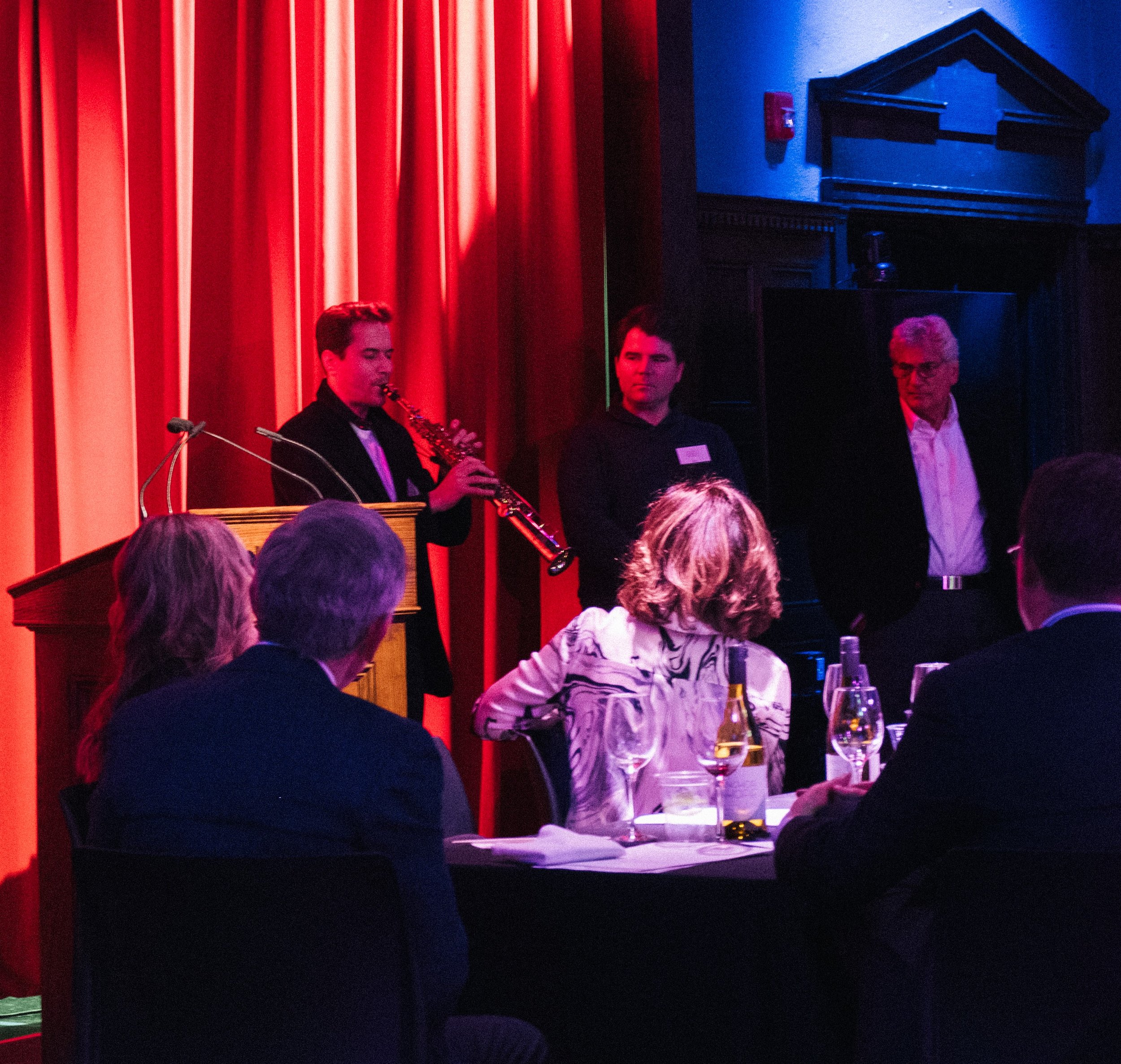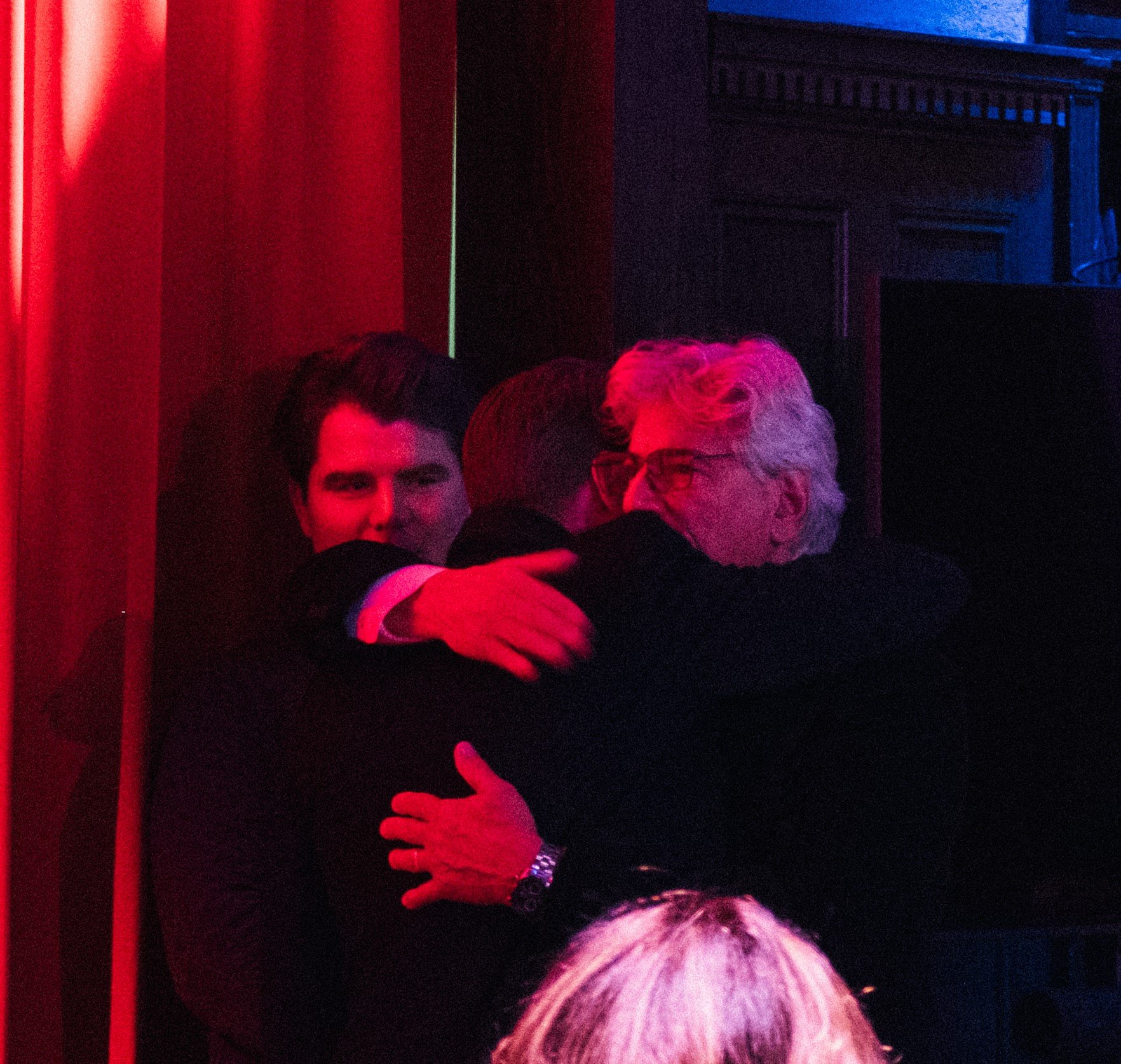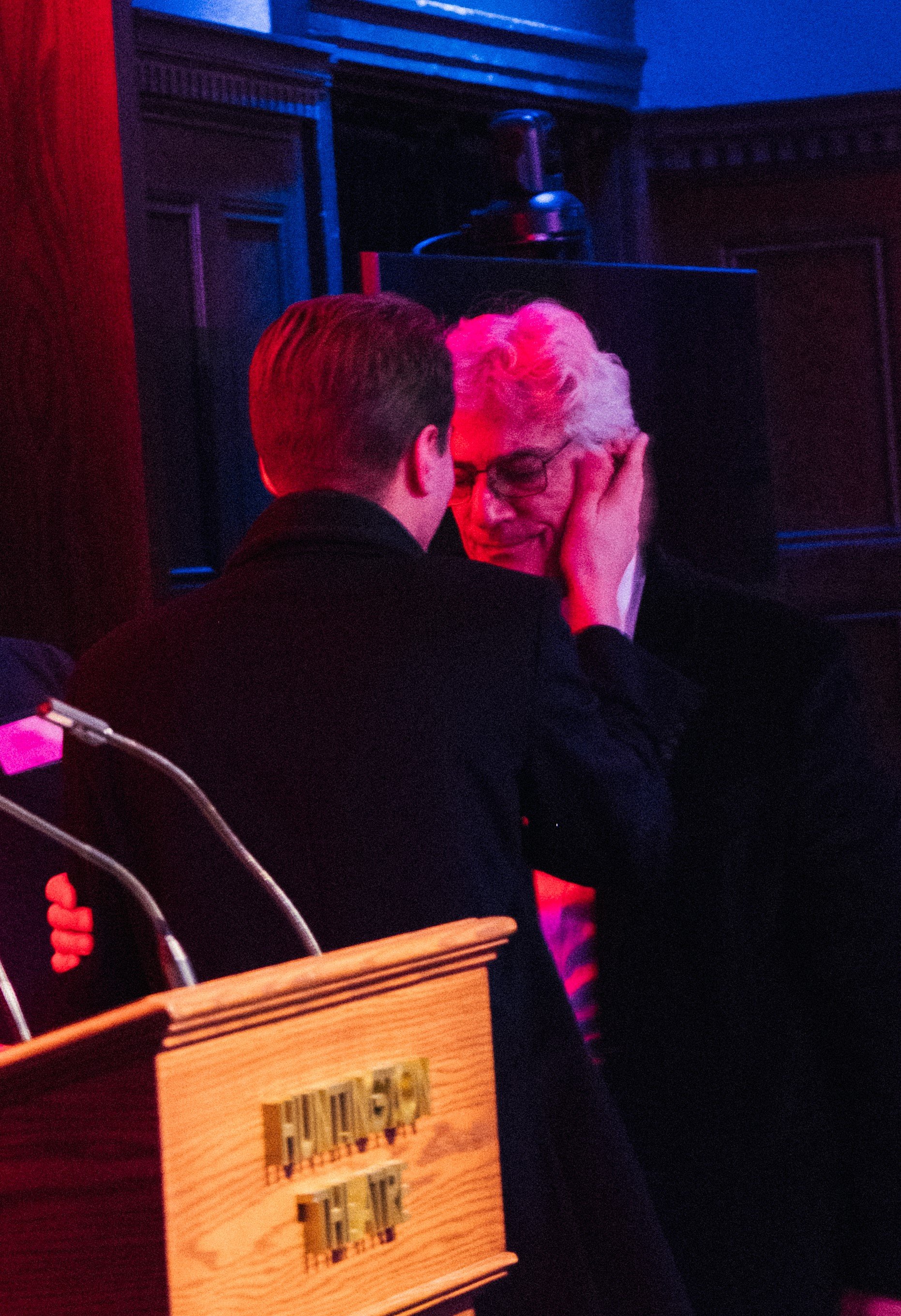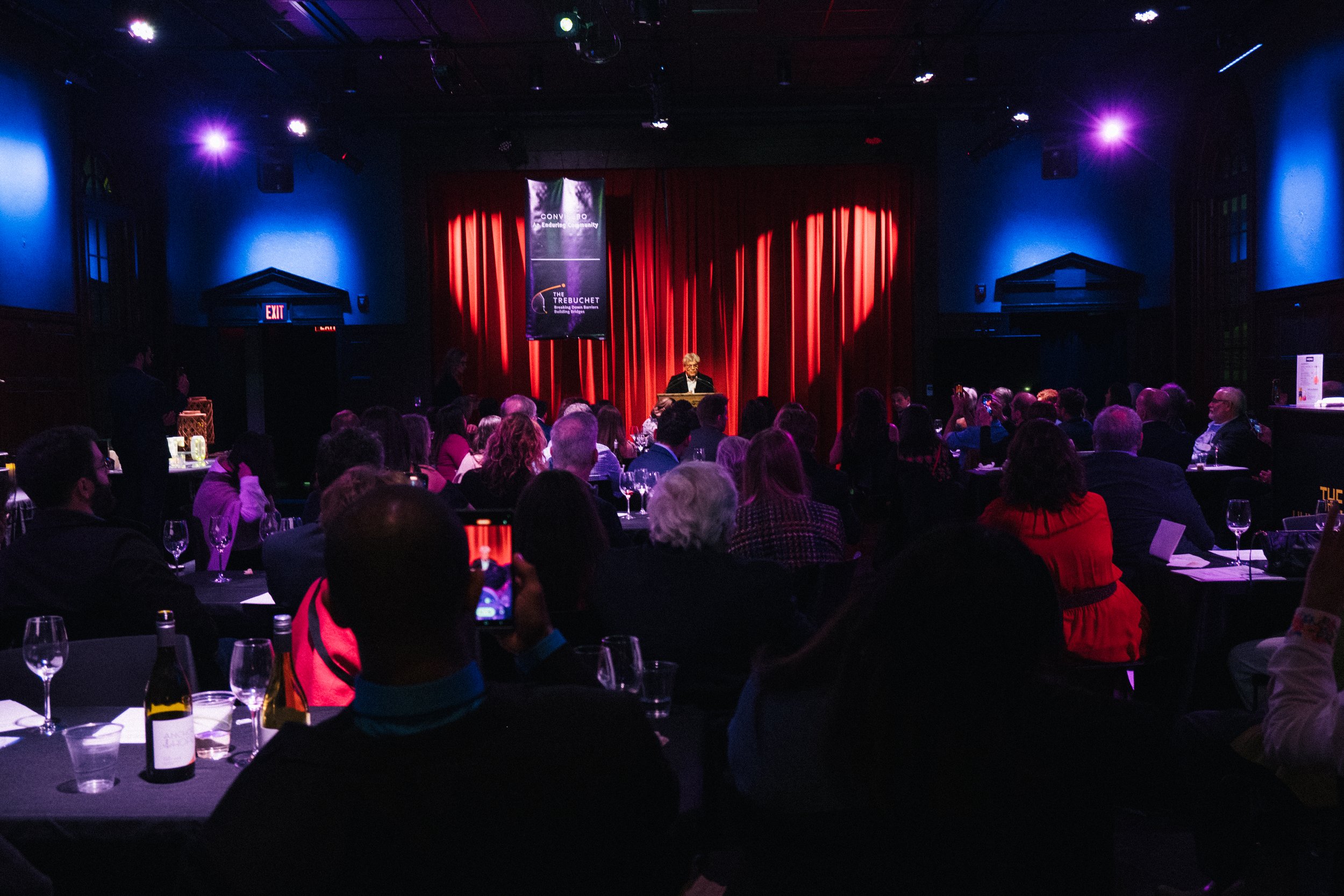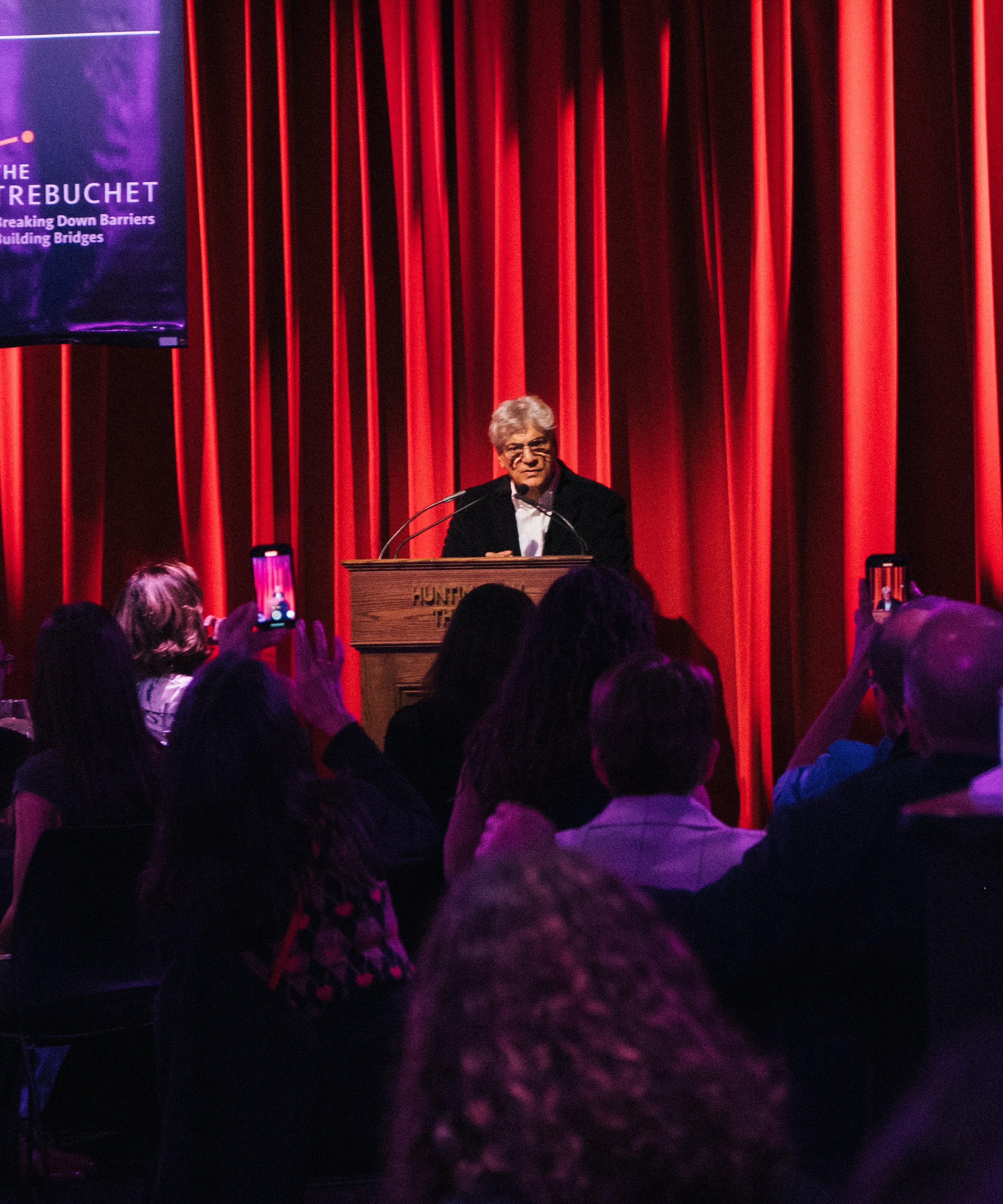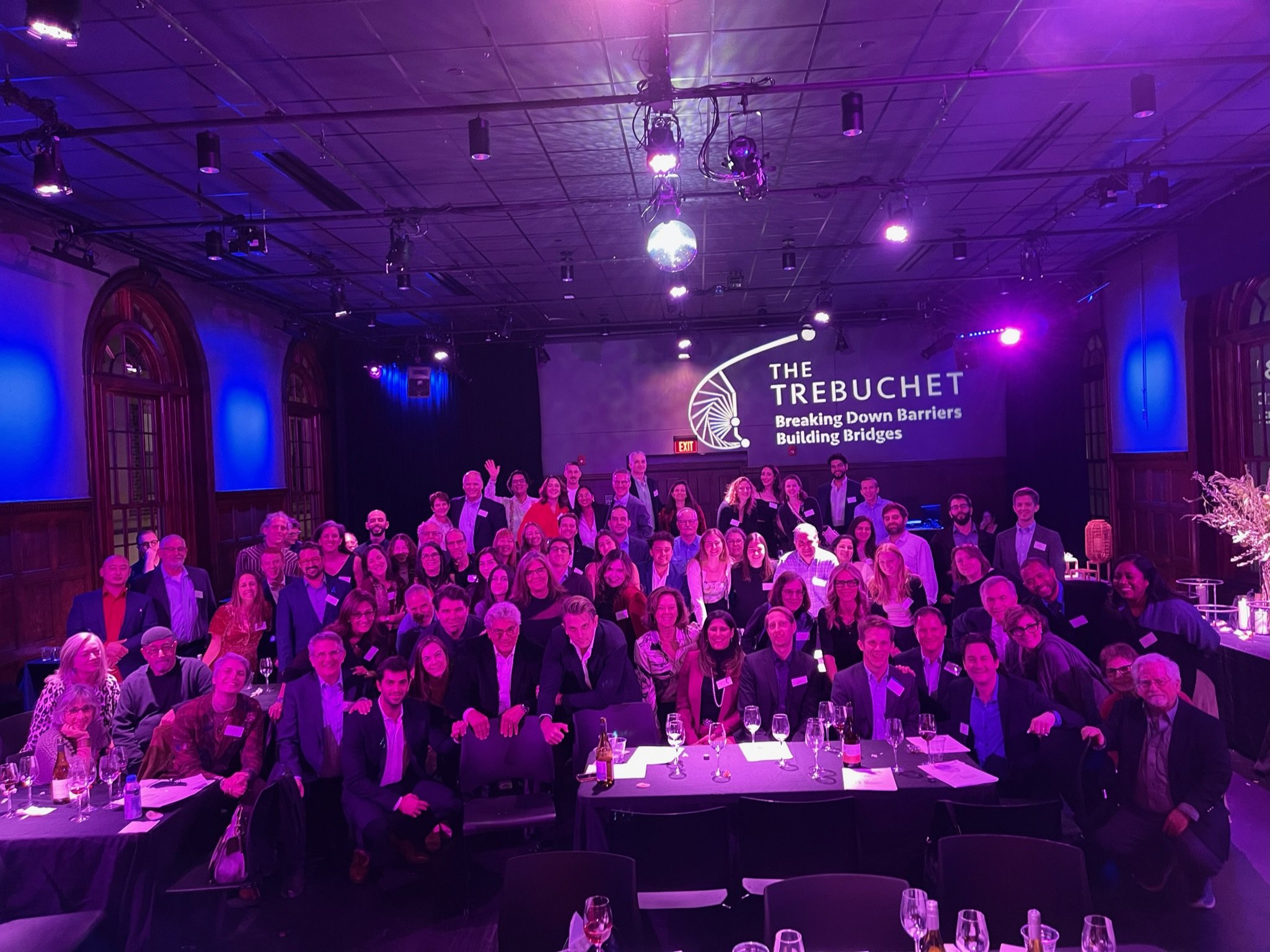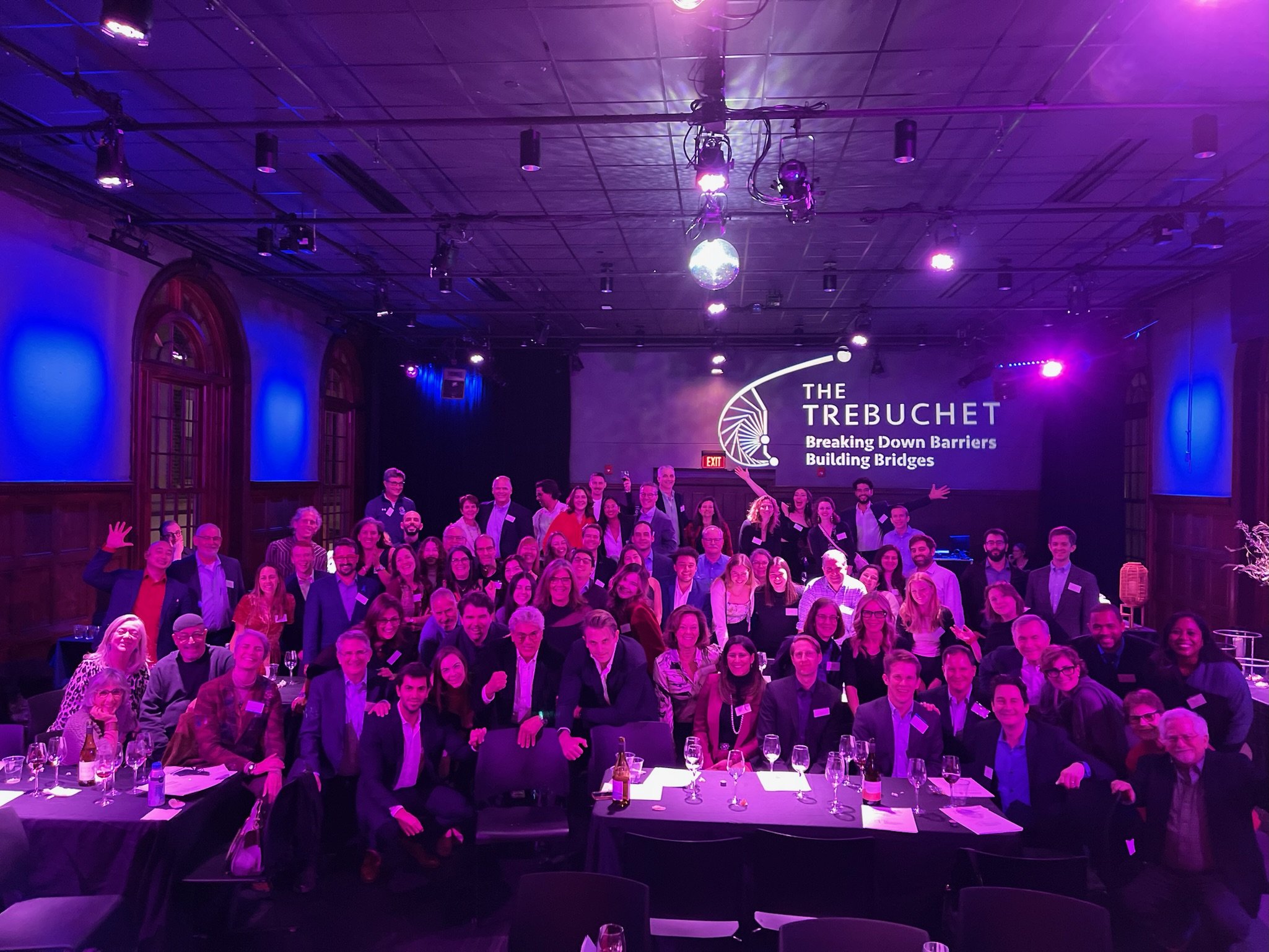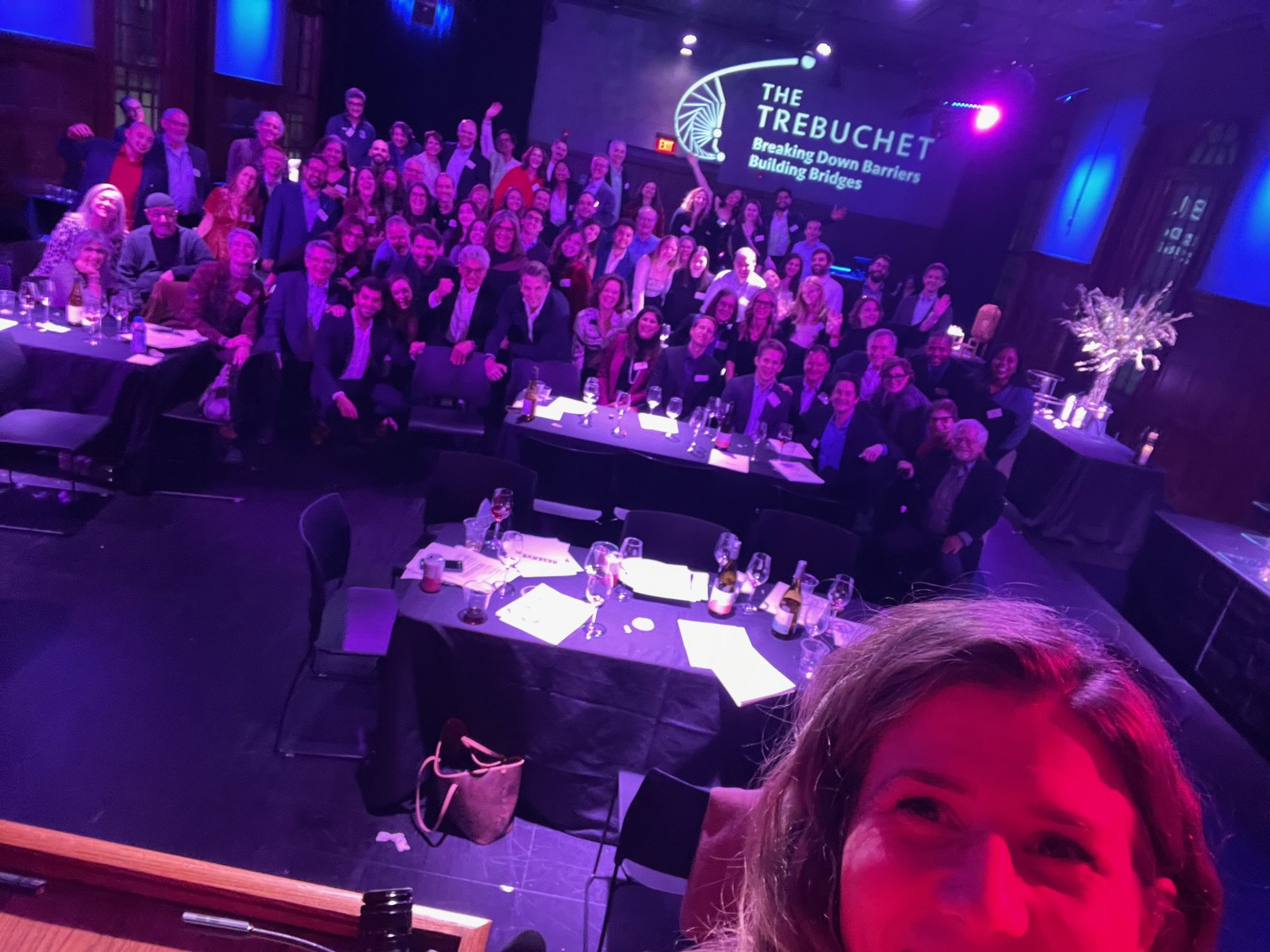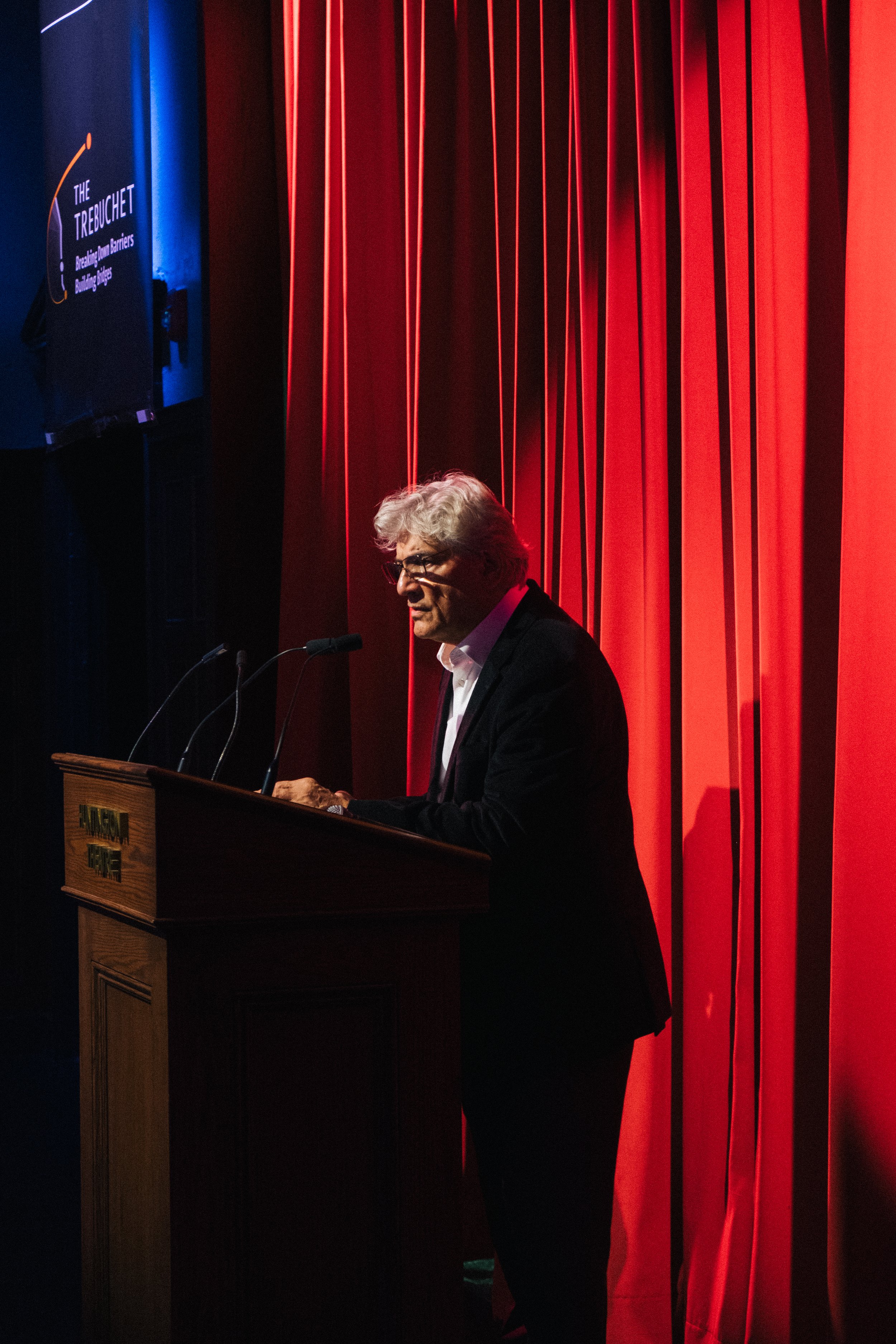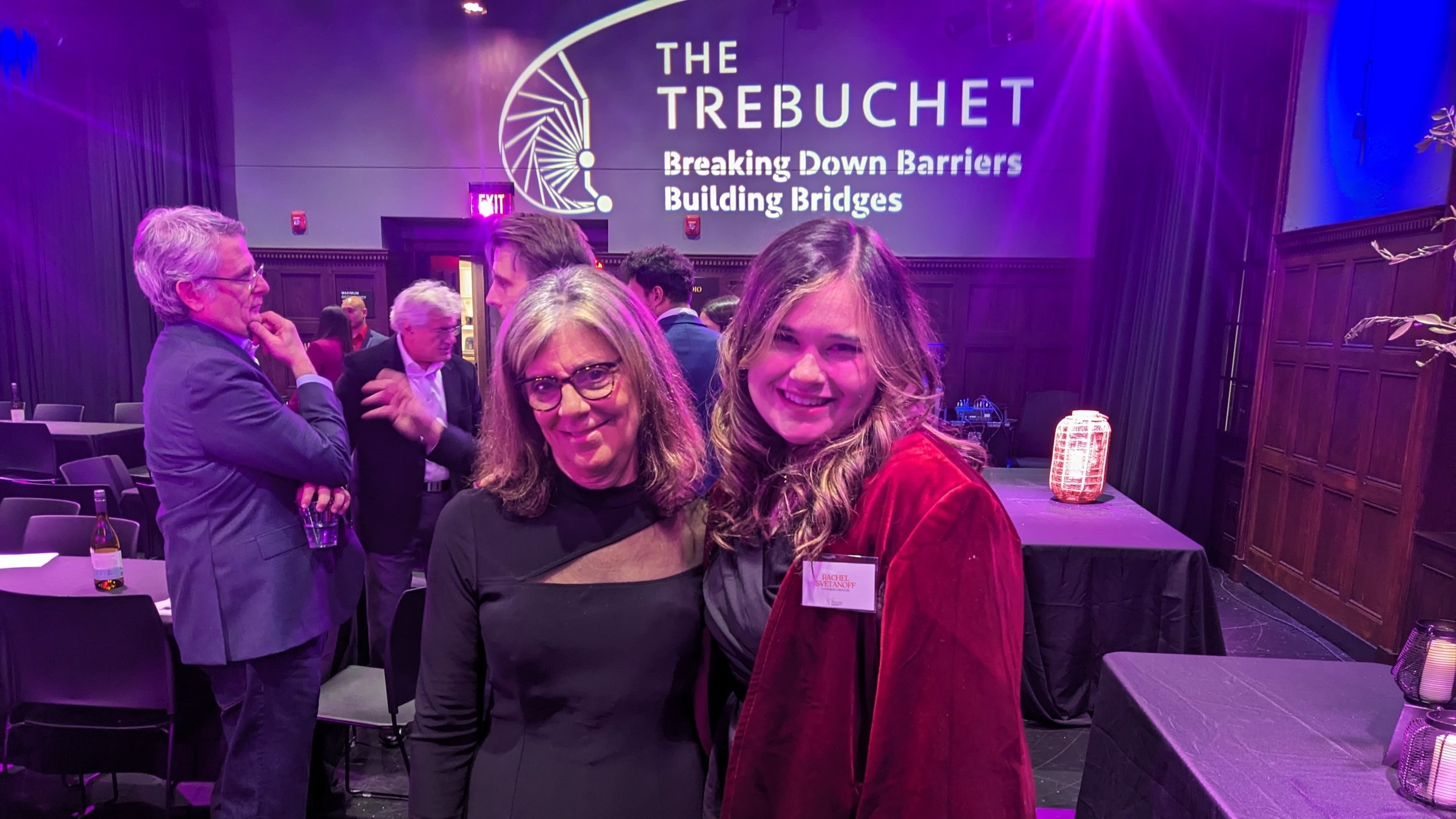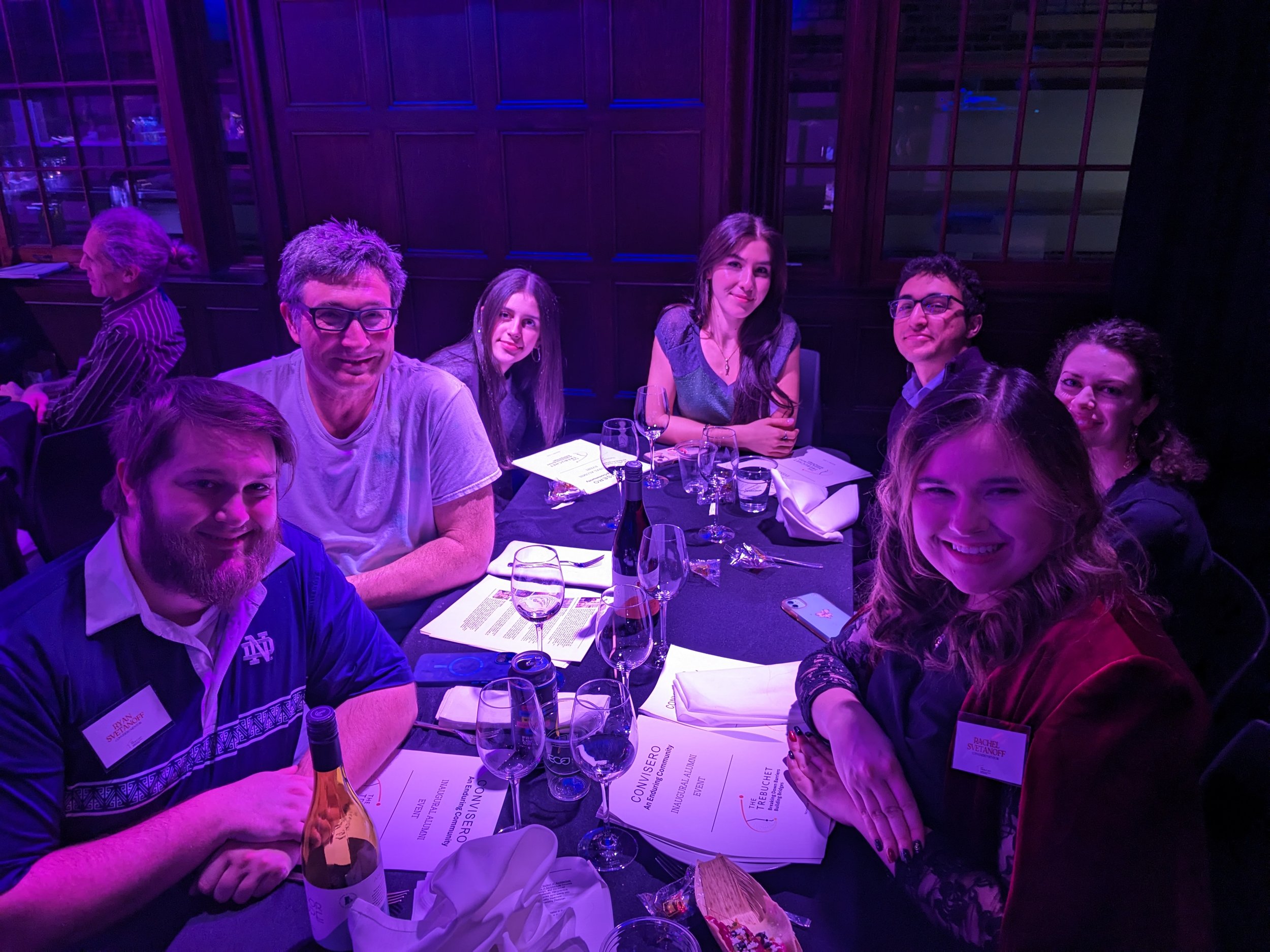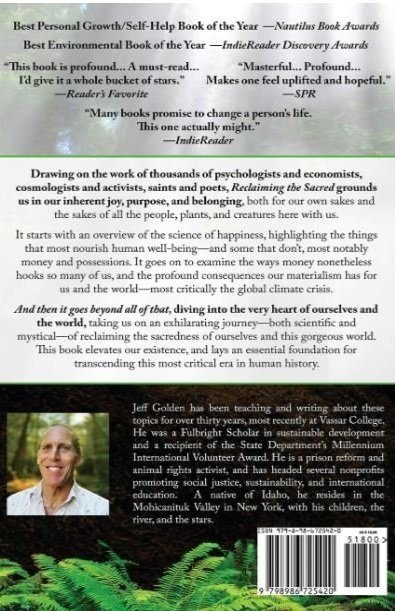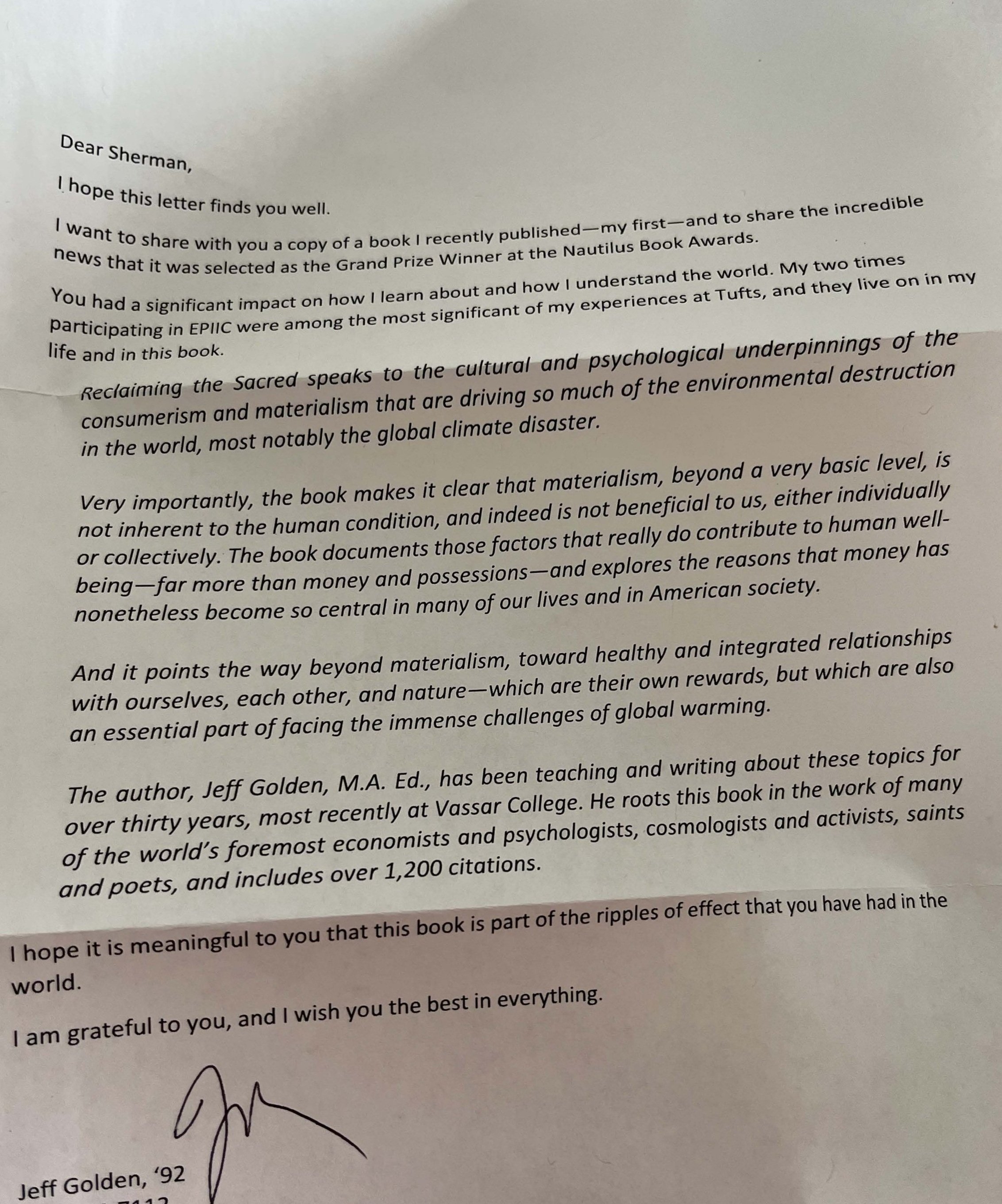Convisero - An Enduring Community
11/11/2023, THE INAUGURAL ALUMNI GATHERING
Over 90 people from across the country and internationally, gathered at the Maso Studio of the Huntington Theatre in Boston. It was a highly appropriate place for Michael Maso, who recently retired as the Executive Director of the Huntington Theatre, a wonderful friend and Convisero mentor.
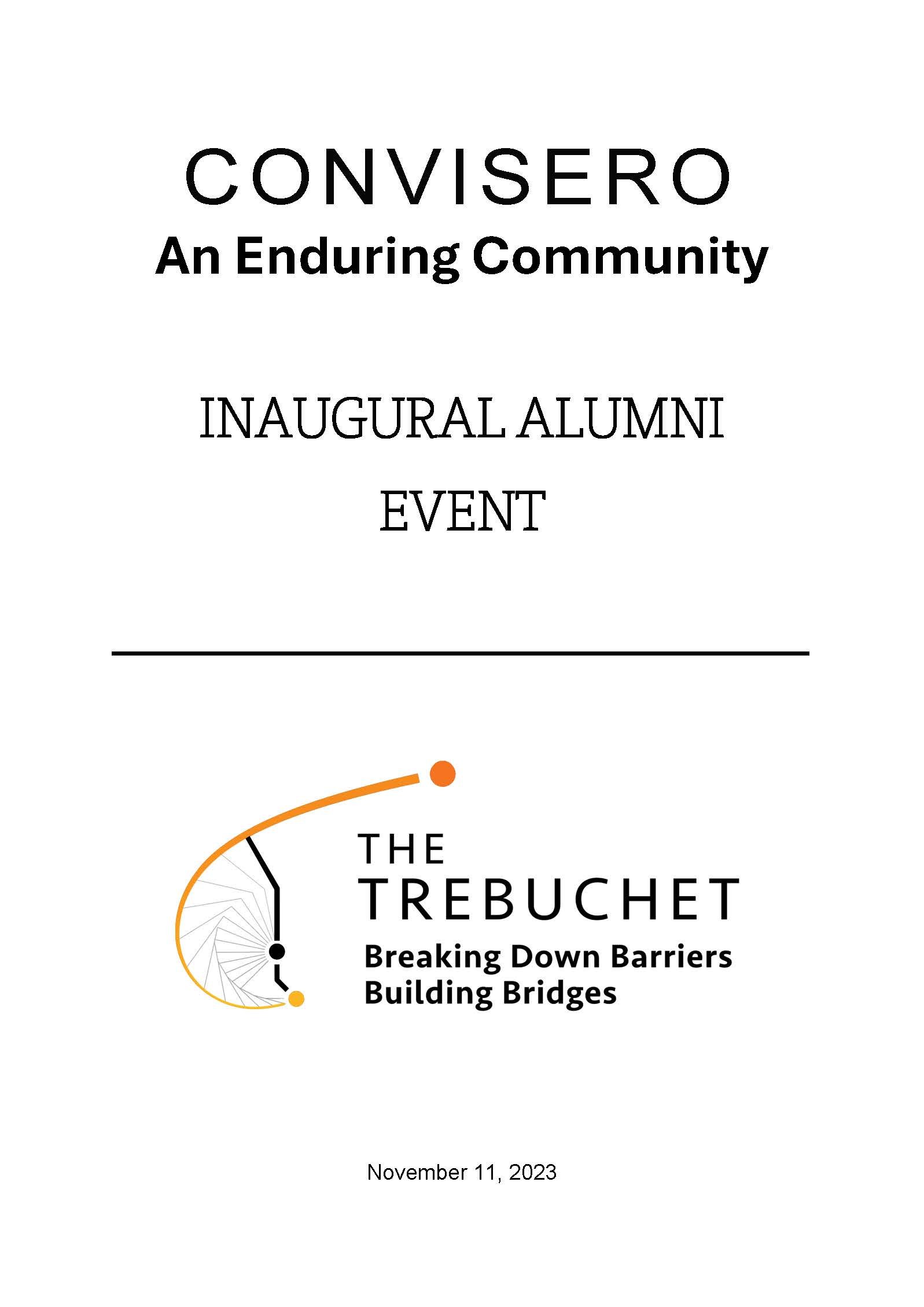
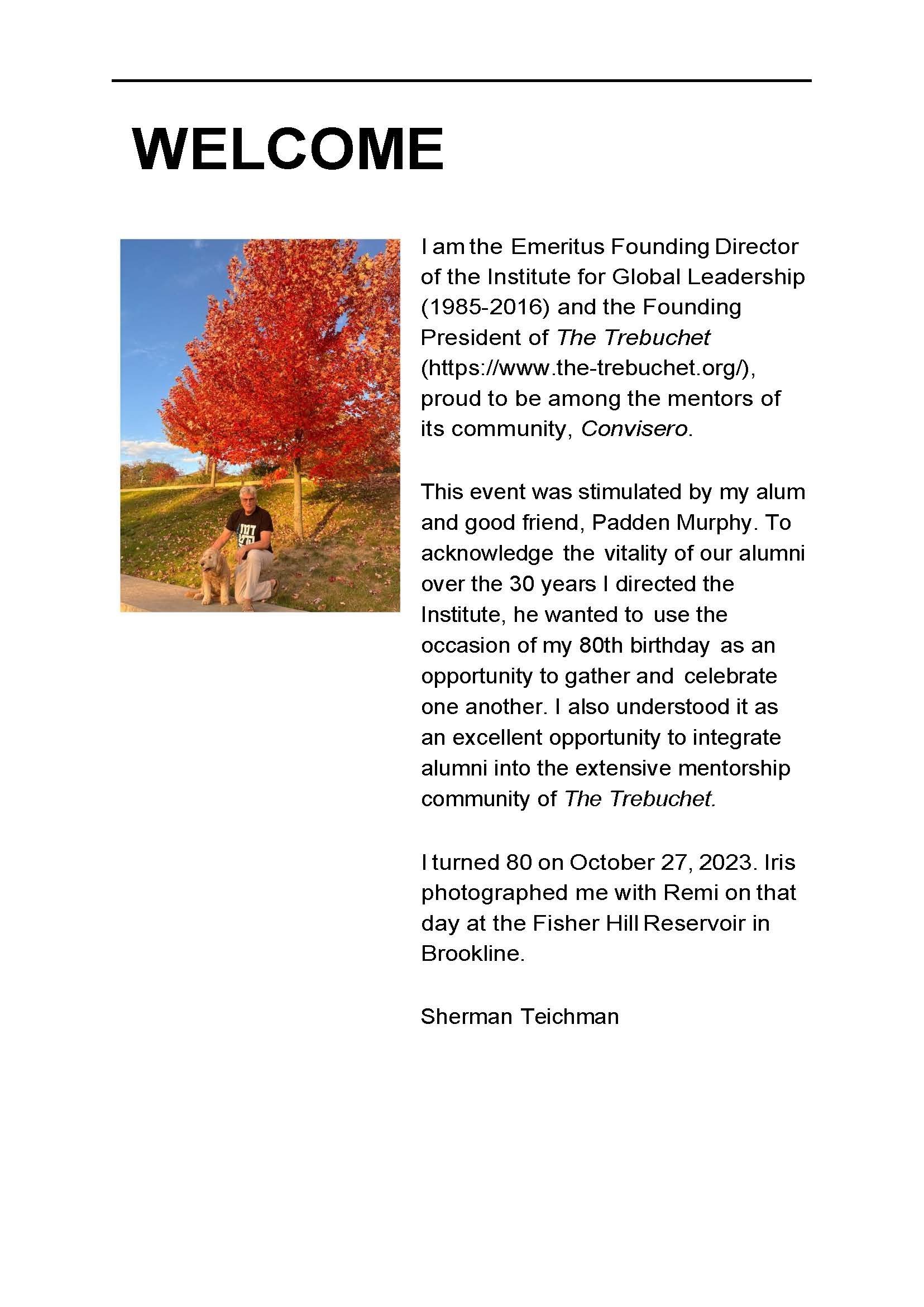
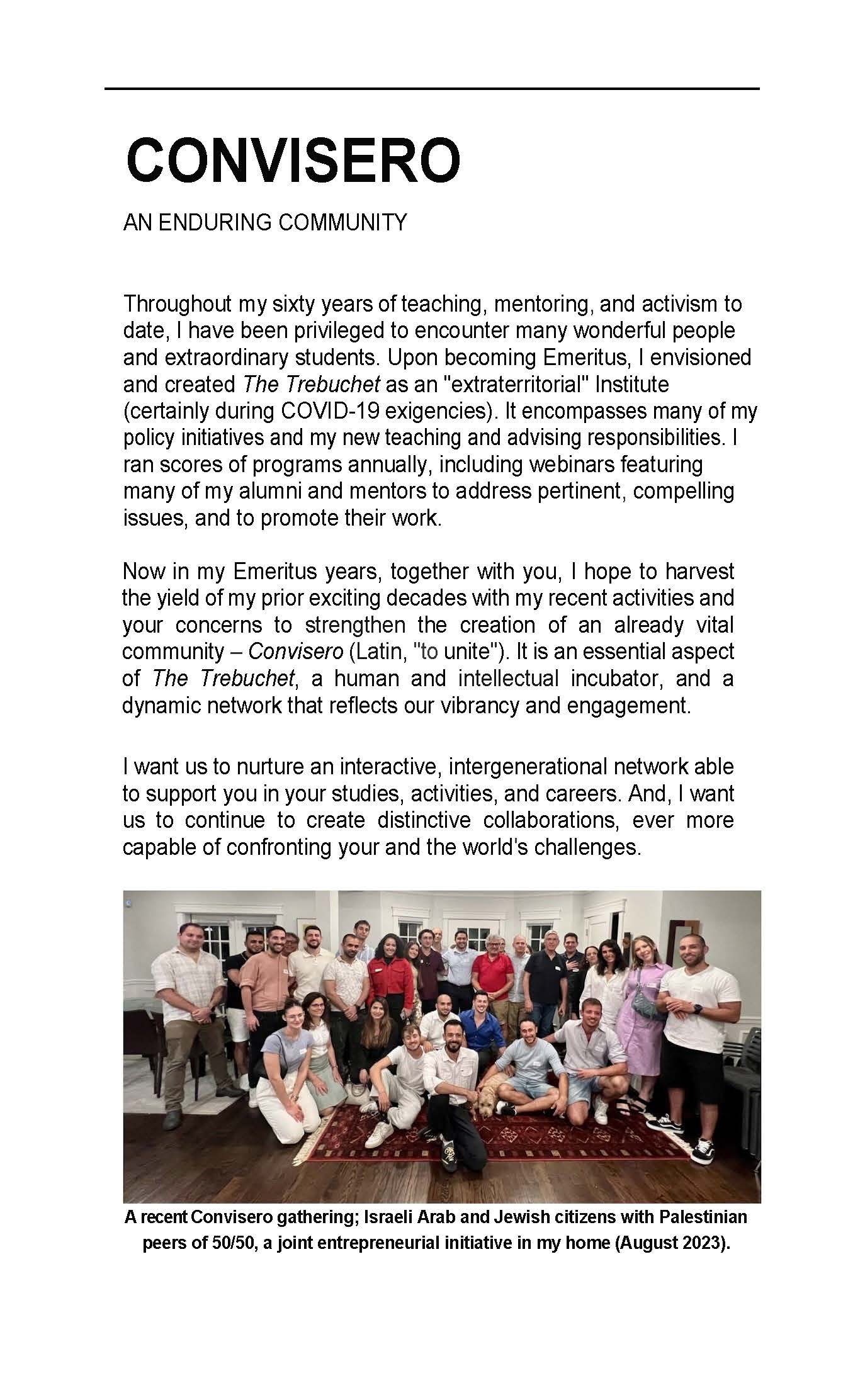
People traveled from across the US: California, Connecticut, Florida, Hawaii, Illinois, Indiana, Kansas, Maine, Maryland, Massachusetts, Montana, New Hampshire, New Mexico, New York, Oregon, Pennsylvania, Rhode Island, Texas, Utah, Virginia, Washington D.C., and Washington, as well as internationally from Amman, London, Toronto, Oxford, and Paris.
Here is the program of the evening where you can find biographical snapshots of the attendees. Several who attended but did not make the program booklet’s deadline are Synaptic Scholar and PhD candidate in Psychology Jonathan Wolff and Mike Fischer, the Director of the MIT Center for System, Science and Technology who was my Johns Hopkins classmate in the early 60’s.
This inaugural gathering concentrated on my alumni. In the future, I will be gathering many more of you and will be deliberately integrating our more senior mentors with our intergenerational cadre of students.
Here, you will find the entire and continually evolving Convisero cohort.
Alumni attendees spanned the three consecutive decades I taught at Tufts, representing the earliest Symposium Project years. (Five alumni came from the ‘85-86 year, “International Terrorism” and another five from ‘86-87’s “The Future of the West Bank and Gaza.” I always described the topics I chose for our year-long investigations as “conundrum issues.” The devastating events of October 7th and the ensuing horrifying retaliation are grim reminders. And you came as well from many subsequent EPIIC thematic years and Institute programs, including ALLIES, BUILD, Empower, Exposure, Immersive Research, PNDP, and Synaptic Scholars.
There were also outliers. My earlier Emerson College days, where I created the College’s curricula on investigative and international news reporting, were represented by the College’s 1981 valedictorian, Peter Kurey. And some of my earliest Tufts students came - David Puth, known now to all, as he wishes, as "Student Zero," from a semester that I taught on Middle East Politics in 1978, and Ambassador John Hennesey-Niland from a pre-Institute notorious “International Relations: Theory and Practice” course I created in 1984-85.
My career at Tufts was seemingly always marked by controversy, as I joke with many of you that evening “good trouble” with apologies to someone I greatly respect, John Lewis. I almost didn’t survive to teach again, when in the 1978 MENA seminar, I was accused by a tenure track political science professor of endangering the university by planning to take my students to Beirut in the midst of the fighting to understand the first Israeli invasion, until it was clarified that the Lebanon in question, was Lebanon, New Hampshire, for a weekend immersion to study the war; and yet again in ‘84 when the student leadership of the Tufts International Relations Council initially demanded I be fired for creating a mandatory course that was too demanding. Les Gelb, then the renowned Chair of Council on Foreign Relations, then Trustee Chair of Tufts’ Arts & Sciences, intervened to secure me. :)
Many invitees couldn't make it. You were scattered across the globe, involved in reconciliatory missions with military and political forces in Myanmar; in Costa Rica with a controversial mayoral election; attending an award ceremony honoring your book launch on Appalachian butterflies in Paris! Some couldn't make it due to conflicting significant life events… a marriage in Dubai, childbirth, or despite living in the continental U.S., were in Belfast for academic research on religion and conflict, or in Berlin for Ukrainian NATO consultations.
Thank you for your best wishes and the excitement you have about Convisero! Below is a student remembrance sent from Tunis by Rich Jankowsky, now Professor Rich Jankowsky, the Chair and Associate Professor in Ethnomusicology, in the Department of Music of Tufts University. I’m certain his memories from almost three decades ago will resonate with many of you… aporetic and proleptic.
And this remembrance was sent by Nick Birnback, heading the UN Mission to Western Sahara (MINURSO), from beautiful Laayoune who others might consider an unusual place, except for all of you who experienced the Institute. I was pleased to successfully nominate Nick for the university’s distinguished alumni honor, Light on Hill award.
Some remembrances were letters such as this one sent by Aaron Markowitz-Shulman (EPIIC ‘02-’03) who knew how difficult to gather so many of you:
Sherm,
Thinking of you fondly and with sadness that I can't be there to celebrate this milestone with you.
The reason I can't come is essentially down to you.
I'm travelling early Monday morning to Portugal with a new client of mine, which is a Sub-Saharan African fintech working in the payments industry. The client is interesting and the work good - they are doing some significant and important things - but more to the point without you and Heather and the IGL I am pretty certain that I would not have ended up having such an international personal and professional life - something which has brought me a lot of happiness and a lot of learning. Your tutelage gave me the skillset to be curious and equipped me with the context to start understanding the world. And the confidence to do things that are hard and try things that are new. Since my year of EPIIC, I have not stopped meeting interesting people (some whom I like more than others) who teach me more about the world.
Ironically, even if I could have come I wouldn't have been able to see some of my best friends from the IGL as they are spread all over the world (whether based abroad or travelling) doing incredible things.
How's this for serendipity? The client I'm travelling with - met through my own channels - I discovered only later raised investment from Ben's fund.
I know that you shep deserved nachas from seeing how generations of your students go on to engage with the world, exactly in the way you taught us to. I hope you also know how much appreciation we have for you in giving us the skills, opportunities and confidence to do it.
With a lot of love and appreciation,
Aaron
The evening’s wonderful program committee intelligently saved you from my intended long recitation of who you are, where you are, and why you were otherwise occupied on the 11th.
From Iris’s opening remarks:
So - I know what you are all thinking - holy crap - he’s 80!It’s shocking - but mostly shocking because Sherman at 80 has the drive and passion that many of us have at -oh, I don’t know - 35!
We’re here to celebrate Sherman - his generosity and his caring - about you, and the world.
But just as importantly, we are here to honor each of you - because the work that you do, the contributions you make, are a reflection of Sherman’s lifelong commitment to teaching and mentoring. .. to educating and shaping citizens who are thoughtfully and meaningfully engaged in the world.
You are the real reason for celebrating Sherman’s life work, because each of you embodies a piece of that Sherm passion and commitment.
Sherman takes such pleasure in all that you have become - and he is so honored to be part of your lives - in many cases, decades after graduation.
He is so close to many of you - indeed he often refers to you as his “kids:...but I want to note on this important night, that he always, movingly, follows that with - “yeah - but I only have one wonderful son.” So let me acknowledge Sherm’s greatest pride and passion - his son Nathaniel, and our spectacular new daughter-in-law, Kelly Ward.
There are so many of you I’d like to applaud tonight - but there are 31 years of alumni - so you understand the challenge.
And “you’re welcome” - because if it was up to Sherman we’d be here all night discussing each of your ventures and accomplishments and affiliations.
But let me mention just a few who made this gathering possible.
David and Leslie Puth have supported and advised Sherman and the IGL in so many caring ways these past decades. David was Sherman’s first student in 1978 and he is currently a co-director of the Trebuchet and an invaluable advisor.
Padden Murphy - a constant and dear friend since his IGL year in 2005 - it was Padden’s idea to organize this celebration and to bring this community together.
And no doubt you all know Tovia Smith, the brilliant New England based NPR reporter. To us, she is more than a cherished alum - she along with her husband Michael are family.
And we couldn't have done this event without the help from Rachel Svetanoff - who along with her many skills, seems to know how to keep Sherman sane!
One more note - we all know what’s going on in the external world... and we all know Sherman's instinct—and gift to make everything into a teachable moment. – Or a teachable 3-day-symposium! BUT..
For one night- tonight - please - let's put aside the horror and chaos of the world - and instead fill our evening together with celebration.
Truly, Sherman would love nothing more than a night of connection and community, and lots of joy.
Thank you for being here.
The support and encouragement from so many of you have reinforced the importance of these gatherings for a lasting community. I’ve received a number of reminisces, sharing this one from Turhan Canli (Symposium Project ‘85-’86):
What a wonderful celebration we had on Saturday! Just as you said, we got together with old friends and made new ones. I enjoyed talking with Anne Gibbon about her company (I am getting involved in neuro-AI myself), talked about humanitarian medical efforts in war zones with Susannah Sirkin, about trauma from a diver's suicide mission with Neil Swidey, and briefly spoke with Lucas Kello. And after the house lights went on, I had after-hour drinks with Alexandra Flores-Quilty and her fiancé Alfonso Enriquez-Castro until last call. A room full of inspiring people, thanks to you bringing us all together.
Until the next time, and again, Mazel Tov!
Turhan
From Peter Kurey (Emerson College):
I met Sherman in the spring of 1981 when I was enrolled in his course, Political Analysis, at Emerson College. During spring break I was going on a field trip for another class. I missed one of Sherman’s lectures and he told me not to worry. Upon returning to campus I found out he had handed out the take home midterm for the course. Ten questions, pick six, five type written pages for each question. Instead of two weeks, I had two days to complete the exam. Two all-nighters, lots of coffee and forty pages later, I handed in the midterm on time. Through 16 credits over three semesters I did with Sherman there were many late nights, tight deadlines, intense and engaging discussions and, of course, lots of coffee. The most important thing I learned from Sherman through all of this was: HOW MUCH COFFEE IS TOO MUCH COFFEE. This valuable knowledge served me well throughout graduate school and my business career. Thank you, Sherman.
As you know, Sherman is a man of many talents. When he was an adjunct professor at Emerson College he always had side hustles to make extra money. A testament to the cheapness of the college I attended. He taught fencing and was competitive. Sherman and I once painted an office in Cambridge at night, because the tenants didn’t want painters in the office during the day, even though I am not sure either of us knew much about painting. My favorite side hustle of Sherman’s was delivering fire wood in Back Bay under the moniker of the Urbane Woodsman.
From Mike Fischer (Johns Hopkins University undergraduate ‘63):
What a wonderful gathering last night — … the connections you’ve made possible were palpable, and hopefully everyone went home with new connections — we did for sure. Sasha Chanoff turns out to be a fellow Somervillean — what an extraordinary enterprise, and as it turns out a near intersection with our experiences in Rwanda. Lauren Lovelace — what a spark! And Mae-Ling Lokko grew up in Malaysia and has thoughts about Singapore — that was a start, but her website offers a wealth of entries that I’ll explore.
From Kristina Hare Lyons (Symposium Project ‘86-’87):
The irony of this assignment to roast Sherm, our man of endless words and wisdom, in just 4 sentences made me LAUGH. Well here goes! At 20, I was positively terrified of swarthy Mr. Teichman with his leather jackets, wild dark hair, intense energy, dizzying vocabulary and the reputation he earned with his method teaching approach in his inaugural EPIIC on terrorism. But I guess I was up for a challenge and decided I needed to throw my hat into the West Bank/ Gaza ring before tossing my mortarboard to the heavens. But when I had second thoughts after the first petrifying class of hundreds of dates, acronyms and foreign names and a glimpse at the syllabus, and tried to run for the hills, he would have none of it - instead doubling down and sitting me down for a crash course on 2000 years of Middle East history and giving me MORE reading. I stuck with it transforming from tabula rasa to expert on the Palestinian Israeli conflict at lightning speed, and was so thoroughly in the thrall of our brilliant and fearless leader and desperate to earn my stripes after coming a hairs breath from solving the Middle East peace conundrum right on the Fletcher stage, that I jumped on the first flight to Israel after graduation and walked from the West Bank to Jordan through the thick of the first intifada and across the Allenby Bridge to be greeted on the other side by a fellow member of our EPIIC chic cohort, Mickey Raad. How many professors inspire that kind of dedication? Only one in my long history in higher education - the same one who sends homework for his birthday party! Happy Birthday to our extraordinary brilliant ageless mentor for the ages. So grateful our paths crossed even though I still hold you responsible for my first gray hairs.
From Susannah Sirkin (USSR ‘79):
I owe the opening of the door to my human rights career to Sherman, who directed me to meet with the inspiring Soviet dissidents from the Helsinki Monitoring Group when I traveled to Moscow back in 1979 - as a young activist for Soviet Jewry.
Later, when I was a parent, my teenaged daughters would sit— often
wide-eyed, but usually alert, at the back of a Tufts auditorium, for hour upon hour of those epic EPIIC sessions. If they have an understanding of complexity and nuance, and argument and passion about the future of the world, it might be due to this exposure.
How I wish the universities across the country could hold such sessions today across the shrill and simplistic divides!
Thanking and toasting you, Sherman. A true and generous teacher. L’Chaim!
Susannah (former longtime policy director at Physicians for Human Rights)
From Tamy Guberek (EPIIC ‘98-’99):
I have so many fond memories of Sherman, but the most near and dear to my heart was:
Thanks to EPIIC inspiration and all kinds of support, me and another EPIIC alum (Kristen Cibelli) kicked off a year of research in 1999 Bosnia and Herzegovina on the impact of the Int’l war crimes tribunal on post-war country. Once we had done all the research, we had the audacity to imagine we could bring our amazing advisors to review our work in Sarajevo on 4th of July weekend in 2000. It was tough ask— far flight, special weekend usually reserved for family, and us just being young college kids. Nonetheless, although I suspect it wasn’t welcome at home, Sherman made the international trip to accompany and support us for 24 hours. And his intellectual and emotional support made all the difference for us then, truly showing how Sherman would go above and beyond to support his students. Sherm— you embody the truest sense on mentorship and my life was changed for the better bc of you.
From Rachel Fleishman (EPIIC ‘87-’88):
During the EPIIC class of 1987-88, we attracted all 7 dwarves - the 7 Democrats running for president - to campus to discuss the imperatives facing the nation. After the speeches, convenings, pomp and circumstance were over, we marked the occasion with a celebratory softball game. But Sherman doesn't do soft. He came to the game with the intensity and precision of a ballistic missile, giving new meaning to the words "no hitter" (who would dare to hit?)!
Warm regards,
Rachel Fleishman
From Sasha Chanoff (EPIIC ‘99-2000):
When I wanted to create a refugee celebration day to honor refugees' cultures and talents in the Boston area, Sherm listened and said, "we can do everything you want through EPIIC." I showed up at 2am the night before the event to drop some things off, and there was Sherm, and Heather, folding flyers for the celebration day starting soon. It was in those early morning hours that I understood Sherm's dedication to me and my goals, and how tireless and unequivocal his support is. He's responsible for a number of transformative moments and experiences in my life. And I've learned important lessons from Sherm that I've used to build RefugePoint, the organization I lead.
Thanks,
Sasha
From Mike Niconchuk (BUILD 2008):
My first interactions with Sherman were....memorable. I was introduced by an older student, and I kindly shared a bit of my story with Sherm, hands shaking. The next week, as I gently walked up the hallowed staircase at 96 Packard, I heard Sherm's bellowing voice from the living room. "Hey, Guatemala!" I turned around. And so it began, when Sherman referred to me as "Guatemala" for probably 3 months until I realized he did, in fact, know my name.
M
From Talia Weiss (MIT/Yale 2018):
This is more of an observation than a specific memory – please feel free to choose whether or not to include it:
"When I speak with Sherman, the speed of his idea-generation is staggering. The rate at which Sherman notes relevant names and anecdotes always makes me scramble for a pen and piece of paper!”
By the way – I’m currently the director of a group called International Student/Young Pugwash (ISYP) – and that is because of Sherman. Three and a half years ago, he reached out to me because of an article that I wrote, then recommended me for the ISYP leadership team. (Since then, I moved up within the team to become director.) Sherman set me off on a very exciting path, and I’m so grateful to him.
All the best,
Talia
From Shaharris Beh (EPIIC ‘01-’02):
I was a sweet, impressionable freshman with a glorious head of hair on day 1 of EPIIC; Sherman was doing intros. When he pointed at me, I nodded, "Yes, sir!"
He paused and asked if I was in the military. I replied, "No, sir, I'm just respectful."
Then with a huff, he said, "Call me sir again and you're out of the class, understood?"
Flustered by snickering classmates, I blurted, "Yes, sir! I mean. Sir-m. Sherm. Sherman."
Before moving on, with a big, shit-eating grin, he said, "Thank you, sir."
Thus concluded my first lesson in smugly-executed autocratic hypocrisy.
- Shaharris
From Patrick Schmidt (‘09-’10):
Sherman likes to rib me about falling asleep overnight at the IGL fourteen years ago, but upon conferencing with other classmates, I know I am in distinguished company.
I will never forget Sherman mobilizing and shanghai-ing the Tufts and Convisero community for me in New York, Boston, and Chicago for me during my campaign last year. When he dropped me off at Back Bay a year and a half ago after a Boston event, he warned me that if it didn't work, I **might** have to try again. I am trying again, and I wouldn't have been able to if I hadn't wandered into the IGL in late August, 2009.
From Matt Lorin (EPIIC ‘85-’86):
Tonight, we celebrate Sherman. Sherman is a personal hero. Not for the reasons he might think. You see, Sherman’s full of it, you know, an almost boundless fountain of knowledge. We’ve heard tell his heroism, his righteous path… unbeknownst to him, his gifts lie not in those stars but in the simplest of things. He has an innate talent for divining the extraordinary within the mundane. He’s about infusing meaning an purpose into our actions. He reminds us that life is a journey where every moment, every idea, every endeavor is imbued with significance — with potentiality. Here's a Sherman story about how a tiny piece of matter, a mere idea, was transformed into a force for good. In one of those conversations I share with Sherm an idea — a vision to launch a nonprofit technology group. This group will breathe new life into discarded computers, giving them purpose in human rights centers worldwide. It was about creating the world’s first internet-based student human rights network, a vision brimming with potential but still just an idea, a tiny piece of matter.
Months passed and then Sherman delivered news that left me in awe. He had taken my humble idea and, with his divinizing touch, turned it into reality. A substantial grant of $25,000 had been secured to kickstart this noble endeavor. My tiny piece of matter had blossomed.
Sherman gift isn’t just about fixing grant submissions. It’s about divinizing matter not as a concept, but as a way of life. It’s about recognizing the divine in the everyday, the beauty in the ordinary, and the profound meaning in the seemingly insignificant. It’s about setting lives in motion, inspiring us to to think beyond boundaries and act across borders.
That seed carried me to the NSC, to the UN and ultimately to serve and represent native Hawai’ins at the Office of Hawai’in affairs.
While confounding and confusing me with complexity, ultimately Sherman simplified humanity for me.
There are only two types of people in the world, “Those that take responsibility for the impact of their actions on others. And those that do not. I am forever grateful to be the one who aspires to be one of the former…
That’s my Sherman story.
So, as we raise our glasses to Sherman, let us not only to celebrate his achievements but his profound impact he has had on all of us. Sherman, you are a true “divinizer” of matter, turning the simplest of ideas into powerful forces for change.
Thank you for your unwavering inspiration and mentorship.
Cheers Maestro!
Wonderful Biz Herman graciously agreed to take these wonderful pictures for us. The first of these are videos of some of the wonderful presentations made that evening. (Others will be added later.)
Below, a special emotional moment for me, Léo Stern’s saxophone solo.
The program committee, as announced in the above video by Padden (thank you Tovia and Iris), again intelligently curtailed the potential to subject you to my endless commentary. Here are two of the experiences I thought to share that demonstrate the vitality and interactions of the community. Padden read the first one out loud.
OUTCOMES
#1
During a recent visit to Jordan’s awe-inspiring Petra and Wadi Rum, Sherman had the opportunity to connect with his tour guide, Mahmood Attal—a young Jordanian-Palestinian licensed tour guide. Mahmood’s impressive knowledge spanned not only geography and geology but also delved into politics. In the course of their conversation, Sherman discovered that Mahmood had been inspired to transition from his restaurant job to pursue a college education and obtain a tour guide license. This transformation was instigated by an American young man who frequented the restaurant.
Curiosity piqued, Sherman innocently inquired about the identity of this influential individual. He had sent many students to Jordan, particularly to engage in activities at the Zaatari Refugee Camp, which served Iraqi and Syrian exiles. The catalyst for Mahmood’s journey was Mike Niconchuk, then an emergency response coordinator for QuestScope. Mike had been introduced by Sherman to another influential figure in the Trebuchet mentor community, Curt Rhodes, the director of QuestScope. The organization had earned recognition, winning the Schwab Foundation for Social Entrepreneurship Award for the best Educational NGO in the MENA region.
Further conversation with Sherman revealed Mahmood’s true passion—water. Jordan, being the world’s second most water-scarce country, resonated deeply with Mahmood. Sherman facilitated Mahmood’s participation in a LEAP fellowship program he directs as a Senior Fellow with the Lichtenstein Institute for Strategic Development, led by Dr. Peter Droege, a prominent environmental scholar and activist and longtime friend and another Trebuchet mentor.
Empowered by this experience, Mahmood is conducting research and intends pursue university studies in water resource development. Among his mentors will be Boaz Wachtel, another Convisero mentor, an agronomist actively involved in a significant initiative, establishing a Mediterranean-Dead Sea water canal. And through Eva Armour, the director of Impact for Seeds of Peace, a Seeds of Peace graduate, Mohammed Al-Azraq, an engineer and sustainability expert will be another.
---
#2
At his farewell party celebrating 30 years as director and his move to Emeritus status, Sherman announced that one of his goals for was to revive Pugwash. The University chapters of this organization, initially founded by Albert Einstein and Bertrand Russell and awarded the 1995 Nobel Peace Prize, had been dormant for a while.
Achieving this goal took six years. Armed with an introductory letter from his friend, Convisero’s Professor Stephen Miller, the director of International Security Studies at Harvard’s Belfer Center for Science and Technology, he traveled to London to meet with the chair of the International Student Youth Pugwash. Later, teaming up with his aide Jerome, they sought he sought the support of the Bulletin of Atomic Scientists, whose editor Rachel Bronsen endorsed his efforts.
The aim was to begin by identifying and encouraging promising young leaders, a mission accomplished with Talia Weiss, a PhD student at Yale. Talia, majoring not only in physics but also in international relations and political science during her studies at MIT and Chicago, became the nominee to the ISYP Board under his recommendation. Today, she has taken over as ISYP Chair. David Rubin, whose website Sherman directed you to, detail the creation of a new Pugwash Chapter at Dartmouth Inspired by Sherman’s vision, Talia has started a noteworthy Pugwash-inspired chapter at Yale—the Kimball Smith series. This series covers various issues at the intersection of science, technology, ethics, and global affairs, from nuclear weapons risks to artificial intelligence policy.
All of this was sparked by Sherman’s connection with his alum, Matt Cammack, whose father-in-law, Roger Molander, a nuclear engineer, chose to step away from the “priesthood” of cold warriors in the White House and the Pentagon. Instead, Molander organized one of the nation’s most significant protests against nuclear arms in the early 80s, leaving a lasting impact on Sherman and influencing his commitment to reviving Pugwash.
This story proceeds with Lucas Arthur, another Convisero the community of the Trebuchet mentor, who is a Technical Associate in the MIT Laboratory for Nuclear Security and Policy at MIT, and who has lectured for Dartmouth’s Pugwash and is interested in creating, what he and Talia worked on, while undergraduates for Pugwash.
——-
One of our wonderful attendees was Jeff Golden from 1992. He had surprised me with his letter acknowledging his experiences with EPIIC as providing him with the foundation for his thinking, writing, and engagement in the world. He graciously enabled all of us to receive a copy of his book at the end of the evening.
Here are my evening’s final remarks:
Good evening,
Thank you for being here to celebrate with me. This evening fills me with love, honor, and gratitude, marking this significant milestone in my life - as an octogenarian.
I'll keep this brief, but I want to alert you that my 90th birthday falls on Thursday, October 27th, 2033. So mark your calendars! The greatest gift you could give me tonight is that you meet one, two, three new friends who in ten years will be old friends.
This gathering is a testament to our beloved community, and I hope it's the first of several that will strengthen our bond into a magnificent and enduring community.
Let's continue to forge distinctive collaborations, better equipped to face the challenges of our world. I am welcoming new generations of students from campuses spanning Cambridge to Chennai, and I am joyfully now mentoring your children.
In these seemingly inhumane times, our community stands as a bulwark against despair. I reject the catastrophists. When I was born in 1943 – things looked grimmer.
You embody the qualities I've always sought in students and friends: integrity, intellectual curiosity, compassion, risk-taking, and the ability to suspend preconceptions while remaining dedicated to collaborative action.
I've witnessed your resilience in meeting challenges and navigating demanding circumstances. I couldn't be prouder of the careers, trajectories, personal priorities, and, most importantly, the people you've become.
Remember, each one of you matters.
Let's continue to learn from, sustain, and inspire one another. I've never seen you shy away from difficult circumstances or dialogues. By sharing our lives, we'll learn how together we can "break barriers and build bridges."
Our connectivity matters.
There is a poignant stanza that comes to mind from a poem by Rainer Maria Rilke, "Widening Circles":
"I live my life in widening circles
that reach out across the world.
I may not complete this last one
but I give myself to it."
I found the quote in Convisero mentor, Jeff Golden's inspiring book, "Reclaiming the Sacred," which recently won the Grandmaster 2023 Nautilus Award.
Please, stay and continue to mingle.
I love you.
Reinforcing my happy Remi “obsession,” and my regret that she could not be accommodated at the theatre, here is this image I took the day after!
Convisero remains very active.
Below is a picture of some of the people present for an informational fundraising gathering I hosted at my Brookline home a few weeks ago to support the Abraham Initiatives. This organization is working to ensure an equitable shared society within Israel. On the bottom right is Jonathan Wolff.
And here is a picture of people who gathered to host PollyLabs, who presented their provoking scenarios for Israel’s future called The Turning Point: Future Scenarios for Recovery & Resilience. Their founders Bar Pereg and Alina Shkolnikov will be joining Convisero as we pursue the future for Israel and Gaza, and what now seems like a far too distant “day after.”
Part of what must mark Convisero is both relentlessness and optimism.


